This report, like my more recent annual reports, is organized in two conceptual strands with sporadic overlap. The main text recounts this year's events; the text discovered by clicking on an image recounts the contribution that each of the depicted individuals, works, or events has made to my intellectual development. Like last year, the main text is organized according to both type and time of event. For this reason, the order of each event's appearance in the text does not always match its chronological order in real time. In contrast, I have done my best to organize the photo-strand chronologically, as it truly was a study in French and American history and the underlying philosophucal principles that motivated the political revolutions in both nations.
Table of Contents
- A Year of Persistent Struggle
- From Royal Vassal State into the Imperial Realm
- An unanticipated delay
- My arrival in Atlanta
- A fulfilled desire, but no choice of color
- Ludwig and the gang
- Las Vegas
- My arrival in Seattle
- My new apartment
- IKEA
- Home Kinda Home
- Land of the Tattootians
- What brought you back to Seattle?
- Whatever happened to Timothy McVeigh?
- ObamaCare
- American Academia
- neocon.gov
- Knock, knock. who's there?
- Leaving a dead rat lie
- Strategy and effort
- Economics strategy
- English language strategy
- Love's labor lost
- The American Economics Association
- A New Beginning
- Planning for the future
- Cambly and Zapable
- My quest for liberty
- The Republican Liberty Causes (State of Washington)
- Campaign for Liberty
- Lori Lyford
- Seattle Central College
- Endless Stamina
- My health
- Ushering in the New Year
- Resolution
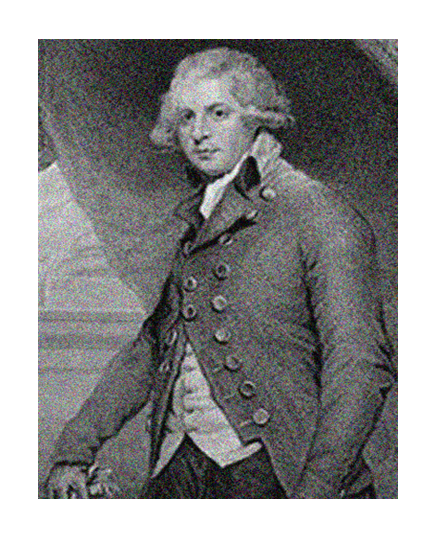 Unfortunately, at least part of last year’s prognosis bore fruit. Whereas the impending financial crash and corresponding economic bust is still pending; my inability to find new employment was correctly predicted. The road on which I have travelled back and forth for so long has been washed out by a flood of age-related bigotry, certification mania (or dementia depending on one's point of view), a long-standing political grudge, and statistical filters that favor selected data points over experience, documented performance, personal recommendations, and a combination of textbook and real world knowledge that few of my academic competitors possess.
Unfortunately, at least part of last year’s prognosis bore fruit. Whereas the impending financial crash and corresponding economic bust is still pending; my inability to find new employment was correctly predicted. The road on which I have travelled back and forth for so long has been washed out by a flood of age-related bigotry, certification mania (or dementia depending on one's point of view), a long-standing political grudge, and statistical filters that favor selected data points over experience, documented performance, personal recommendations, and a combination of textbook and real world knowledge that few of my academic competitors possess.
For nearly half a year I felt a bit like Charles Lindbergh running on a near empty tank of gas over the Atlantic with no view of Cape Clear in sight. Exacerbating my situation was the overcast sky with end-of-ZIRP thunderclouds growing on the horizon. Already I had begun contemplating whether I should ditch my plane with me on board or attempt an unlikely softer landing on the ocean’s surface with the dread of hypothermia and a near zero chance of survival in the back of my mind. It was not a particularly enjoyable experience.
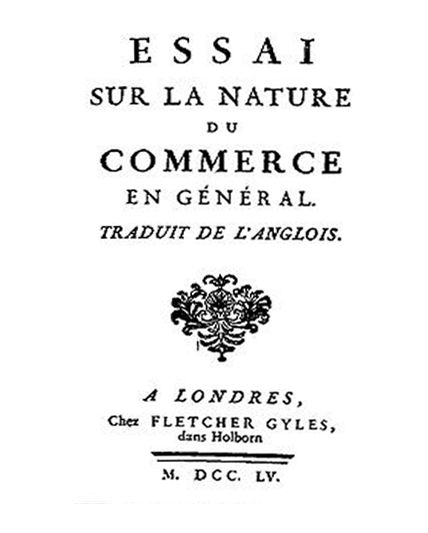 There are those who would argue that I should bilk the state for all that it is worth and use its funds to fight for liberty. Bilking the state, however, is what the majority of HaHaAmerica is already doing, and what has allowed us — well, at least in part — to become the welfare-warfare society that we have become. And, with no end to federal, state, and local spending, I am not about to join the liberal cause and use government to force others to pay my way. Yes, I suppose I could create a spectacle and set myself on fire or go to the Federal Building in downtown Seattle and blow myself up, but I dare not give the press more sensational news that they do not already fabricate on their own. And, why should I take my frustration out on those whom I do not even know, for I may unknowingly be knocking out another true patriot -- this is the one aspect of poitical terror that I do not like. Better just to slit my wrist and watch the blood dissipate in the same manner that society has sought, sometimes consciously, but more often unconsciously, to drain my spirit.
There are those who would argue that I should bilk the state for all that it is worth and use its funds to fight for liberty. Bilking the state, however, is what the majority of HaHaAmerica is already doing, and what has allowed us — well, at least in part — to become the welfare-warfare society that we have become. And, with no end to federal, state, and local spending, I am not about to join the liberal cause and use government to force others to pay my way. Yes, I suppose I could create a spectacle and set myself on fire or go to the Federal Building in downtown Seattle and blow myself up, but I dare not give the press more sensational news that they do not already fabricate on their own. And, why should I take my frustration out on those whom I do not even know, for I may unknowingly be knocking out another true patriot -- this is the one aspect of poitical terror that I do not like. Better just to slit my wrist and watch the blood dissipate in the same manner that society has sought, sometimes consciously, but more often unconsciously, to drain my spirit.
Fortunately, I am more resilient than most of my countrymen and -women are suffocating. Alas, that I do not jump ahead, for I am not hear to tell about the future, but about the past. For, only in this way may I begin the New Year afresh.
So, let me begin.
From Royal Vassal State
into the Imperial Realm
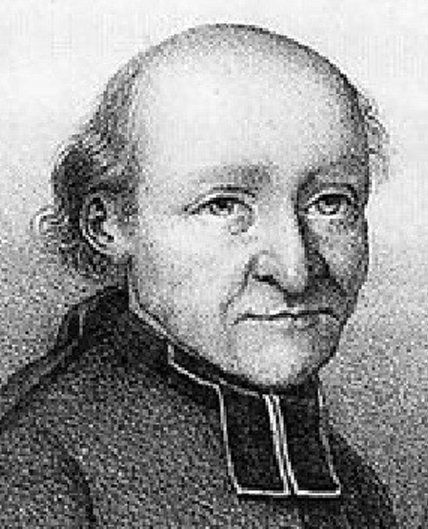 Somewhat prior to my March departure from Saudi Arabia I asked my good friend and Yemeni real estate agent, Mohammed Jeddan, to go with me to Jeddah’s gold market to negotiate a purchase of gold bullion.
Somewhat prior to my March departure from Saudi Arabia I asked my good friend and Yemeni real estate agent, Mohammed Jeddan, to go with me to Jeddah’s gold market to negotiate a purchase of gold bullion.
I had saved enough money to obtain a premium account at the Saudi-American Bank (SAMBA) and had little intention to spend my savings in the very near future. What is more, the global economy was clearly in trouble, and I believed that gold would be a much safer asset to hold than any form of paper or electronic currency held in a private bank or investment account. Already I had come to view financial markets as part of a corrupt global casino designed to pillage the one at the expense of the other, and had consequently lost all desire to participate further in the game. What is more, it made no sense to pay a bank to exchange one counterfeit currency for another. Furthermore, my research on the net told me that I would not be taxed for transporting gold across my intended national borders, and that I would be able to trade in gold tax-free at my probable, but not yet determined destination. In effect, I was set to make my first gold purchase ever.
The market (al souk) was a large covered area with many shops of various sizes. Nearly all of them were jewelry stores of one kind or another. Some of them traded in gold bullion, but most did not. So, we asked around, compared prices, and in so doing stumbled on what seemed to be the heart of the market — a wholesale gold and silver dealer. The content of the store consisted of a large vault and glass enclosed counters with countless bars of precious metal of various sizes and design. I could not begin to imagine the amount of wealth contained under the glass counter tops.
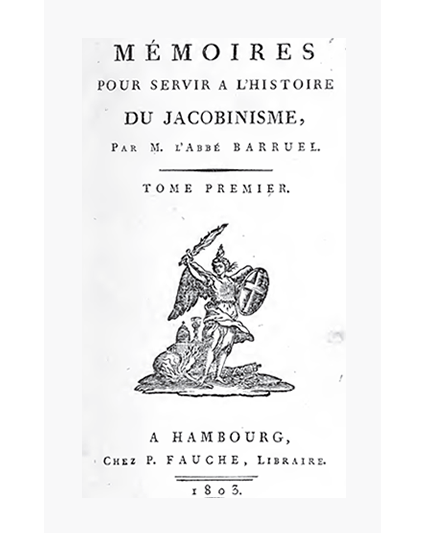 Still a newbie to trading precious metal I did not purchase, but took the gathered information home and explored the internet further. Two weeks later I learned that my friend had returned to the market on his own and had purchased 250 grams of Swiss gold. Several more weeks past before I called my friend, emptied my savings account, and converted into gold nearly everything that I had earned, but not spent for the past three years. The consequences of my action would not be felt until my departure. For the moment everything was simply cool.
Still a newbie to trading precious metal I did not purchase, but took the gathered information home and explored the internet further. Two weeks later I learned that my friend had returned to the market on his own and had purchased 250 grams of Swiss gold. Several more weeks past before I called my friend, emptied my savings account, and converted into gold nearly everything that I had earned, but not spent for the past three years. The consequences of my action would not be felt until my departure. For the moment everything was simply cool.
As I was disappointed with the bargain flights offered by Middle East carriers, I decided to travel with Lufthansa. I had recalled a previous experience in Paris in which I was pulled aside just before boarding an American Airlines flight destined for Miami and drilled with a large number of questions about the contents of my checked-in luggage. There was also the time when I was confined to my plane in Mana, Bahrain while the cleaning crews prepared the seating areas for the next flight to Jeddah. No, I was decidedly in favor of paying a little more with the hope that things might improve.
I arrived at the Jeddah International Airport with just enough time to sell what was left of my Saudi Riyal and was escorted through customs by a Lufthansa representative. Apparently I was the only passenger who had not yet boarded, and they were impatient to get me on the craft. With exit visa, passport, and identity card (iqama) in hand passing through immigration should have been easy. When they had trouble verifying my finger print I began to feel uneasy. For, on my last departure they had declared similar trouble and finished by taking prints of all of my fingers. in neither instance did the problem appear to be with their machine, for others were able to pass after me while I was told to stand aside. As I was told to wipe my fingers several times on a cloth that they provided, surely the problem was not with my fingers either. So, once again, I was told to move to a different counter, where there was no one in line, and told to wait. As my fingers were apparently compatible with the new machine I was allowed to pass along to security.
 Although I passed through the metal detector without a peep, I was told to step aside. Surely, they had discovered the gold in my luggage. I kept my cool. For, readily available was the purchase receipt for all of my bullion. On the receipt was my name, the name of the store, contact information for the store, as well as the weight and value of each gold bar. Surely, this was sufficient proof of my having lawfully acquired possession of my gold. Not for these guards, though. University lecturers are a suspicious lot -- especially the older, foreign ones, who have been working for several years at one of Saudi Arabia's most prestigious universities.
Although I passed through the metal detector without a peep, I was told to step aside. Surely, they had discovered the gold in my luggage. I kept my cool. For, readily available was the purchase receipt for all of my bullion. On the receipt was my name, the name of the store, contact information for the store, as well as the weight and value of each gold bar. Surely, this was sufficient proof of my having lawfully acquired possession of my gold. Not for these guards, though. University lecturers are a suspicious lot -- especially the older, foreign ones, who have been working for several years at one of Saudi Arabia's most prestigious universities.
So, I was told to report to the customs office where the Lufthansa representative and I stood for several minutes while we awaited the appearance of the chief customs officer. We were then escorted back through security and told to sit, whereupon the airline representative and the custom’s officer engaged in a long discussion during which several telephone calls were made. I understood little of what was being said and frankly could not understand why such a commotion was being made about my person and belongings. When the discussion was over, the chief of customs stood, and I stood with him thinking that I would be allowed to pass. Not so quickly, I was told.
There were 15 minutes remaining before the boarding gate would close, and the officer insisted on making copies of my purchase receipt, passport, and iqama. Five minutes later he had still not returned. The clock was ticking. and I asked the representative, if the plane could be held. He said, no, but that the boarding gate was still open. By the time the customs officer returned with my documents the gate had closed. He seemed completely indifferent to the fact that I had missed my plane, and I believed strongly that he had sabotaged my passage purposefully. I said nothing further, turned to the representative, and asked when the next departure would be. The time was prohibitively long, and inside I was beginning to boil with anger.
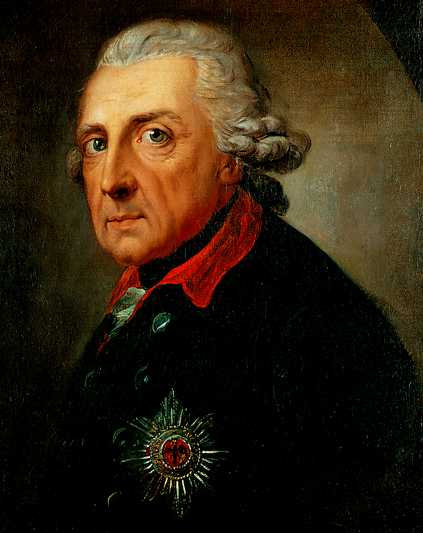 Up until this point, I had written off the harassment, as run-of-the-mill Saudi bureaucracy and had taken it in stride, if not with some amusement. After all, for three years I had been well-compensated for similar inconvenience at my university and various government offices, and there was no reason to take personal offense at the final gate. Indeed, many Saudis are treated similarly, and many even want to work for the Saudi government so that they can do the same: receive a good income by making problems for others and then pretending to find solutions. It was a way to overcome the boredom of being a Saudi bureaucrat. Surely, things could have have been worse. Indeed, I could have been a young Arab living in the US who commits an act of terror that he would not otherwise commit were he not first seduced and provoked by the US government to commit it — in effect, a victim of sympathy for my place of origin and a strong desire to avenge an imperial act of aggression that caused my parents and me to flee our homeland.
Up until this point, I had written off the harassment, as run-of-the-mill Saudi bureaucracy and had taken it in stride, if not with some amusement. After all, for three years I had been well-compensated for similar inconvenience at my university and various government offices, and there was no reason to take personal offense at the final gate. Indeed, many Saudis are treated similarly, and many even want to work for the Saudi government so that they can do the same: receive a good income by making problems for others and then pretending to find solutions. It was a way to overcome the boredom of being a Saudi bureaucrat. Surely, things could have have been worse. Indeed, I could have been a young Arab living in the US who commits an act of terror that he would not otherwise commit were he not first seduced and provoked by the US government to commit it — in effect, a victim of sympathy for my place of origin and a strong desire to avenge an imperial act of aggression that caused my parents and me to flee our homeland.
The Lufthansa representative appeared disturbed, but I was no longer sure whether it was the chief customs officer or me who was the source of his frustration. In any case, his relationship with the officer was likely far more permanent than mine, and I had no real reason to trust either. Having returned with my documents the officer simply abandoned his office leaving me with the representative. No apology was offered, no apology was given. According to the representative the next Lufthanza flight to my destination would not be until the following day. Whereupon I impressed upon him my need to depart before then.
When he told me to return with him to the ticket office I politely declined and told him that I would wait for him at the custom's office. He departed, and I took a seat in the room just outside the chief custom officer’s bureau where I waited for the officer to return. I was not about to let the cause of my delayed departure get away so easily; moreover, I needed time to retrace all that had happened.
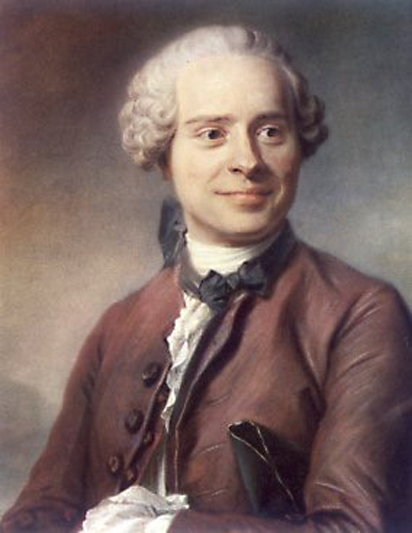 The Lufthanza agent returned several minutes later with another Lufthansa staff member; and together they urged me to quit the scene and return to the ticket counter. Whereupon I explained to them that I was not on vacation, was scheduled to appear at a conference on the following day, and had booked a hotel room in Auburn, Alabama.
The Lufthanza agent returned several minutes later with another Lufthansa staff member; and together they urged me to quit the scene and return to the ticket counter. Whereupon I explained to them that I was not on vacation, was scheduled to appear at a conference on the following day, and had booked a hotel room in Auburn, Alabama.
Mind you, Lufthansa was hardly to blame for my treatment by the Saudi government, and I asked for no compensation from them. They left again, and the officer reappeared, whereupon I asked him why it had taken him fifteen minutes to copy my documents while having known full well that my plane was about to depart. He was unapologetic, whereupon I recounted for him the series of events that had just transpired and probed his motivation for having acted as he did. After all, my iqama was still valid for another month, and if I were to miss my appointment, I would have plenty of time to make life difficult for the officer.
In the meantime the Lufthansa representative returned a second time and told me that there was a seat available on British Airways, and that Lufthansa would cover the cost. So, I thanked the Lufthansa representative, turned to the officer, and told him that he should be thankful to Lufthanza that I would still be able to make my appointment. My anger vented I returned to the Lufthansa ticket counter.
As it were, I would have to pay for the British Airways ticket out of my own pocket and later apply for compensation. So, I inquired about the procedure and asked for written confirmation that I could use as evidence of my agreement with Lufthanza, Saudi Arabia. Though no written statement was provided, the office manager did sign my ticket stub, provided me with his full name, title, and contact information, as well as instructions about how to retrieve my additional payment to British Airways.
Two hours later I found myself standing in front of the same counter where only two hours before my finger print had been rejected. Alhtough my finger was not an issue this time around, I was compelled to expose my gold again and told for a second time to report to the customs office. Unfortunately, the duty officer had changed, and the head of customs was no where to be found. The new duty officer was more irascible than the last, and I was not about to miss another flight. I resisted fiercely and raised significant commotion. So much so, that the Lufthansa representative who had accompanied me the first time suddenly appeared and explained to the officer that I should be allowed to pass. Like me the agent spoke firmly, and in a very short while I was on my way. Hooray Lufthanza!
With my gold safely returned to its original place of safekeeping I was headed for the departure gate. Within minutes I was on the plane, but still unsettled. I had just completed three years of outstanding service for the King’s subjects and had saved a very large portion of my earnings. This was simply not a proper way to end one of the best overseas employment and living experiences of my life. Was it just a Saudi reaction to the thought of Saudi gold leaving the country? Or, was it because I had refused to surrender my iqama to a Saudi immigration officer before heading out to sea at a Saudi fisihng port during the previous year? This is, of course, another story. No matter, if people have a wrong idea about Saudi Arabia, then it is because of people like those who work at the Saudi customs office at Jeddah’s International Airport.
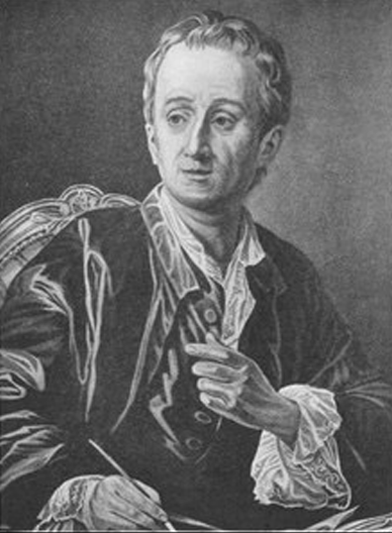 Although I was compelled to endure a several hour layover in London that was not included in my original flight plan with Lufthansa I was not hassled by British security and customs. Further, my passage from London to Atlanta was executed without incident.
Although I was compelled to endure a several hour layover in London that was not included in my original flight plan with Lufthansa I was not hassled by British security and customs. Further, my passage from London to Atlanta was executed without incident.
It was upon my arrival in the United States that my experience in Saudi Arabia was refreshed. This time there was no Lufthansa representative to accompany me through the ordeal — neither, however, was there any unwanted language barrier.
Before disembarking from the plane I had carefully read through the document used as a formal customs declaration. Knowing that my gold would be detected I complied with the document in full. By now I was exhausted and somewhat hopeful of an unchallenged passage. My fate would be otherwise. Human guidance for use of the newly installed robots that tagged me as different was plentiful. Alas, I was now in the grip of empire and after passing through immigration was told to follow a colored path that went in a direction different from the exit. It was already late, and I still had a long way to travel by car before I could lay my head in anticipation of the next morning’s events. So, I offered no protest in the hope that I would be dealt with quickly.
After a thirty-five minute wait, as others were processed before me, my name was finally called, and I was asked to bring my luggage to an empty counter where a customs officer was standing. Never in all of the years that I have traveled overseas was my luggage so thoroughly trashed. At one point I even congratulated the officer on having looked in a spot where no one before him had ever looked. When he replied that he was only doing his job, I asked him, if anyone had forced him to become an employee of the US government. He seemed to take the hint and asked me, if I were carrying any weapons. I told him no. After he had finished his investigation, he left the station with my passport. I waited with the thought that my struggle with the empire was just beginning. When he returned several minutes later, I was told to follow still another path -- this time, to the exit. Once again, I do not recall the color.
I am an American citizen, had no longer posed a danger to anyone in the air, had declared the gold that I was carrying on the custom’s questionnaire as instructed, and had subsequently shown my proof of purchase. Further, I have no criminal record in either the United States or Saudi Arabia. Why was I harassed?
Was it because I claimed no permanent residence in the United States and had felt the need to leave Saudi Arabia only twice during the entire three years that I was there? Or, was it because, having spent so much time overseas, I no longer spoke with an American accent? Or, maybe it was because I was unAmerican for denouncing my own government’s imperial overreach and advocating liberty and the founding principles of our nation.
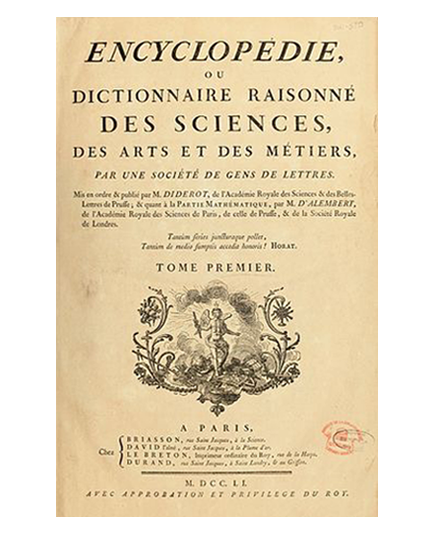 As soon as I was freed from the direct grip of empire, I went looking for a car. I had reserved a room for the night of my arrival at a hotel very close to Auburn, Alabama, but it was already very late, and the economy car that I had reserved in anticipation of the trip to Auburn was no longer available. When the agent told me that there were no economy cars for rent, I quickly understood why there was such a long line in front of the rental car agent next to the one where I was standing as the sole customer. Having just spent nearly an hour in US customs I was not eager to stand in the queue, and asked what was available. I would only be renting for several days, and when I discovered that among the luxury cars available was included a brand new mustang, I took it.
As soon as I was freed from the direct grip of empire, I went looking for a car. I had reserved a room for the night of my arrival at a hotel very close to Auburn, Alabama, but it was already very late, and the economy car that I had reserved in anticipation of the trip to Auburn was no longer available. When the agent told me that there were no economy cars for rent, I quickly understood why there was such a long line in front of the rental car agent next to the one where I was standing as the sole customer. Having just spent nearly an hour in US customs I was not eager to stand in the queue, and asked what was available. I would only be renting for several days, and when I discovered that among the luxury cars available was included a brand new mustang, I took it.
For three years I had run around the streets of Jeddah in an Aveo, Chevy with a standard transmission. Although I had grown fond of the car and had even driven it across the desert to Riyadh and back, I had never satisfied my desire for a Mustang. Not only was the car being offered by the agent in Atlanta brand new, but it was also a convertible, and I would be its first rental driver.
As we entered the garage, the agent pointed to the car. It was jet black and glistened under the ceiling lights. It was a black diamond among other less valuable gems. As the agent had told me that the car was brand new, I examined it carefully for damage. Not a nick or scratch. The interior of the car glistened every bit as much as the exterior, and when I got inside, I felt like I had just sat down in the cockpit of a commercial airliner. I had no idea where to start and had to ask the agent for guidance. When the engine turned on, I was ecstatic. I could have spent a full half an hour familiarizing with the gadgetry, but knew that it was late and that I had a very long ride ahead of me before I could sleep.
Once I got it on to the express way, I let it rip, if for no other reason than to keep me awake. The highway was nearly empty, and I cut my estimated time of arrival by nearly thirty minutes. I watched carefully for flashing lights and parked cars along the edge of the road. I also kept a careful watch in my rear-view mirror. Fortunately, the only police cars that I encountered during my entire journey were those that had pulled over other drivers. I had never driven in either Georgia or Alabama and had little idea what the police were like. Certainly, I was in no mood to be delayed still again by another arm of the empire. Perhaps I was a little fearless, or even foolish, but three years on Saudi roads had taught me driving skills that I had never imagined possible. I was a black angel in flight, if only for a moment.
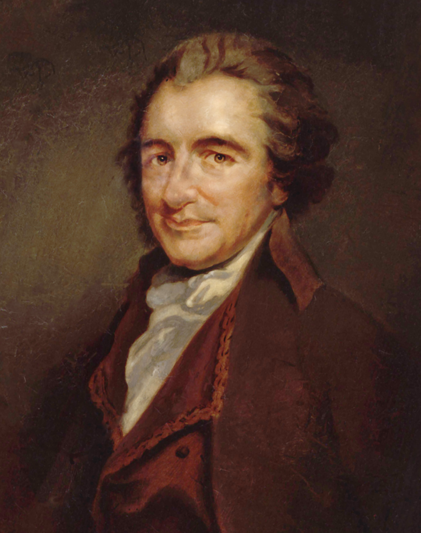 It was my second time in attendance at the Austrian Economics Research Conference, and I was very happy that my paper had been accepted for presentation. This time around I was greeted by Lew Rockwell, the Institute’s chairperson, and over the course of several days I was able to interview with Jeff Deist, the Institute’s President. Both men are former associates of Ron Paul, a 2012 US presidential candidate, multi-term US congressman from Texas, and prominent leader in the liberty movement -- someone whom I will likely never meet, but whom I was able to hear at a rally in Tampa three years before.
It was my second time in attendance at the Austrian Economics Research Conference, and I was very happy that my paper had been accepted for presentation. This time around I was greeted by Lew Rockwell, the Institute’s chairperson, and over the course of several days I was able to interview with Jeff Deist, the Institute’s President. Both men are former associates of Ron Paul, a 2012 US presidential candidate, multi-term US congressman from Texas, and prominent leader in the liberty movement -- someone whom I will likely never meet, but whom I was able to hear at a rally in Tampa three years before.
The conference began on Thursday and ended on Saturday. It was mid-March, and many trees had already begun to bloom. it was cool, but the sun showed brightly throughout the conference and the several days after that I remained in Auburn.
My presentation was on Saturday morning. Before our session began we tested the available technology with my own and concluded that all signals were good. When it was my turn to present, however, things did not function as expected. What is more, I discovered that only a tiny minority of those present had read the work that had formed the basis for my paper. Though unable to complete my presentation within the allotted time frame, I was able to obtain feedback from Professor Garrison whose work, like mine, seeks to bridge the gap between the Spanish-Austrian school and mainstream mathematical formalism. Moreover, my own failure to complete the presentation spurned me to develop it further.
A very nice photograph of me was taken by one of the Institute’s staff, and before the conference was over I was able to obtain a photo-op with Hans-Hermann Hoppe who was the featured speaker that same afternoon. My discussion with Professor Hoppe encouraged me to read several of his books after we parted. He is an expert on the foundations of free markets society and the harmful role of the state.
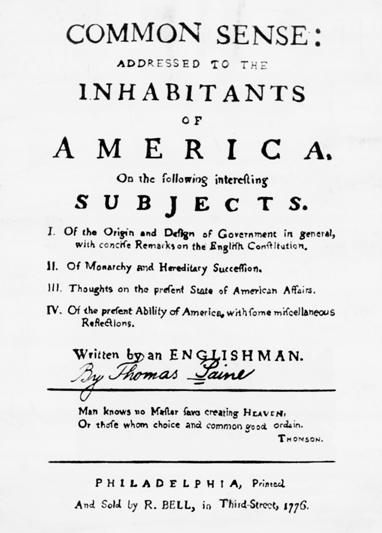 The real tragedy, however, came in a different form. Well before my arrival in Auburn I had sent an email to Jeff Deist with a proposal to serve as an itinerant lecturer of liberty. Specifically, I was looking for funding to develop a project that would maximize the use of my talent, spark the interest of the Institute, and expand the liberty movement. Obviously, the Institute was no novice to fundraising, and I truly thought that they would be both able and willing to help. Although he had responded saying that he would be happy to meet with me at the conference, no further discussion in regard to my project was tendered before my arrival.
The real tragedy, however, came in a different form. Well before my arrival in Auburn I had sent an email to Jeff Deist with a proposal to serve as an itinerant lecturer of liberty. Specifically, I was looking for funding to develop a project that would maximize the use of my talent, spark the interest of the Institute, and expand the liberty movement. Obviously, the Institute was no novice to fundraising, and I truly thought that they would be both able and willing to help. Although he had responded saying that he would be happy to meet with me at the conference, no further discussion in regard to my project was tendered before my arrival.
When Mr. Deist and I met, he told me at the outset that my proposal would be difficult to accept. I understood from this that we had much to discuss. So, I allowed him to probe into my person, in an effort to secure his trust. By our third meeting I realized that the decision had already been made before we ever met, and that Mr. Deist had appointed himself as my unsolicited career counselor. When I was told that “I cannot decide for you” with the implied meaning that “You must make up your own mind about what it is that you want”, I felt genuinely insulted and politely quit the conversation. True to my own spirit and my intended goal, I wrote a letter to Mr. Rockwell on Sunday, packaged it in a PDF file, and sent it to him in an email. I received the following response: “Sir, thanks, but as Mr. Deist told you, we are unable to accept your proposal”. That Mr. Deist had only been as clear with me, as he had obviously been with Mr. Rockwell!
As I had planned to stay in Auburn, as long as would be required to achieve by goal as an itinerant harbinger of liberty, I had not scheduled a plane flight for my departure. Since it was cheaper to pay for my hotel room and book a plane flight a few days ahead than to pay for a plane flight for the same or next day, I tarried in Auburn.
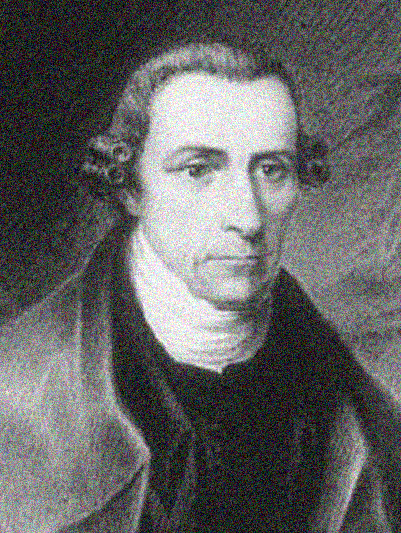 The gym facilities at my hotel were poor, but on my third day I saw someone in gym clothes getting out of his car and soon discovered that my hotel was an affiliate with a much better equipped gym not very distant from the Von Mises Institute. So, on Monday I stopped by the institute on the way to the gym thinking that I could purchase a book for my flight to Las Vegas and obtain copies of several documents that I needed to process my reimbursement from Lufthansa.
The gym facilities at my hotel were poor, but on my third day I saw someone in gym clothes getting out of his car and soon discovered that my hotel was an affiliate with a much better equipped gym not very distant from the Von Mises Institute. So, on Monday I stopped by the institute on the way to the gym thinking that I could purchase a book for my flight to Las Vegas and obtain copies of several documents that I needed to process my reimbursement from Lufthansa.
As the front door of the Institute was locked, and as I had explored the grounds well on my previous visits, I walked around to the inner courtyard and discovered someone inside who let me in. I did not recognize him, but he seemed friendly. So, I explained my situation, and he agreed to help. Whereupon I provided him with my documents, sat down near the door, and waited. Within minutes two more staff had arrived each in his own turn: one, with a smiling face that I clearly recognized, and one with a growling face that I did not. I was then told by the one with the growling face that the conference was over, that I had no further business at the institute, and that I could purchase my desired book online. Somewhat perplexed by the encounter I responded to the growling face while looking at the smiling familiar face, and the growling face departed. When the same returned, I was presented with my requested copies and sent away with no book.
To this day I know neither why my project proposal was rejected, nor why I received such a rude reception after the conference.
Had I embarrassed the technical staff when my presentation failed? Had word gotten around that I had written a letter to the chairperson about the president’s behavior? Only the day before the Institute was eager to sell its books. Just what sort of bunker mentality was at work here? I felt like I had just snuck across the DMZ into North Korea and was caught distributing South Korean propaganda leaflets criticizing His Leadership.
I will not be returning to Auburn anytime soon, but I did renew my annual membership. I must not let institutional personality disorders get in the way of my own and others’ erudition.
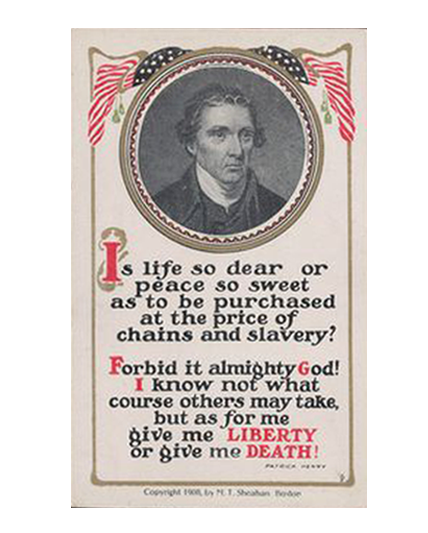 It would be my second trip to Las Vegas. My first had been in 2012 after camping out in Death Valley, Nevada. I was on my way to the Ron Paul Rally in Tampa, Florida via the Zion, Grand Teton, and Yellowstone National Parks. I never made it past Ogalala, Nebraska, but you can read about that adventure elsewhere.
It would be my second trip to Las Vegas. My first had been in 2012 after camping out in Death Valley, Nevada. I was on my way to the Ron Paul Rally in Tampa, Florida via the Zion, Grand Teton, and Yellowstone National Parks. I never made it past Ogalala, Nebraska, but you can read about that adventure elsewhere.
In any case, having received such a fine welcome in Las Vegas the last time, I thought that I would try the same again. So, my friend, Doug Ansell, put me up at the Green Valley Ranch for two days, but appeared too busy even to meet with me. He had warned me that he was busy and recommended that I come for his birthday two weeks later. This, however, would have meant an additional plane flight from Berkeley, California or Seattle, Washington, and I had just spent three extra days in Auburn, Alabama with little to show for it.
So, I paid for two additional days at the Green Valley Ranch — this time out of my own pocket, and my friend and I met on day three at the Ranch. We had dinner together with one of his colleagues, whom I had met on my last visit, and another, very attractive, female business partner whom I had just met. Doug is married to a model and has very good taste in women. I really needed to talk with him privately, but it just was not going to happen. Between him and me was his colleague; so, I explained to his colleage what I needed, but nothing ever came of it.
It was another very expensive stop that left me empty handed. So, I forewent my visit to Berkeley and headed straight for what would surely be my final stop in the United States.
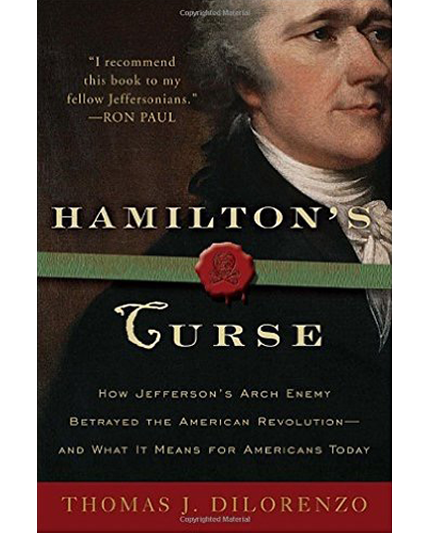 From SeaTac, the international airport for the greater Seattle area, I took a taxi to the Sorrento Hotel where I had reserved a room. I chose the hotel for its relatively low price and central location with respect to the things that I knew best about Seattle: the downtown area, the University of Washington where I am an alumnus, and the International District where I once lived. Unfortunately, I had unknowingly booked a room at a hotel with variable room rates, and by the end of the week my rent had nearly doubled! Reluctantly, I retreated to the Panama Hotel where the rent for one week is somewhat above the cost of one weekend day at the Sorrento.
From SeaTac, the international airport for the greater Seattle area, I took a taxi to the Sorrento Hotel where I had reserved a room. I chose the hotel for its relatively low price and central location with respect to the things that I knew best about Seattle: the downtown area, the University of Washington where I am an alumnus, and the International District where I once lived. Unfortunately, I had unknowingly booked a room at a hotel with variable room rates, and by the end of the week my rent had nearly doubled! Reluctantly, I retreated to the Panama Hotel where the rent for one week is somewhat above the cost of one weekend day at the Sorrento.
The Panama Hotel is a heritage house located in Japantown -- a somewhat ethnic area in Seattle's International District. It is also a little known love hotel with a charming adjoined café dedicated to the city’s first Japanese immigrants. The hotel was built around the turn of the former century (19th to 20th century) and retains much of its former character. A few modern adjustments such as electricity, an internet connection that varies with your proximity to the router, and hot, running water in the shower, make the hotel livable in a modern world. With one men’s shower and two adjacent toilets separated by a partition on each floor, and a separate bath and toilet for women on each of the same, one sometimes has to wait his turn or find his way in a robe or shorts to a different floor. Although hot and cold water are available on tap in a corner sink with a mirror in each room, obtaining enough hot water to shave in the morning is challenging. Not only does the hot water enter the wash basin very slowly, but the metal stopper at the bottom of the bowl fails to hold what manages to trickle in. And then, there is the furniture .... But alas, for what I paid, I should not complain.
Tsuku Shinbo, the best, reasonably priced, Japanese sushi bar in all of Seattle, is less than a minute walk from the hotel. And, within five minutes one can easily enjoy Seattle’s best dim sum.
The hotel was also the same where I had sought refuge for several weeks upon my return from Hong Kong as an economic refugee in 2007. Ironically, in eight years my situation had changed little. Once again, I was a refugee in my own country without a permanent address. If there were important differences, then they were my age and financial situation. Where before I had arrived penniless, but still employable, this time I arrived with substantial savings and a paper age that would exclude me from most, if not all employment. There was another catch as well: the English language certification industry had grown like a cancerous weed around one of my two professions and was denying me access to all public and private institutions of higher education.
During my sojourn at the Sorrento Hotel I had explored the environs and found them to my liking. They were conservative and would leave a good impression on anyone performing a Google search on my street address — well-kept streets, lots of greenery, few beggars, and only an occasional police officer. At the time, I still believed that I had a chance at finding work in the United States; there would even be a university and a college within walking distance of my new home. Moreover, the area had a name that I could proudly write on my resumé and in my email correspondence — First Hill. In addition, the area was situated midway between the Panama Hotel and 24-Hour Fitness, the only private gym open to the public that was somewhat close -- a 15-minute walk from the Sorrento Hotel and a 35-minute walk from the Panama. This meant that I could spend the late morning and early afternoon looking for a place to live and go to the gym when I was finished. The long trek back to the International District was made after dinner at any of a large number of organic restaurants along the way.
I knew of no organic restaurants in the International District, and eating sashimi everyday at Tsuko Shinbo would have become expensive.
 My physical well-being is an important priority in my life, and working out in a semi-public gym on a regular basis does a lot to keep my feet on the ground. I had been a member of 24-Hour Fitness while resident in Berkeley, California and recalled that it has branches seemingly everywhere in the US. Not knowing where I would end up by the year's end I decided to settle in an area of Seattle that was close to a 24-Hour Fitness center.
My physical well-being is an important priority in my life, and working out in a semi-public gym on a regular basis does a lot to keep my feet on the ground. I had been a member of 24-Hour Fitness while resident in Berkeley, California and recalled that it has branches seemingly everywhere in the US. Not knowing where I would end up by the year's end I decided to settle in an area of Seattle that was close to a 24-Hour Fitness center.
I was left with three choices: Northgate in the north of Seattle, Belltown in the southwest of Seattle, and First Hill which is midway between the north of Seattle, downtown Seattle, and the International District. So, I explored all three areas, but settled atop First Hill, as it was there that I would be finally offered a residence without my having to prove an income flow that was triple the amount of my monthly rent. Things had changed dramatically since I had last looked for a permanent residence in the United States. Indeed, some managers would not even show me an apartment when I told them that I was unemployed and without income. Never mind that I had just returned from a 3-year sojourn in Saudi Arabia before which I had lived in Thailand and South Korea for an additional two years. That I had spent 23 of the past 25 years of my life overseas was even more terrifying. Ironically, it would have been easier to find an apartment, had I been able to claim Japanese citizenship and exhibit an F2-VISA.
The absence of income, however, was only the tip of the iceberg, for nearly everyone required an income record, a credit history, a criminal background check, and a residential history. Of these four demands, I could only satisfy one — a credit history. On top of this hardship, nearly all of the apartments that I found within my somewhat arbitrarily decided price range had waiting lists. Indeed, it took me more than six weeks to find both an apartment and a management team that would accept me.
In the end, I am very thankful for the patience that I was shown by the manager of the Panama Hotel where I stayed for six weeks while I searched for an apartment and proper furnishings. Then too, I must surely put in a good word on behalf of the former manager at Paul Revere Apartments where I was finally able to find lodging despite the misgivings of her own employer.
Home Kinda Home
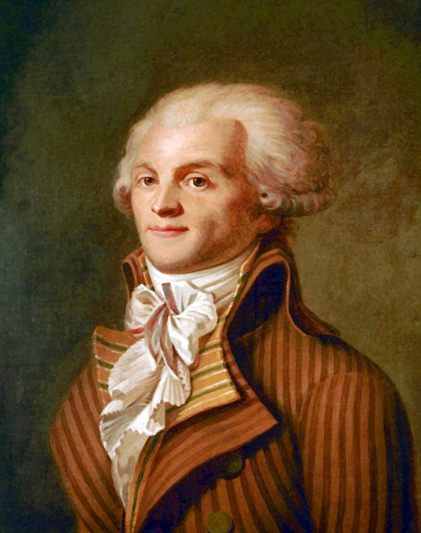 As soon as I moved into my new apartment I resumed my schedule at the gym and could be found walking along many of the same streets as before. Most of the people whom I meet along these streets are new; very few walk the same streets at the same time as I. Even those that I do repeatedly pass rarely offer even the smallest gesture of friendliness.
As soon as I moved into my new apartment I resumed my schedule at the gym and could be found walking along many of the same streets as before. Most of the people whom I meet along these streets are new; very few walk the same streets at the same time as I. Even those that I do repeatedly pass rarely offer even the smallest gesture of friendliness.
It was Memorial Weekend, and I was on my way home as I approached the freeway crossover near the Washington Convention Bus Terminal on Boren Avenue. I tend to look down as I walk, so as not to misstep, and look up only occasionally or when someone approaches. So, when I arrived at the intersection I was surprised to see a young, naked man standing on the opposite side of the intersection waiting for the light to turn green. He was wearing only boots and a backpack with straps that crossed his hairy chest. I found it amusing, and as we passed one another in the middle of the street, I smiled. Half hoping for a smile or greeting in return I was disappointed when he said nothing and looked at me, as if frightened or offended.
The encounter made me think of other unusual sightings that I had made on the streets of Seattle between my home and the gym. I could only hope that he would not be arrested, and that we would one day meet again. I would have liked a photo with a naked Seattleite and the Seattle Space needle in the background. Unfortunately, I have not seen him since, but would probably not recognize him with his clothes on, anyway.
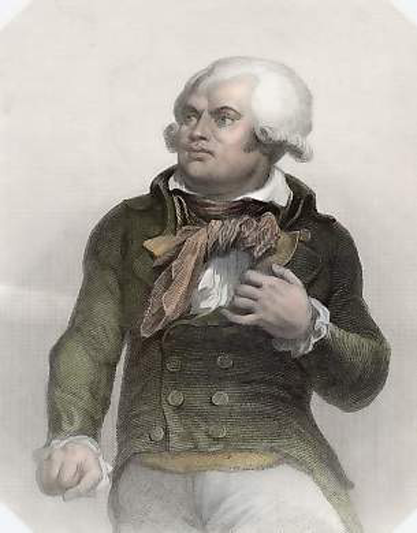 As I am accustomed to seeing naked strangers in gym locker rooms I was neither shocked, nor offended. What I have found far stranger on the side-walks and streets of Seattle is the large number of men and women with tattoos on their bodies. Even more shocking has been the number with metal objects hanging from their faces and other physical parts. In no place in the world have I ever experienced such physical deformation on such a broad scale than in Seattle, Washington.
As I am accustomed to seeing naked strangers in gym locker rooms I was neither shocked, nor offended. What I have found far stranger on the side-walks and streets of Seattle is the large number of men and women with tattoos on their bodies. Even more shocking has been the number with metal objects hanging from their faces and other physical parts. In no place in the world have I ever experienced such physical deformation on such a broad scale than in Seattle, Washington.
Now surely, no one forces these people to have their bodies pierced, punctured, and needled. What could motivate them to such transformative acts of appearance I can only wonder. Certainly, my own notion of personal distinction is personal accomplishment.
Indeed, in my generation self-adornment was used to satisfy important social roles. Women, for instance, typically hung jewelry of one sort or another from their ears. I had never witnessed the practice among men and viewed the custom as a mark of gender and, depending on the jewelry worn, social rank among women. More importantly, wearing ear rings was a right of passage for young girls, as one rarely, if ever, saw a girl wearing ear rings in public who had not already reached puberty. No these accoutrements were not limited to a woman’s ear lobes, for metallic, plastic, wood, string, and stone could be found in the form of bracelets around one’s wrists and ankles, as rings around one’s fingers and toes, as a pin fastened to one’s clothing above one’s left or right breast, and, of course, as a necklace. All of these latter adornments, however, were a form of clothing that neither damaged the skin, nor left a permanent mark. In effect, they were simply accessories to one’s other clothing.
In high school ear-piercing was just becoming popular, but it was, once again, something that only a woman would do, and the result was little more than an inconspicuous hole in one's ears that would in most cases be filled with some sort of bauble used to attract the attention of others. Did these holes not simply offer a more comfortable and secure means of attachment than a clamp?
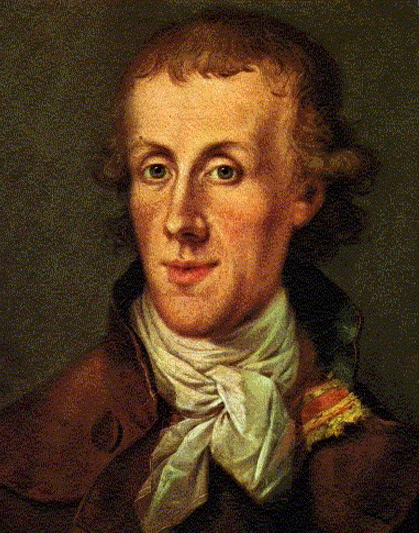 Jewelry for boys and men also served as a rite of passage, but male adornment was generally more subdued. The most that a man would wear on a single occasion was a bracelet around his wrist in an effort to keep better track of time, cuff-links as an attractive replacement for buttons to hold the end of his sleeves together, and a tie-tack to keep his necktie from falling into his soup. If he was a member of a club or other closed society he might also wear a pin on his lapel indicating his membership. Then too, there was the class ring when he graduated from high school or college and the ring that he wore on his so-called ring finger as a sign of marriage — a quiet reminder to other women to keep their distance. It was a time when family was still a meaningful source of social cohesion and stability. Family planning had not yet been invented, the US Supreme Court was not permitted in a citizen’s bedroom, and parents were still responsible for their own children. Dogs were pets owned and cared for by children to keep them company and teach them social responsibility. They were not surrogate spouses for unmarried men and women. Nor were they surrogate children for unmarried women.
Jewelry for boys and men also served as a rite of passage, but male adornment was generally more subdued. The most that a man would wear on a single occasion was a bracelet around his wrist in an effort to keep better track of time, cuff-links as an attractive replacement for buttons to hold the end of his sleeves together, and a tie-tack to keep his necktie from falling into his soup. If he was a member of a club or other closed society he might also wear a pin on his lapel indicating his membership. Then too, there was the class ring when he graduated from high school or college and the ring that he wore on his so-called ring finger as a sign of marriage — a quiet reminder to other women to keep their distance. It was a time when family was still a meaningful source of social cohesion and stability. Family planning had not yet been invented, the US Supreme Court was not permitted in a citizen’s bedroom, and parents were still responsible for their own children. Dogs were pets owned and cared for by children to keep them company and teach them social responsibility. They were not surrogate spouses for unmarried men and women. Nor were they surrogate children for unmarried women.
Graduation rings were, of course, indicators of a different rite of passage that men shared in common with women and were often abandoned as one grew older. There was also the male necklace to which a crucifix or other symbolic ornament was attached. Whereas the crucifix indicated still another rite of passage — namely, catechism or confirmation --, a non-religious symbolic ornament was often used to indicate some sort of group affiliation. Looking back, I suspect that the male necklace, often molded from fine gold or silver and worn with significant pride, had its most recent origin in the dog tags worn by soldiers during WWII in order to identify themselves when they had fallen in battle and were no longer able.
There were also military personnel — a rather cliquish lot and exception to the rule — whose social role was deemed both vital and extraordinary. For such people excessive personal adornment was commonplace. If you found tattoos among these people, it was almost always among non-commissioned officers and other rank and file soldiers, sailors, and airmen. None of these, to the best of my knowledge, pierced their skin or otherwise mutilated their bodies except in combat.
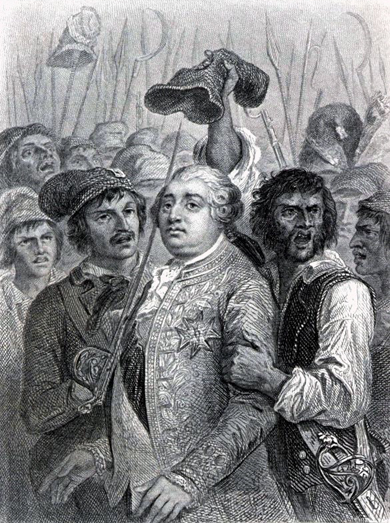 Among Seattle’s Tatootians, on the other hand, there is total social chaos. No body part is conserved. I have seen metal in men’s ears, lips, noses, tongues, cheeks, eye brows, and genitals. In the gym entire bodies are covered with tattoos. It is sometimes hard to look at someone and not ask, if the poor fellow were not stone drunk when he offered up his torso as a playing field for someone else’s artistic amusement. Showing admiration for his physical development — a distinctive personal accomplishment — is extraordinarily difficult as a result. Then too, in the downtown branch of 24-Fitness, there is very little that inspires, nearly half of everyone present is covered with a heavy layer of body fat. The gym sometimes seems like a nursing home for fallen angels or social misfits. Alas, it was far easier to make friends in a Saudi, Thai, Korean, or Japanese gym. Then too, in those gyms I tended to be the odd-man out and had a greater desire to be a part.
Among Seattle’s Tatootians, on the other hand, there is total social chaos. No body part is conserved. I have seen metal in men’s ears, lips, noses, tongues, cheeks, eye brows, and genitals. In the gym entire bodies are covered with tattoos. It is sometimes hard to look at someone and not ask, if the poor fellow were not stone drunk when he offered up his torso as a playing field for someone else’s artistic amusement. Showing admiration for his physical development — a distinctive personal accomplishment — is extraordinarily difficult as a result. Then too, in the downtown branch of 24-Fitness, there is very little that inspires, nearly half of everyone present is covered with a heavy layer of body fat. The gym sometimes seems like a nursing home for fallen angels or social misfits. Alas, it was far easier to make friends in a Saudi, Thai, Korean, or Japanese gym. Then too, in those gyms I tended to be the odd-man out and had a greater desire to be a part.
Notwithstanding, I am reluctant to buy clothing that advertises its label to the public when on my person, let alone to become a billboard for someone else’s artwork. In fact, the only tattoos that really stood out in my childhood were those worn by pirates. Was their purpose not to scare away their enemies! This phenomenon, by the way, is just as prevalent among members of the opposite sex.
Then came the Easter holiday when a park built over the expressway next to downtown Seattle's Washington State Convention Center filled up every weekend afternoon with adult men and women dressed up like children for Halloween. As the park was at a crucial juncture midway between the International District where I was still living and the nearest 24-Hour Fitness center, it was difficult not to witness their goings-on. The purpose of the gathering was difficult to know, for their appeared to be no organized functions at the event. The participants simply dressed up in elaborate and imaginative, and not so elaborate, and not so imaginative costumes and took photographs of one another. Perhaps it was a celebration of the coming of spring or an outdoor happening reminiscent of Berkeley, California or Connecticut's Wesleyan University in the late 60s and early 70s. It was the Mamas and the Papas without music, a street celebrations of costumed diversity -- something straight out of a Star Wars barroom scene.
Indeed, these costumed creatures of human gait and society walked from very distant locations and populated, as a result, much more than just the park that they occupied; I could not help but encounter them both on my way to the gym and on my return trip home. Also, these gatherings appeared to have long-term repercussions, because I have passed, on many occasion thereafter, both individually and in groups, similarly dressed people walking the streets of Seattle.
Could it be that the young man dressed naked and walking down Boren Avenue on Memorial Day weekend was merely a reaction to the weekend costume parties at the park? I recall neither a tattoo on his body, nor a piece of metal hanging from his face or genitals....
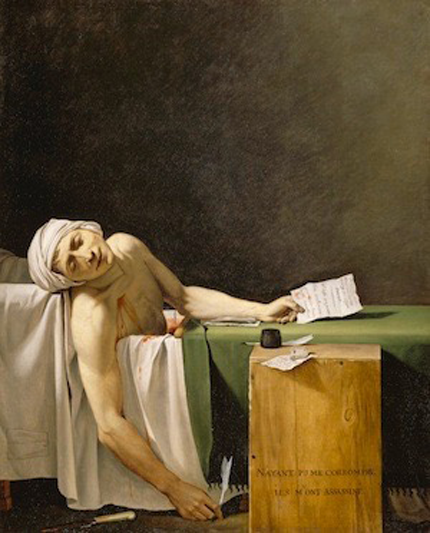 The State of Washington requires that new residents obtain a State of Washington driver’s within one month of their having taken up residence. My Saudi license, backed up with international certification and not scheduled to expire for several more years, would not be good enough. So, I found a State licensing office in the downtown area and was told that I would have to take both a written and driving test before a new state license could be issued. Nobody cared that I had now driven in eight countries on three continents including the Middle East. Nor did it matter that I had held, previous to my appearance at the State licensing bureau, driver’s licenses in Saudi Arabia, Hong Kong, Japan, and the United States. Nope, even my Saudi licenses with still valid expiration dates did not impress them. Never mind that the Saudis had issued it to me without any testing, because I had been able to show them a still valid Hong Kong driver’s license and a valid US passport. Not even my additional international driver’s license that verified the authenticity of my Saudi license appeared to matter.
The State of Washington requires that new residents obtain a State of Washington driver’s within one month of their having taken up residence. My Saudi license, backed up with international certification and not scheduled to expire for several more years, would not be good enough. So, I found a State licensing office in the downtown area and was told that I would have to take both a written and driving test before a new state license could be issued. Nobody cared that I had now driven in eight countries on three continents including the Middle East. Nor did it matter that I had held, previous to my appearance at the State licensing bureau, driver’s licenses in Saudi Arabia, Hong Kong, Japan, and the United States. Nope, even my Saudi licenses with still valid expiration dates did not impress them. Never mind that the Saudis had issued it to me without any testing, because I had been able to show them a still valid Hong Kong driver’s license and a valid US passport. Not even my additional international driver’s license that verified the authenticity of my Saudi license appeared to matter.
Nope. Driving in the State of Washington would be very special, and I would have to take both a written and a road test.
Some three-hundred fifty plus US dollars later I was finally issued a State of Washington I.D. with a license to drive without glasses -- no matter that I can barely read the State's traffic signs at night until I have almost past them. Of the aforesaid amount, the State received USD 89 in application and processing fees. The rest went to one of their crony private-school affiliates and ZipCar. Yep, Olympia, Seattle’s state capitol, was producing jobs for Seattleites — no doubt about it.
The written and road tests were in two separate time slots, and the cost of each was the same. Confident that I would pass both tests, I scheduled both appointments for the same day. Were I to fail the written test, I would not be permitted to take the road test and would have to pay for both slots with nothing to show for either. My idea was to forego having to spend an additional hour in mass transport at the mercy of a Seattle bus driver and his or her passengers. Indeed, with driving being so special in the State of Washington perhaps you can imagine what riding in a Seattle bus must be like.
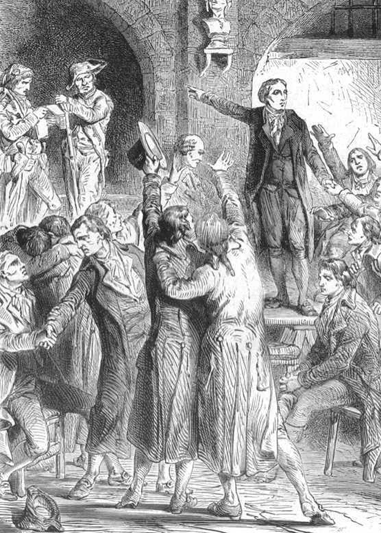 I past the written test and went shopping at the weekend farmers' market just north of the U-District while I awaited the road test. Before I went shopping, though, I reviewed the questions that I missed. All of them were related to technical questions that I had skipped in the manual due to their practical irrelevance with regard to actual driving and possible legal repercussions. Really, have you ever counted the number of feet to determine when and when not to turn off your brights as a car approaches you at night? How about as you approach a car from behind under similar conditions? For lack of a better response and in the belief that these were questions on the political correctness of Washington State road travel I chose the alternatives indicating the greatest distance possible.
I past the written test and went shopping at the weekend farmers' market just north of the U-District while I awaited the road test. Before I went shopping, though, I reviewed the questions that I missed. All of them were related to technical questions that I had skipped in the manual due to their practical irrelevance with regard to actual driving and possible legal repercussions. Really, have you ever counted the number of feet to determine when and when not to turn off your brights as a car approaches you at night? How about as you approach a car from behind under similar conditions? For lack of a better response and in the belief that these were questions on the political correctness of Washington State road travel I chose the alternatives indicating the greatest distance possible.
After all, what could be worse than illuminating a Washington State bureaucrat more than necessary?
I returned to the school several minutes before my examination was scheduled and waited. Ten minutes past the scheduled time I called the school’s administration to ask about the absence of my examiner. Five minutes later the examiner appeared and blamed his previous student for his tardiness. In order to identify myself I used the only valid US identification in my possession — my passport. This and my “unAmerican” accent caused him to wonder where I was from. So, I told him that I had just returned from Saudi Arabia. After testing my break reflexes he commented on my red scarf and black jacket, and I assured him that it was not special dress for the examination.
After we had returned from the 20-minute ordeal I was told that I had failed the examination. Only somewhat surprised by his overall assessment I listened carefully to the details. These were the reasons that I was given for having failed the test: one, I paused too long at an intersection before making a turn; two, I failed to turn my head to test for traffic before pulling into a new lane; I failed to turn my wheels on a pretend hill, and four, I did not succeed in my first attempt to parallel park while pretending that there were two cars when, in fact, there was only one.
Why did I pause too long at the intersection? Because my instincts told me not to enter right away.
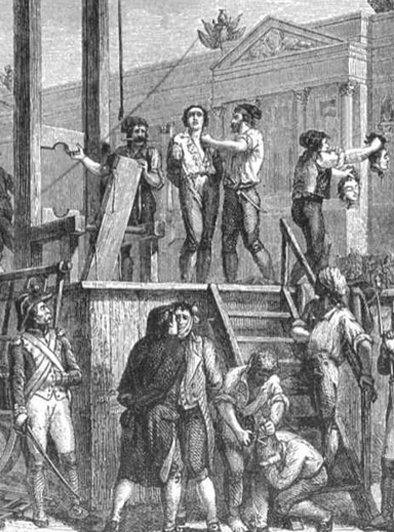 Was my hesitation not due to the effect that my car had on other drivers and thus my own behavior? I could not remember the last time that I had sat behind the wheel of a car marked as student driver, but I could recall having once driven a bright yellow one. It was a Volkswagen bug owned by Frau Howard, my German teacher and faculty coordinator for my highschool’s German club. We had just finished decorating it for our 1967 homecoming parade, and I was a designated driver some fifty years ago! Had the car in which I was now sitting been fire engine red, my favorite color, and had the driver of the car that was not behind me been my examiner, I would have left him in a cloud of dust under normal circumstances. Indeed, if I had slowed traffic, then it was for a very good reason: I was behind the wheel of a moving road hazard! I did not remind him that he was fifteen minutes late for my examination.
Was my hesitation not due to the effect that my car had on other drivers and thus my own behavior? I could not remember the last time that I had sat behind the wheel of a car marked as student driver, but I could recall having once driven a bright yellow one. It was a Volkswagen bug owned by Frau Howard, my German teacher and faculty coordinator for my highschool’s German club. We had just finished decorating it for our 1967 homecoming parade, and I was a designated driver some fifty years ago! Had the car in which I was now sitting been fire engine red, my favorite color, and had the driver of the car that was not behind me been my examiner, I would have left him in a cloud of dust under normal circumstances. Indeed, if I had slowed traffic, then it was for a very good reason: I was behind the wheel of a moving road hazard! I did not remind him that he was fifteen minutes late for my examination.
Was there really something wrong with using my mirrors instead of turning my head?
He explained that I should have turned my head and that I had not turned my head on more than one occasion. Never mind that I always keep a careful watch on the traffic behind me, and that I had surely done so each time that he had asked me to change lanes. Indeed, on no occasion was there ever a moving car on the same side of the road -- nearly the entire examination took place in a quiet residential area. Already I was beginning to feel empathy with the student driver before me.
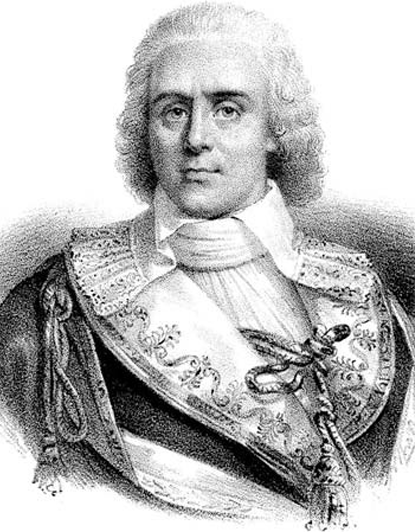 Surely, it was the first time I had ever tried to parallel park between two cars when only one of them was present. And, to perform this feat of imagination in a car that I had never driven required more imagination than I was willing to part with easily. Never mind that I exited the imaginary parking spot with only inches between me and the car in front of us. Rather than complementing me on what I had learned from the previous bad maneuver, I was now being chided for having assumed an unnecessary risk. It was at this point that I decided never to be caught dead in another bright yellow, designated, moving road hazard seated next to a licensed Washington state road examiner.
Surely, it was the first time I had ever tried to parallel park between two cars when only one of them was present. And, to perform this feat of imagination in a car that I had never driven required more imagination than I was willing to part with easily. Never mind that I exited the imaginary parking spot with only inches between me and the car in front of us. Rather than complementing me on what I had learned from the previous bad maneuver, I was now being chided for having assumed an unnecessary risk. It was at this point that I decided never to be caught dead in another bright yellow, designated, moving road hazard seated next to a licensed Washington state road examiner.
Alas, let me not forget the imaginary hill that I was told to park on. Never mind that there was no hill and that I had just spent the past three years driving on one of the largest desert expanses in the world. Never mind that I turned the wheel in the correct way after being reminded a second time that I was on a hill.
“I am sorry, Sir, but you must take the test over again, if you wish to receive approval from our school”.
Fortunately, I was not required to sit for the written test a second time. So, I rented an average colored ZipCar with no student markings and avoided the second hour of bus travel. Moreover, I drove aggressively — so much so that the examiner even commented on it. When I asked him, if I had broken any laws, he responded, no. I also avoided all use of mirrors and turned my head horizontally and frequently, as would a bird pecking vertically for insects. The sheer agitation in the interior of the car must have frightened the examiner and discouraged him from taking notes, for this time around there were only numbered marks and a final statement written at the conclusion of the test -- Passed.
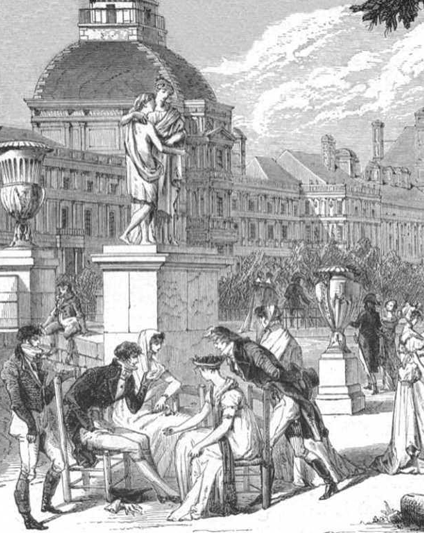 When it came to parallel parking between a real and an imaginary car, however, it did take me two attempts. Alas, somehow I had failed to convince the examiner that a road test and a written test are typically designed to examine different kinds of knowledge: the former actual driving skills under real conditions and the latter knowledge of driving under imagined conditions. My letter to the school's management after having failed the first test had no effect. It was later confirmed, however, that the school’s imaginary testing procedures are approved by the State of Washington. I have not had to parallel park since I took the test, but somehow I believe that I will get it right the first time when I find it truly necessary.
When it came to parallel parking between a real and an imaginary car, however, it did take me two attempts. Alas, somehow I had failed to convince the examiner that a road test and a written test are typically designed to examine different kinds of knowledge: the former actual driving skills under real conditions and the latter knowledge of driving under imagined conditions. My letter to the school's management after having failed the first test had no effect. It was later confirmed, however, that the school’s imaginary testing procedures are approved by the State of Washington. I have not had to parallel park since I took the test, but somehow I believe that I will get it right the first time when I find it truly necessary.
I do not recall what I was wearing this second time around, but the weather conditions had changed, so it was probably not the same.
In the conversation that followed the second road test I was asked why I had returned to Seattle. It was a good question, because by this time I was beginning to ask myself the same.
Yes, driving in the State of Washington is special, and in order to prepare one for this unique experience, one must be properly prepared for all sorts of imaginary events. Maybe next year I will attend Seattle’s spring costume festival dressed as an examiner from Defensive Driving - Seattle. A bright yellow Tuxedo with black shoes, bowtie, cane, and top hat. And, oh yes, a fist full of dollars in my left hand. My mode of transport will be a Chinese manufactured sidewalk-hovercraft with flashing red and blue lights!
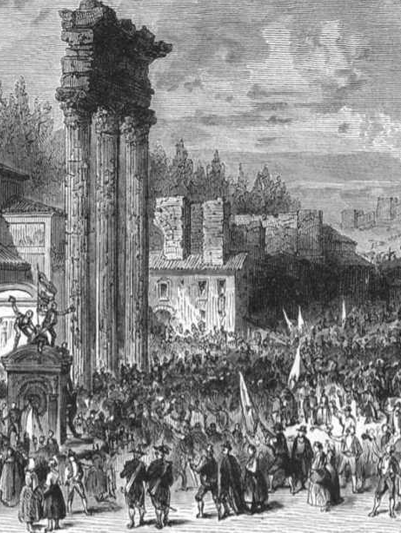 When I discovered that the Social Security office was located in Seattle’s Federal Building I had mixed feelings. On the one hand, it was only a ten-minute walk from my residence on First Hill; on the other hand, it was in the same building in which the departments of Homeland Security (DHS) and State (DOS) caused me a six-month delay in obtaining a new passport and thousands of US dollars in lost revenue eight years before.
When I discovered that the Social Security office was located in Seattle’s Federal Building I had mixed feelings. On the one hand, it was only a ten-minute walk from my residence on First Hill; on the other hand, it was in the same building in which the departments of Homeland Security (DHS) and State (DOS) caused me a six-month delay in obtaining a new passport and thousands of US dollars in lost revenue eight years before.
I gathered together all that was required by the Social Security office and took nothing with me that would arouse suspicion at the building’s entry. When I was asked to take off my belt and shoes after presenting my newly issued State of Washington I.D. card with my local Seattle address and brand new photograph, I could not remain silent. Was I boarding an airplane to travel overseas? Or, was I entering a US government office as a natural born, certified, citizen of the United States of America? I had had less trouble at the door of the US embassy in Jeddah, Saudi Arabia — a building surrounded by barbed wire, gun turrets, and uniformed personnel armed with automatic weapons.
Knowing well that I would not be permitted entry, if i did not do as I was told, I simply asked for which side of the empire he and his buddies worked? He responded that he did not work for the government and surprised me that he was able to make the intended association between the words US government and empire without my having to prompt him. So, I asked him, if his employer were not a government contractor, and he responded that it was none of his business. We were making progress. For, already I knew what my response would be, if he were he to ask me why I wanted to enter the FEDERAL building.
When I got off the elevator, I saw two men dressed in uniforms and wearing guns. They were standing in a doorway. I knew immediately that I was on the proper floor. For what would a social security office be without armed guards?
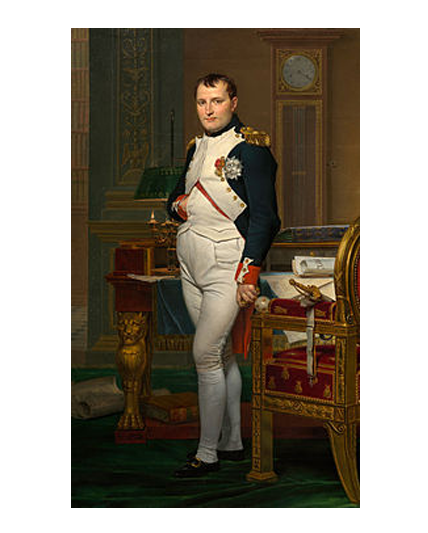 When I arrived at the door I was asked to answer a few questions that would be posed to me by a robot upon being prompted. As the machine was veiled, I could not see the monitor without having to bend over. So, I attempted to raise the veil. Whereupon I was told not to touch it and bend over. When I asked the guard to enter the information for me, he complied. Maybe he thought that I had back problems? In any case, this guy understood government service and immediately gained my respect. Yes, he was shorter than I and could see the screen without having to bend over. Important was that we could both stand and I had gained the respect of the apparently more attentive and likely very bored, seated audience in front of the robot. For when I looked for a place to sit someone vacated the occupied seat next to him and invited me to sit. He turned out to be the first African-American with whom I had ever spoken about liberty, and we had a great conversation. I have not seen him since, but would surely recognize him with his clothes on, and maybe even with his clothes off. There are simply some encounters that one does not easily forget.
When I arrived at the door I was asked to answer a few questions that would be posed to me by a robot upon being prompted. As the machine was veiled, I could not see the monitor without having to bend over. So, I attempted to raise the veil. Whereupon I was told not to touch it and bend over. When I asked the guard to enter the information for me, he complied. Maybe he thought that I had back problems? In any case, this guy understood government service and immediately gained my respect. Yes, he was shorter than I and could see the screen without having to bend over. Important was that we could both stand and I had gained the respect of the apparently more attentive and likely very bored, seated audience in front of the robot. For when I looked for a place to sit someone vacated the occupied seat next to him and invited me to sit. He turned out to be the first African-American with whom I had ever spoken about liberty, and we had a great conversation. I have not seen him since, but would surely recognize him with his clothes on, and maybe even with his clothes off. There are simply some encounters that one does not easily forget.
Two and one half hours after my arrival I left the building with the thought that I would never have to return again.
It is important to understand my purpose for having gone: it was to obtain permission to register online. For some reason that I still do not understand the online system rejected me, and I was told in a telephone conversation that I would have to report in person in order to authenticate my identity. Never mind that, by now, I had a valid US passport, bank account, social security number, permanent US address, and telephone number. The only inconsistency in all of these documents was the name on my social security card and newly issued State of Washington I.D. For, these latter bore my name given to me at birth, and all other documentation bore only my first and middle initials. One can only imagine what makes the US Department of State so different from the other arms of the Great American Hydra. No, Hillary was not in office when the State Department agreed to enter only the initials of my first and middle names.
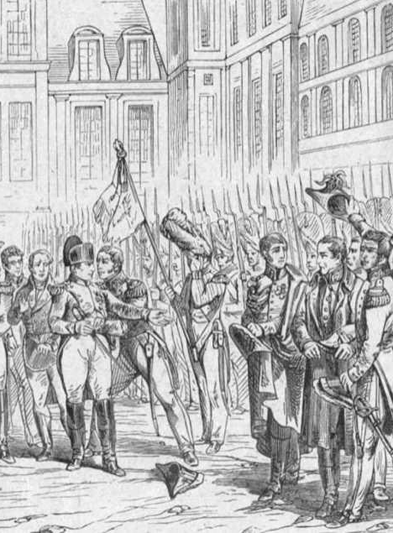 No matter, that it had taken me six months to provide the State of Washington with six certificates in 2007 just to gain entry into Seattle’s Federal Building. No matter that my social security card issued more than 40 years prior was among the six certificates. Nope, none of it mattered, for when I was finally able to register online, there was my name written in the same way that it has been written nearly 50 years ago. That my name on my passport and Social Security card remain different, but that my name on my Socical Security card and State of Washington I.D. are the same goes along to explain the current state of government in the US. In brief, one arm of our central planning agency does not know what the other arm is doing, but when it comes to usurping states' rights all arms are right on top. Had President Lincoln only been assassinated after making his first inaugural address, rather than someone having waited until after Appomattox! And, Americans believe that the French were tardy. Bien alors!
No matter, that it had taken me six months to provide the State of Washington with six certificates in 2007 just to gain entry into Seattle’s Federal Building. No matter that my social security card issued more than 40 years prior was among the six certificates. Nope, none of it mattered, for when I was finally able to register online, there was my name written in the same way that it has been written nearly 50 years ago. That my name on my passport and Social Security card remain different, but that my name on my Socical Security card and State of Washington I.D. are the same goes along to explain the current state of government in the US. In brief, one arm of our central planning agency does not know what the other arm is doing, but when it comes to usurping states' rights all arms are right on top. Had President Lincoln only been assassinated after making his first inaugural address, rather than someone having waited until after Appomattox! And, Americans believe that the French were tardy. Bien alors!
A month and a half passed, and still I had not received in my building’s post box the documents that I was told I would receive in several days. So, I called the toll-free, taxpayer-funded number provided on the documents obtained while at the Federal Building and asked what had happened. We compared addresses and discovered that my apartment number did not appear in their records. I could not imagine my not having given it, but I could easily imagine the office not having entered it. Never mind, no one is perfect!
Perhaps my postman was a numerologist and cared little about the names of those to whom he delivered his mail. Or, perhaps he was islamophobic and could not get past the idea that one of the recipients of his junk mail had worked for a Saudi University. Or, maybe he believed that I was a direct descendent from Hitler, because my father’s stepfather was proud of his German roots and refused to pervert the spelling of his name in an effort to placate whoever was in charge of the US Immigration and Naturalization Services while the government of the Weimar Republic was still printing counterfeit Deutschemark. In any case, my former Saudi business card carefully placed in the bottom of my mail box in an effort to provide name recognition had been to no avail.
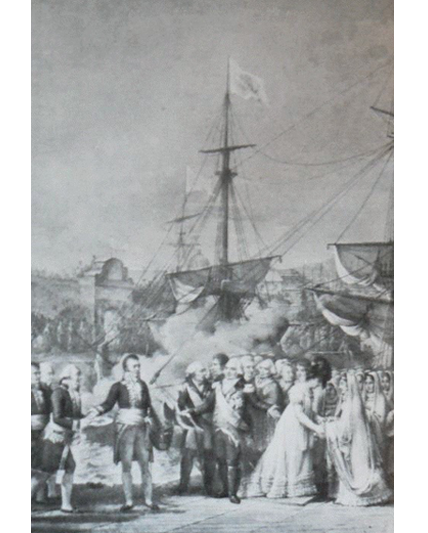 According to the Social Security office, "address changes can not be made over the telephone", and I would not be allowed to make the change online until I had received the documents that had been sent to me, but never arrived. Another two-and-a-half-hour wait in Seattle’s Federal Building? I could not bear the thought of it. So, I made another call, but this time to my local office in the Federal Building. “Would it be possible for you to fix my address, so that I might avoid another visit”, I asked. “We are sorry, Sir”, I heard, “We do not have access to your personal file.” Oh really? Was it credible that my personal information could be obtained by people working at who-knows-where in a central government clearing house, but not by the very same who process my account locally? Unlikely. In reluctant anticipation of the inevitable, however, I made another telephone call to the toll-free, taxpayer-funded, who-knows-where, central clearing house number and set up a time for an appointment at my local office. It would be another six weeks before I could add my apartment number to my street address at my scheduled appointment and still another ten days before I could finally receive my special code and apply online.
According to the Social Security office, "address changes can not be made over the telephone", and I would not be allowed to make the change online until I had received the documents that had been sent to me, but never arrived. Another two-and-a-half-hour wait in Seattle’s Federal Building? I could not bear the thought of it. So, I made another call, but this time to my local office in the Federal Building. “Would it be possible for you to fix my address, so that I might avoid another visit”, I asked. “We are sorry, Sir”, I heard, “We do not have access to your personal file.” Oh really? Was it credible that my personal information could be obtained by people working at who-knows-where in a central government clearing house, but not by the very same who process my account locally? Unlikely. In reluctant anticipation of the inevitable, however, I made another telephone call to the toll-free, taxpayer-funded, who-knows-where, central clearing house number and set up a time for an appointment at my local office. It would be another six weeks before I could add my apartment number to my street address at my scheduled appointment and still another ten days before I could finally receive my special code and apply online.
On the night of the postal arrival I accessed my account only to be told on the following day that I would have to return still again. It is at this point that the Saudi customs officer who had forced me to fly with British Airways, rather than Lufthansa came to mind. I will spare you the conversation that followed and simply state that an additional six weeks would be required, if I were not to spend another entire morning as a seated guest of the SSA. Why has the Seattle Federal Building (SFB) never been bombed? Surely, it is deserving!
On my last and hopefully final visit to the SFB I was offered the opportunity to apply for social welfare in addition to my social security benefits. I declined. I had just come for what was owed — i.e., stolen from — me and had no desire to have the government steal from others on my behalf. I am an American patriot. Sorry, Bernie, I do not approve.
I was unbelievably surprised when in several days I received my first social security payment. The drain on my savings was somewhat relieved, and I would be able to live an additional month, if only I could survive the next three!
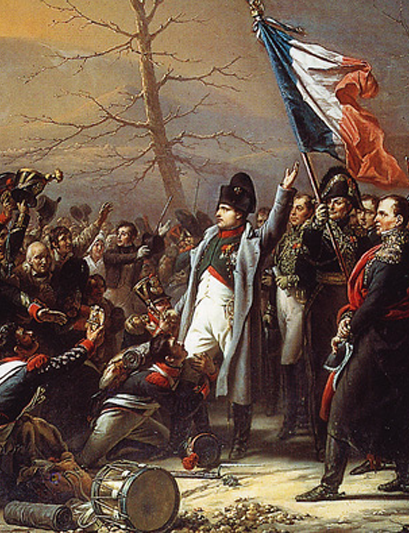 I do not recall having been given the choice of choosing Plan A of Medicare, but I did not object when I learned that it was included with my SS payments. After all, I did not know whether I would remain in the country or leave, and having spent twenty-three of the past twenty-five years outside of the country, I was quite accustomed to socialized medicine. Surely, I could live without insurance for a couple of months, but what if someone discovered that I was not insured when I could have been. I did not know whether ObamaCare applied to retired seniors, and I had already been chided for assuming unnecessary risk by a state-certified official see What brought you back to Seattle? above. Moreover, I had no desire to inquire about a new law that few people liked and would surely be repealed as soon as Obama left office.
I do not recall having been given the choice of choosing Plan A of Medicare, but I did not object when I learned that it was included with my SS payments. After all, I did not know whether I would remain in the country or leave, and having spent twenty-three of the past twenty-five years outside of the country, I was quite accustomed to socialized medicine. Surely, I could live without insurance for a couple of months, but what if someone discovered that I was not insured when I could have been. I did not know whether ObamaCare applied to retired seniors, and I had already been chided for assuming unnecessary risk by a state-certified official see What brought you back to Seattle? above. Moreover, I had no desire to inquire about a new law that few people liked and would surely be repealed as soon as Obama left office.
I was generally amused when I discovered that I would not be eligible to apply for Plan B of Medicare. The reason given was that I had been without medical insurance for six months prior to my application. Firstly, this was simply not true, and secondly, I thought the idea was to take care of the aged -- not hang them out to dry because they did not have insurance. Up until the week before I quit Saudi Arabia in March, the Saudi government was still paying for most of my pharmaceutical needs and somewhat frequent visits to my favorite dermatologist, Abdullah Al Ghamdi, at the KAU Clinic in Jeddah. I had contracted warts while driving my AVEO in bare feet — a wonderful habit in which I revelled until I took my car into the shop one day and someone else in bare feet sat at the wheel. No matter, my employment had ended officially in August of 2014, and now it was June of 2015. Did I not know how to count? Excuse me, but what was at issue: my having been insured or a piece of paper that said when my employment officially ended? That I had an exit visa and could prove that I was medically insured by my former Saudi sponsor had no effect. Alright, so when would I be eligible to apply for Plan B again? Not until January of 2016. Fine. I will wait until then and take my chances. I am one very healthy senior, and the one health problem that had caught me by surprise was likely of my own doing — not to be repeated. Already I was longing for the taste of kabsa. Somehow the wine that I could now obtain whenever I wanted was no longer a replacement. Even Al Baik Chicken -- Jeddah's very competitive alternative to The Colonel -- was not more attractive.
American Academia and Beyond
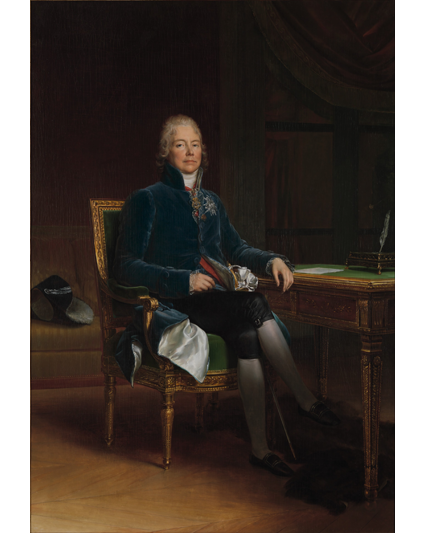 As soon as it became clear that I would be able to remain in the Panama Hotel until I found a more permanent residence, I began looking for employment. Obviously my employment would be an important determinant of my choice of residence. Commuting between Spokane and Seattle, for example, would not work.
As soon as it became clear that I would be able to remain in the Panama Hotel until I found a more permanent residence, I began looking for employment. Obviously my employment would be an important determinant of my choice of residence. Commuting between Spokane and Seattle, for example, would not work.
I recalled the lists of schools that my good friend Sadykh Sadykhov had provided me when I returned from Hong Kong to Seattle in 2007 as an economic refugee and began a thorough search on the internet. My initial focus was on full-time employment at four-year schools or universities in the State of Washington. I was counting on the fact that I was a graduate from the University of Washington. For, at the time of my graduation my school was once ranked among the top 30 graduate schools in the US for economics.
Unfortunately, there was nothing available on either side of the mountains that did not require a Ph.D. in economics. In passing I also looked for positions in teaching English as a second language, but all of these openings required an M.A. degree in TESOL.
My goal was to get into a classroom filled with young Americans. Having spent twenty-three of the past twenty-five years overseas I very much wanted to experience an American classroom that was not filled with foreigners. I was desirous of dialogue with American youth. My experience overseas had taught me that youth are a rich source of information about the attitudes and values of their own society, and I wanted to know how America had changed over the past two decades. There would simply be no better way than to stand before a group of inquistive and challenging youth.
Unable to find an opening without the aforesaid Ph.D. I shifted gears, reassessed, and began looking for work at community colleges. As there were far many more community colleges than there were four-year schools, I also changed my academic focus from either English or economics to only economics. Teaching English as a second language meant teaching foreign students in the United States. It also meant that I would be surrounded by mostly monolingual English language teachers intent on inculcating foreign students in the American way — a way about which I now had more questions than answers.
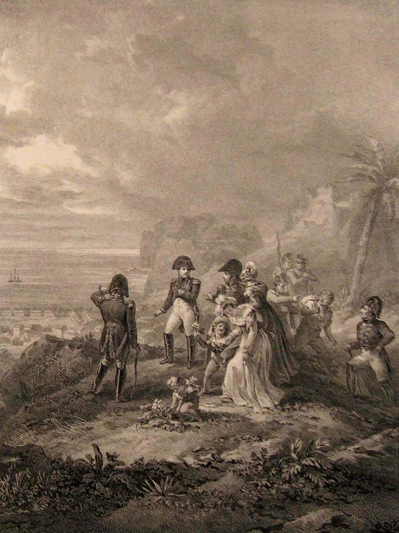 Having spent so many years observing the United States from the outside looking in I had come to realize that America was not at all what I had once thought it to be. I had shed my national virginity and was able now to view the United States from the perspective of the peoples of other nations. Rather than judging the world using, what I have now come to understand as phony American standards, I was in possession of a more objective personal standard that I had acquired over the years while living in eight nations on three continents including the Middle East.
Having spent so many years observing the United States from the outside looking in I had come to realize that America was not at all what I had once thought it to be. I had shed my national virginity and was able now to view the United States from the perspective of the peoples of other nations. Rather than judging the world using, what I have now come to understand as phony American standards, I was in possession of a more objective personal standard that I had acquired over the years while living in eight nations on three continents including the Middle East.
If this were not enough, I largely reject the way in which the English language is being taught around the world today. The industry is corrupt, and there are not a few interest groups, both inside and outside of government, who are benefitting from the corruption. And, as you might very well guess, the losers are our children and their parents who must cover the social and economic costs of the corruption.
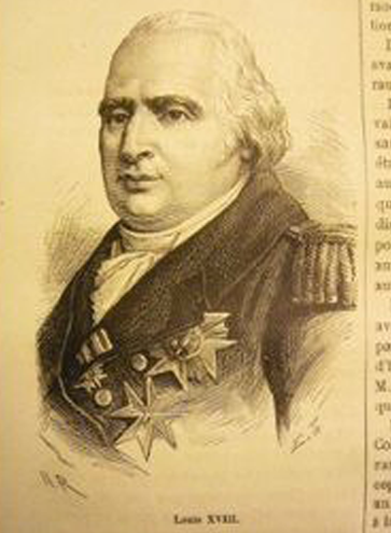 Finding employment in economics would not be much easier. Although I still have good command of what I learned, I am no longer satisfied with many of the outcomes in which my learning and the learning of others has resulted. My discovery of the Spanish-Austrian school has made it difficult for me to parrot further the many models peddled to me by mainstream economists during my graduate formation. What I once viewed as reasonable assumptions about the world I now regard more often as sophistic presumptions created to build models for the sake of building models. What is worse, I have come to realize that much of the contemporary economics profession is little more than a tool of the state used to legitimize government control of the market place. Even Milton Friedman, once an important voice to be heard, was no longer sufficient to yoke my skepticism of the practical utility of mainstream economics. Indeed, today I am thankful that I never obtained my Ph.D. in economics — this despite, the difficulty that I encountered since having been denied the opportunity.
Finding employment in economics would not be much easier. Although I still have good command of what I learned, I am no longer satisfied with many of the outcomes in which my learning and the learning of others has resulted. My discovery of the Spanish-Austrian school has made it difficult for me to parrot further the many models peddled to me by mainstream economists during my graduate formation. What I once viewed as reasonable assumptions about the world I now regard more often as sophistic presumptions created to build models for the sake of building models. What is worse, I have come to realize that much of the contemporary economics profession is little more than a tool of the state used to legitimize government control of the market place. Even Milton Friedman, once an important voice to be heard, was no longer sufficient to yoke my skepticism of the practical utility of mainstream economics. Indeed, today I am thankful that I never obtained my Ph.D. in economics — this despite, the difficulty that I encountered since having been denied the opportunity.
Still, there was enough good in what I had learned that I good satisfy both my need to look beyond and the demands of a contemporary mainstream economics department.
Although I was able to identify several openings, they were nearly all at federally-funded community colleges and required that I apply online through a central government agency website called neogov.com (or neocon.gov). Following the expected procedure simply did not produce the expected outcome. Imagine a carefully constructed egg, that had taken many millennia of chance and careful selection to create, scrambled in a bowl, poured into a baking crust, and served as quiche. This is what neogov.com did to my resumé when I uploaded it.
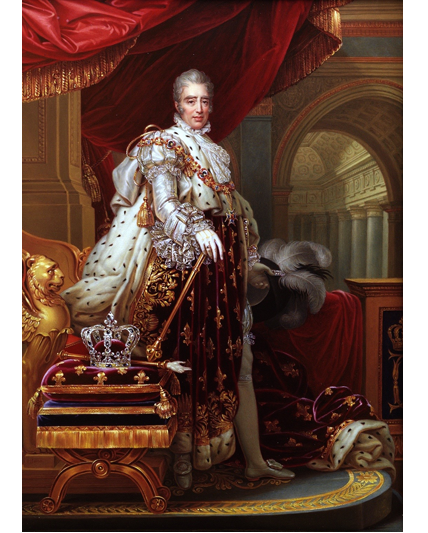 My resumé is six pages long and organized in a manner that is not easily read by a computer program. It was created with Adobe’s In-Design and has been exported into a PDF document for cross-platform distribution. Further, it contains a header and footer, as well as multiple sections sorted by country and employment sector. In one section there are parallel columns whose chronological information can only be understood one column at a time. Although it contains all of the information normally required by employers, the information is organized in a manner that surely no computer program can reliably read and sort in the manner that neocon.gov requires. As the program does not allow the user to undo his action, I was required to clean nearly every text-box created by the program and replace it with the correct information. After the second page I began asking myself why I was performing someone else’s clerical work, and why I should bother to fill out even more than two pages. My chances of getting past two of the entries (age and certification) on the first page were really small. Taken together, my answers to these two question would surely disqualify me in the minds of ninety percent of the people who would have access to my data. So, rather than erase page after page of wrongly processed data, I decided to delete the entire account and start over. It was not permitted.
My resumé is six pages long and organized in a manner that is not easily read by a computer program. It was created with Adobe’s In-Design and has been exported into a PDF document for cross-platform distribution. Further, it contains a header and footer, as well as multiple sections sorted by country and employment sector. In one section there are parallel columns whose chronological information can only be understood one column at a time. Although it contains all of the information normally required by employers, the information is organized in a manner that surely no computer program can reliably read and sort in the manner that neocon.gov requires. As the program does not allow the user to undo his action, I was required to clean nearly every text-box created by the program and replace it with the correct information. After the second page I began asking myself why I was performing someone else’s clerical work, and why I should bother to fill out even more than two pages. My chances of getting past two of the entries (age and certification) on the first page were really small. Taken together, my answers to these two question would surely disqualify me in the minds of ninety percent of the people who would have access to my data. So, rather than erase page after page of wrongly processed data, I decided to delete the entire account and start over. It was not permitted.
OK. I was not destined to work for another government agent, not in the US or anywhere else! Well, OK, but wait! I still needed a source of income, right? And, what about all of the youthful souls that I could save from the clutches of the state? So, once again, I expanded my search to include openings in both English and economics and began contacting the personnel departments of schools in the old-fashioned, pre-neocon.gov era — one at a time.
Of all of the schools that formed a part of the neocon.gov framework I found only three that would accept my application for employment. No amount of explanation would satisfy the rest. You either performed their clerical work for them free of charge, or you would not be considered.
Of course, the simple solution would have been to log in to the neocon.gov website using a completely different email account and user I.D. This effort would only have been worth my while, however, if I truly believed: one, that I had a chance of getting past the aforementioned two data points (age and certification); and two, that I were sincere about my probable survival at such institutions. No, I was beating my head up against a wall.
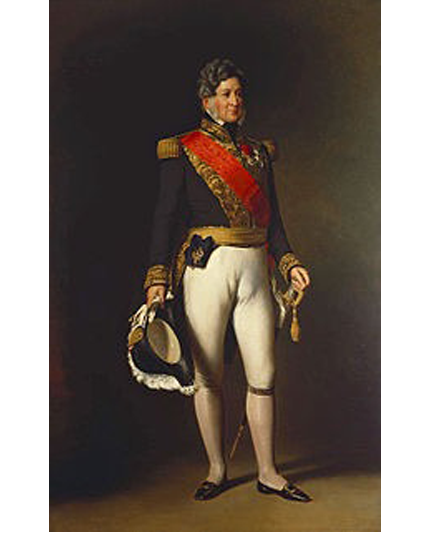 As soon as I became settled in my new apartment, I planned my first visit to Seattle University — one of the two schools within walking distance of my residence. Before going I checked the school’s webpage and discovered an opening in the economics department. I was so happy. After all that had transpired since my arrival in the United States nearly two months earlier, I was finally blessed with good fortune.
As soon as I became settled in my new apartment, I planned my first visit to Seattle University — one of the two schools within walking distance of my residence. Before going I checked the school’s webpage and discovered an opening in the economics department. I was so happy. After all that had transpired since my arrival in the United States nearly two months earlier, I was finally blessed with good fortune.
The school was looking for someone to teach micro- and macroeconomic principles at the undergraduate level. Although a Ph.D. was a clearly-stated minimum requirement, surely it would be a barrier that I could overcome. After all, many a teaching assistant has taught economic principles, and it is generally preferable to have someone at the undergraduate level with broad academic experience -- someone, who can appeal to students from all walks of life. In addition to my many years of overseas experience I am also homegrown. And, best of all, I would be on site with face-to-face interaction.
I am a University of Washington alumnus and had once taught principles at Western Washington University in Bellingham. I also presented my first published paper at the Pacific Northwest Regional Economics Conference (PNREC) in Bellingham, Washington and had once interviewed with the Port of Seattle for a job with a private research firm. For the interview I created a mathematical model to measure overseas and inland trade flows through the Port of Seattle and other west coast ports.
In addition, I had worked for several years as a teaching assistant at the University of Oklahoma, where I taught micro- and macroeconomic principles and American economic history. There was also my subsequent work as an adjunct faculty member at Oklahoma City University where I taught securities markets and portfolio analysis after receiving my first M.A. in Norman. While overseas I taught US-Japan trade relations at Saitama University in Japan, Japanese economy at The Chinese University of Hong Kong, and numerous undergraduate courses in principles and introductory business management at several post-secondary schools in East Asia.
As Seattle is a prominent West Coast trading port, surely my knowledge of East Asian language and culture would be advantageous in a Seattle University classroom. Moreover, the school has a large foreign student body, and I have lived and worked in eight countries on three continents including the Middle East. This is to say nothing of my having good fluency in four language and partial comprehension in several more.
In short, not only am I well-versed in the subject matter, but I am able to make the course material appealing to a broad range of people.
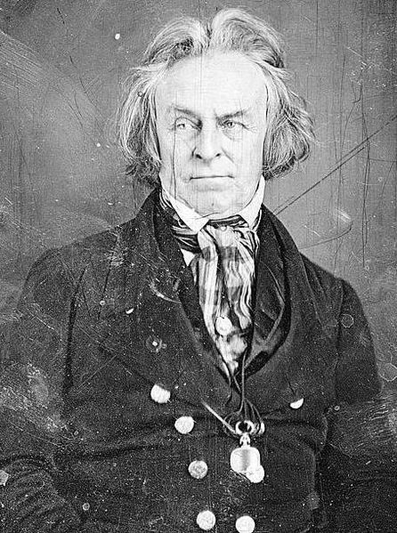 So, I tried to set up an appointment with the acting chairperson of the economics department, but she was not in. I called twice, left a message, and still no reply. So, I scoured the faculty profiles on the university’s webpage and discovered that, beyond our interest in economics, the acting chair and I shared little in common professionally. As susupected, no one on the entire faculty roster indicated an interest in the Austrian school on his resumé. I was not off to a very good start.
So, I tried to set up an appointment with the acting chairperson of the economics department, but she was not in. I called twice, left a message, and still no reply. So, I scoured the faculty profiles on the university’s webpage and discovered that, beyond our interest in economics, the acting chair and I shared little in common professionally. As susupected, no one on the entire faculty roster indicated an interest in the Austrian school on his resumé. I was not off to a very good start.
While in Auburn I was told that my chances of finding work teaching Austrian economics in the United States were not good, so I decided to look for a back door, copied the name of the textbook that was used by the school to teach economic history, and went to the school’s bookstore to obtain a copy. My experience with mainstream economics had taught me that, if the Spanish-Austrian school were to receive mention, then it would be in a history of economics textbook. My goal was to read the treatment in the text, make an appointment with the faculty member in charge of the history of economics, and discuss the possibility of teaching a full course on the Spanish-Austrian school at Seattle University.
To my surprise the book was no where to be found. In addition to Seattle University’s bookstore, I checked a local bookstore, the Seattle Public Library, the University of Washington library, as well as the University Bookstore in the U-District. Nothing. So, I called the professor on whose website I had found the book title and asked, if it would not be possible to borrow his copy. He replied, no. Thinking that additional encouragement may be needed I returned to the university’s website, discovered his office hours, and paid a visit. He never showed.
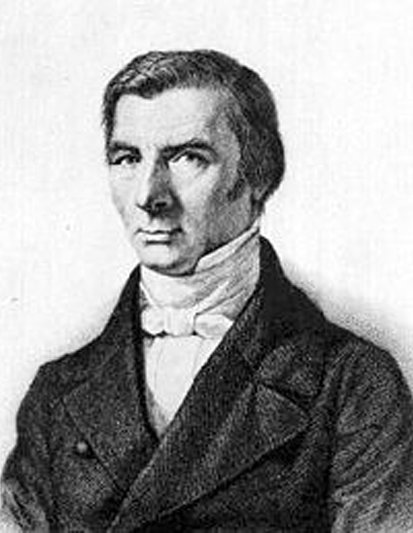 Rather than wasting any more time with the economics department I sought the counsel of the dean of the school of business. We spoke at length. During our discussion I learned that it would not be possible for the economics department to change the Ph.D. requirement in the term for which the opening had been scheduled. In addition, he explained how the university is organized and administered and provided me with additional contacts and possible avenues of entry. As a result of our discussion I interviewed with the director of the school’s core curriculum and learned that the school was largely dissatisfied with the economic department’s contribution to the school’s core program.
Rather than wasting any more time with the economics department I sought the counsel of the dean of the school of business. We spoke at length. During our discussion I learned that it would not be possible for the economics department to change the Ph.D. requirement in the term for which the opening had been scheduled. In addition, he explained how the university is organized and administered and provided me with additional contacts and possible avenues of entry. As a result of our discussion I interviewed with the director of the school’s core curriculum and learned that the school was largely dissatisfied with the economic department’s contribution to the school’s core program.
So, I returned to the economics department, spoke with the department’s secretary, explained to her that I had tried to contact the department’s acting chairwoman several times, but was unsuccessful. Whereupon she gave me the same information that I had found on the department’s website and told me to try again. This time I received a reply. No, the department’s contribution to the school’s core curriculum was decided several years ago, and those designated for the task in the upcoming academic year had already been selected. Never mind that I had spoken with the director of the core program and had developed a syllabus better suited to the needs of the core program. Never mind that those selected could be deselected. No, there would be no reason for the acting chairwoman and I to meet.
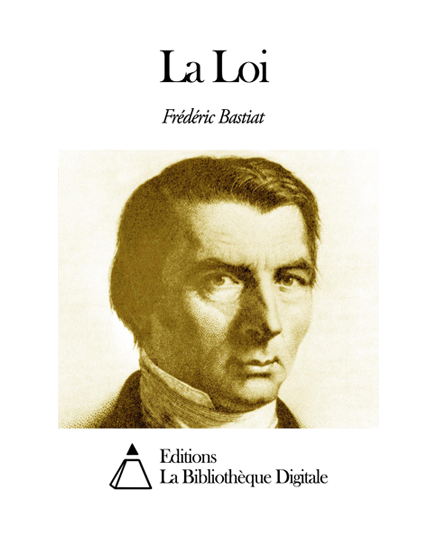 The prize was too large, and my outlook in the State of Washington and elsewhere was already quite bleak. So, I returned to the director of the core curriculum once more and discovered: one, course contributions to the core curriculum could come from any department; and two, there was no fixed limit on the number of core courses that a single department could contribute. Either the acting chairwoman of the economic’s department was poorly informed, or she was not telling the truth. But, why cause trouble?
The prize was too large, and my outlook in the State of Washington and elsewhere was already quite bleak. So, I returned to the director of the core curriculum once more and discovered: one, course contributions to the core curriculum could come from any department; and two, there was no fixed limit on the number of core courses that a single department could contribute. Either the acting chairwoman of the economic’s department was poorly informed, or she was not telling the truth. But, why cause trouble?
The Spanish-Austrian school is about more than just economics; it is a cornerstone of political liberty. Although the Spanish-Austrian school can be traced back to the School of Salamanca in 15th century Spain, Nicole Oresme, a French philosopher, theologian, and eventually Catholic bishop, was writing about the political economy of money already in the mid-14th century. Even before the Magna Carta in 1215, the notion of private property was an entrenched British tradition. This said, as a political philosophy, classical liberalism did not take hold until after the invention of the printing press in the mid-15th century and the subsequent protestant revolution that swept across Europe as a result. By the middle of the 18th century classical liberalism was taking hold in Europe where it would remain the dominant (not always actual) political and economic philosophy for nearly a century. The rise of nationaism toward the end of the 19th century made it difficult for classical liberalism to survive, and the school was pushed aside by the Keynesian revolution in the first half of the 20th century. As a result, it languished for several decades. The modern liberalism of today barely resembles the classical liberalism of yesteryear, and it is indeed the classical school that needs to be revived. Fortunately, a few very dedicated scholars, like Ludwig von Mises, Friedrich Hayek, Henry Hazlitt, Murray Rothbard, and others, kept the classical school alive during the Dark Era of modern liberalism from which we have yet to escape.
Having struck out in the economics department I decided to explore the student body for clues about faculty interest in classical liberalism, the Spanish-Austrian school, and political liberty. A google search revealed a list of student clubs and a Facebook page claiming to be the school’s Young Americans for Liberty (YAL). As I had quit Facebook already a year before, I found the Twitter account of the student listed as the club’s president. Repeated attempts to establish contact with the account's owner, resulted in failure. 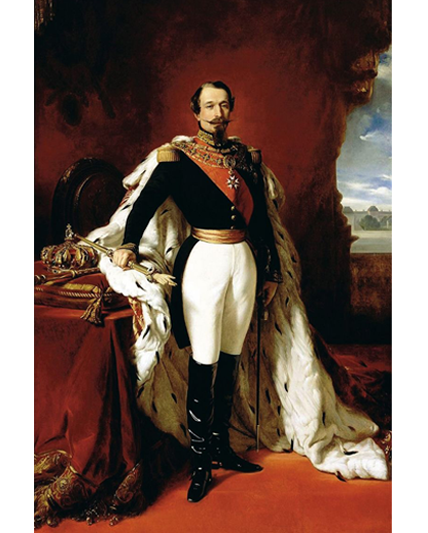 A subsequent visit to the student affairs office at the university revealed that YAL (SU) was not even a registered student club. Indeed, it appeared to be little more than a group of student campers. In fact, with the exception of a single club that appeared to have been disbandoned, the entire list of registered clubs read like a Who’s who? list of modern liberal thinkers. So, I discovered the name of the faculty sponsor of the disbandoned club, sent a copy of my resumé, and indicated that I was interested in finding employment at Seattle University. Rather than agreeing to a free coffee and a meeting at his own convenience, he told me to contact the personnel department.
A subsequent visit to the student affairs office at the university revealed that YAL (SU) was not even a registered student club. Indeed, it appeared to be little more than a group of student campers. In fact, with the exception of a single club that appeared to have been disbandoned, the entire list of registered clubs read like a Who’s who? list of modern liberal thinkers. So, I discovered the name of the faculty sponsor of the disbandoned club, sent a copy of my resumé, and indicated that I was interested in finding employment at Seattle University. Rather than agreeing to a free coffee and a meeting at his own convenience, he told me to contact the personnel department.
Well, yes, I was a stranger, but my six-page resumé would have suggested that I was not born yesterday and could easily have discovered the school’s personnel department on my own. As his own resumé suggested that he was interested in East Asian film production one would have thought that my 19 years of experience in East Asia might have been worth a new acquaintance. Nope, I could not even persuade him to recommend someone in the philosophy department currently interested in classical liberal thought, this despite the apparent, previous interest in classical liberalism that was stated on his resumé.
A visit to the office of continuing education also resulted in a dead end. For there the interest was similar to what I would later find at Seattle Central College, the other of the two four-year schools within walking distance of my residence. Continuing education in Seattle is about skills training, not intellectual development. That’s right. No time for thinking. America in Seattle is about doing -- serving the master blindly. The more skills that you bring to the table, the better it is for you and those for whom you work. For with your skills you fuel the avarice of the machine and make manipulation of others more probable and profitable. It is the heavy hand of American pragmatism written large, and the patriotic soul that once made America great has been left to wither in the pews of Christian theocrats and in the textbooks of modern liberal technocrats -- the new American Mandarins.
Please do not misunderstand. I am not against technological advancement and social development. Simply there is something more enduring about human nature that should be forever renewed and has been abandoned by those who fill the pulpits of America’s so-called institutions of higher education -- namely, the common sense of classical wisdom.
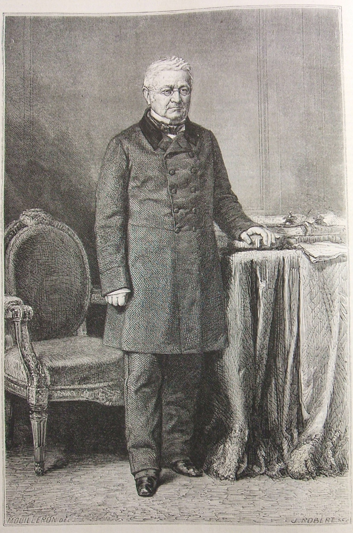 I had learned enough. So, rather than bother with the school’s history or political science departments, I located the office of the vice president of academic affairs and was told by his secretary to send an email. This I did. After waiting a week with no response, I returned to the vice president’s office and asked his secretary to notify him of my intention. I then returned home and sent another email. This time there was a response, and we agreed to an appointment in the following week. Three appointments later, each costing me a week of waiting time, I was able to convince him that I was well able to deliver my message. And, he was well able to convince me that I would not be permitted. During our final meeting, however, he did offer one ray of hope and suggested that I contact the university’s English language institute. So, I asked him whether I could use him as a reference, and he warmly agreed. As I was leaving I exclained, "If only an M.A. in TESOL is not required".
I had learned enough. So, rather than bother with the school’s history or political science departments, I located the office of the vice president of academic affairs and was told by his secretary to send an email. This I did. After waiting a week with no response, I returned to the vice president’s office and asked his secretary to notify him of my intention. I then returned home and sent another email. This time there was a response, and we agreed to an appointment in the following week. Three appointments later, each costing me a week of waiting time, I was able to convince him that I was well able to deliver my message. And, he was well able to convince me that I would not be permitted. During our final meeting, however, he did offer one ray of hope and suggested that I contact the university’s English language institute. So, I asked him whether I could use him as a reference, and he warmly agreed. As I was leaving I exclained, "If only an M.A. in TESOL is not required".
The provost appeared sincere, and I contacted the director of the institute. In my cover letter I explained to him that I had spoken with the provost and understood that the institute was undergoing an expansion. Without even inviting me for an interview the director recommended that I return to school and obtain a master’s degree in TESOL. According to him I would find it easy and interesting, and the certificate would greatly enhance my chances of obtaining future employment. I could only wonder, if he had read much beyond noting that I had no formal certification in TESOL. Had he any idea how old I was? Did he even bother to note that I have been teaching English as a second and foreign language since 1974? Did he even bother to visit the HKLNA Project website: a scathing and well-researched critique of Hong Kong’s English language industry with important lessons for the world's English language industry as a whole?
Alas, I wrote back that I would have obtained an M.A. in TESOL a very long time ago, if I had thought that it would contribute significantly to my performance in the classroom, my understanding of language, or even my ability to find employment. Only with the last point was I stretching the imagination, but what would he know? Had he taught English in eight countries on three continents including the Middle East? Had he acquired three second language’s with good to excellent oral and written fluency? Had he any idea what it was like to live in cultures like Japan, Korea, and Saudi Arabia for any length of time? A careful examination of his own resumé suggested to the contrary. Well, at least I had been invited to reapply after having received an M.A. in TESOL. Then too, one can only imagine how his story would have changed in the interim. No, I could take his suggestion seriously.
As Seattle University was the only school of higher education close enough to my residence to make such an assiduous effort again, I had to try a different strategy.
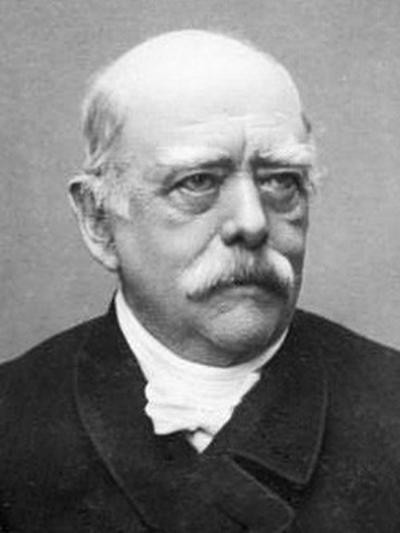 When I graduated from the University of Washington in 1990 I was offered a full-time temporary post in economics at Western Washington University (WWU). A permanent faculty member had taken leave for the fall term, and I was invited to fill in. So, I checked the university’s website for another job as an economics instructor, but none was available. Although I had little desire to teach English in the US and near-zero hope of finding employment at a US university doing the same, I looked for an opening anyway and found one. With the hope that my previous work experience at the university would provide me with a unique and competitive inroad I decided to apply. That the university had its own online application procedure different from that of neocon.gov was in itself a reason to apply. Still, I had trouble uploading the requested documents. So, I called the department hosting the opening for which I was applying and asked to speak with the program director. I was told that she was not in and should call back at a later time. This I did, but the director was in a meeting. So, I left my number and waited. Nothing. On my third telephone attempt I was permitted to speak with the director. After being corrected about the proper pronunciation of her name, I asked, if it would not be possible to send my documentation directly to her in an email. She said, no, and told me to contact the personnel department. In an effort to avoid wasting any more time I explained my situation with regard to age and certification and was told that no answer could be given about my eligibility until everything had been assembled and uploaded to the appropriate website.
When I graduated from the University of Washington in 1990 I was offered a full-time temporary post in economics at Western Washington University (WWU). A permanent faculty member had taken leave for the fall term, and I was invited to fill in. So, I checked the university’s website for another job as an economics instructor, but none was available. Although I had little desire to teach English in the US and near-zero hope of finding employment at a US university doing the same, I looked for an opening anyway and found one. With the hope that my previous work experience at the university would provide me with a unique and competitive inroad I decided to apply. That the university had its own online application procedure different from that of neocon.gov was in itself a reason to apply. Still, I had trouble uploading the requested documents. So, I called the department hosting the opening for which I was applying and asked to speak with the program director. I was told that she was not in and should call back at a later time. This I did, but the director was in a meeting. So, I left my number and waited. Nothing. On my third telephone attempt I was permitted to speak with the director. After being corrected about the proper pronunciation of her name, I asked, if it would not be possible to send my documentation directly to her in an email. She said, no, and told me to contact the personnel department. In an effort to avoid wasting any more time I explained my situation with regard to age and certification and was told that no answer could be given about my eligibility until everything had been assembled and uploaded to the appropriate website.
I smelled a rat, but went along for the ride. After all, she probably did not know that I was previously employed at the university, and a check of approval from the school’s personnel department might make all the difference. So, I explained that I was having trouble uploading my documents to the designated webpage and asked, if she could not identify for me the appropriate person to contact about my difficulty.
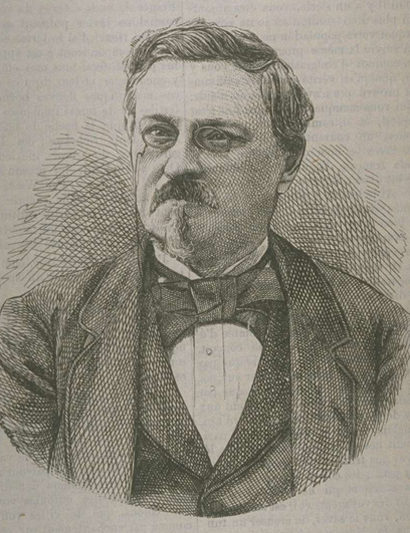 After our conversation I wrote a cover letter that reflected the conversation that I had had with the director. Her insistence on the correct pronunciation of her name suggested a person who might be focused on language correctness. So, I copied the brief, but poorly written employment announcement that I had found on the school’s webpage and copied it into the body of my cover letter. Accordingly, I corrected each error, provided a brief explanation for each correction, and concluded that the department could make good use of my services. Yes, my intent was somewhat facetious, but the approach served two important purposes: one, a demonstration of my command of the English language; and two, my potential usefulness to the program.
After our conversation I wrote a cover letter that reflected the conversation that I had had with the director. Her insistence on the correct pronunciation of her name suggested a person who might be focused on language correctness. So, I copied the brief, but poorly written employment announcement that I had found on the school’s webpage and copied it into the body of my cover letter. Accordingly, I corrected each error, provided a brief explanation for each correction, and concluded that the department could make good use of my services. Yes, my intent was somewhat facetious, but the approach served two important purposes: one, a demonstration of my command of the English language; and two, my potential usefulness to the program.
Several telephone calls later the personnel department agreed that their system was not functioning properly, fixed the problem, and I was able to upload my documents. Whereupon I contacted the program director and informed her that my online application had been completed.
Nearly a month after the position was suppose to be filled I received a letter from the personnel department explaining that I was not sufficiently qualified. So, I returned to the webpage where I had found the original employment announcement, and sure enough, the same mistakes were present.
I let the dead rat lie.
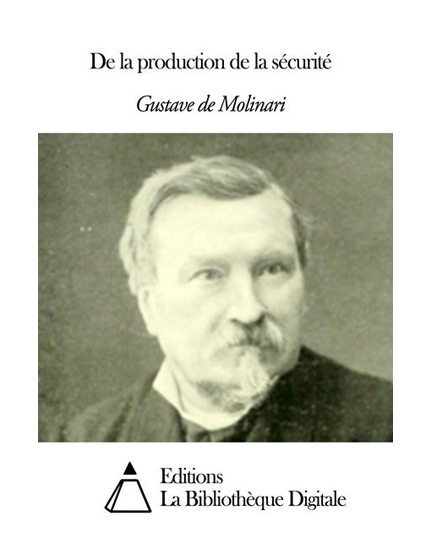 It was clear that finding work teaching English at an American university without an M.A. in TESOL would be like finding work teaching economics without a Ph.D. — next to impossible. This was disappointing, because I have spent most of my life teaching at the university level without either of these two certificates and truly wanted to become reacquainted with the American university classroom. I had been overseas for a very long time, and teaching in an American classroom filled with young Americans would have been a great way to become reacquainted with my homeland. Indeed, a teacher can learn so much about the values, attitudes, and thought processes of a nation by listening to its youth. I was eager to get started.
It was clear that finding work teaching English at an American university without an M.A. in TESOL would be like finding work teaching economics without a Ph.D. — next to impossible. This was disappointing, because I have spent most of my life teaching at the university level without either of these two certificates and truly wanted to become reacquainted with the American university classroom. I had been overseas for a very long time, and teaching in an American classroom filled with young Americans would have been a great way to become reacquainted with my homeland. Indeed, a teacher can learn so much about the values, attitudes, and thought processes of a nation by listening to its youth. I was eager to get started.
So, I decided to abandon the State of Washington and split my employment search geographically and institutionally between overseas universities and community colleges inside the United States. What is more, I applied for posts as both an English and economics instructor, and sometimes both of these at the same school. Further, I made exceptional use of private employment agencies that specialize in specific geographical areas, as well as, international employment forums such as tefl.com. I spread my net far and wide.
The private employment agencies were especially helpful, because they provided information that employment announcements and individual schools would not. In effect, overseas universities seeking talent from the United States were not listing age as a requirement for acceptance when, in fact, both governments and institutions were enforcing prescribed limits. The only explanation for this was negligence or deception on the part of the advertising institutions. If it were deception, then they were hiding behind a veil of political correctness so as not to offend the sensibility of potential US candidates. Unfortunately, I was a primary victim of this likely game, for no matter how many hours of time and effort that I would expend in an effort to overcome the age and certification barrier, the decision was already made before I set to work.
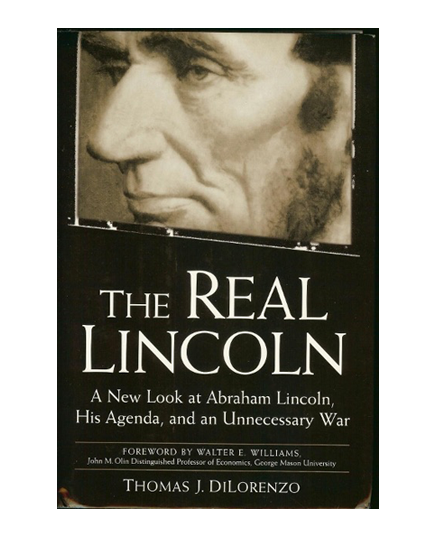 Not all institutions of higher education are organized in the same way and depending on current departmental needs and the available supply of qualified instructors exceptions to the industry standard can be found. Even so, as a statistical outlier it is difficult for me to pass through the data filters of most institutions. So, when I am finally able, I must be ready to pounce. With this in mind I decided to transform the paper that I had presented at the Ludwig von Mises Institute in March from a partially, into a fully described mathematical model that would be attractive to the recruiting committees of mainstream economics departments. For, in this way I could kill two birds with one stone: obtain a job and divert the attention of mainstream economists away from the impoverished notions of Keynesian economics to the more useful notions of the Spanish-Austrian school — namely, macroeconomics founded in solid microeconomic thinking.
Not all institutions of higher education are organized in the same way and depending on current departmental needs and the available supply of qualified instructors exceptions to the industry standard can be found. Even so, as a statistical outlier it is difficult for me to pass through the data filters of most institutions. So, when I am finally able, I must be ready to pounce. With this in mind I decided to transform the paper that I had presented at the Ludwig von Mises Institute in March from a partially, into a fully described mathematical model that would be attractive to the recruiting committees of mainstream economics departments. For, in this way I could kill two birds with one stone: obtain a job and divert the attention of mainstream economists away from the impoverished notions of Keynesian economics to the more useful notions of the Spanish-Austrian school — namely, macroeconomics founded in solid microeconomic thinking.
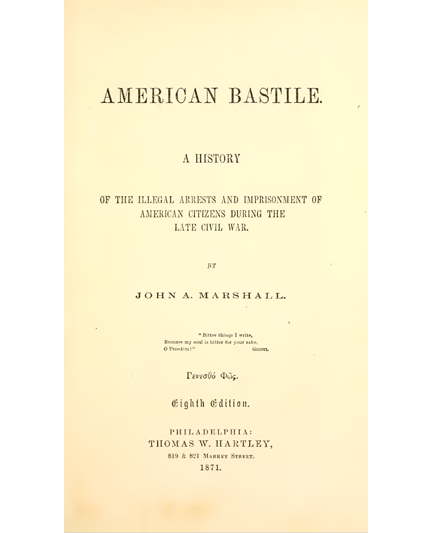 So, I paid a trip to the University of Washington library and obtained a copy of the textbook that was used in 1990 while I was still in graduate school. I was pleasantly surprised to discover that the book was still in use and was thereby encouraged to realize my goal. Equally important was the ease with which I was able to bring myself up to speed. For, within three to four weeks I had already begun formalizing my model and several weeks later was able to get my paper accepted on the SSOAR (Social Science Open Access Repository) website. “Would I not be in a much better position now to obtain work as an instructor teaching economics at a university”, I thought, and immediately began looking for posts that were still available for the fall of 2015. Any and all openings for the spring of 2016 that did not require a Ph.D. as a minimum requirement were also primary targets.
So, I paid a trip to the University of Washington library and obtained a copy of the textbook that was used in 1990 while I was still in graduate school. I was pleasantly surprised to discover that the book was still in use and was thereby encouraged to realize my goal. Equally important was the ease with which I was able to bring myself up to speed. For, within three to four weeks I had already begun formalizing my model and several weeks later was able to get my paper accepted on the SSOAR (Social Science Open Access Repository) website. “Would I not be in a much better position now to obtain work as an instructor teaching economics at a university”, I thought, and immediately began looking for posts that were still available for the fall of 2015. Any and all openings for the spring of 2016 that did not require a Ph.D. as a minimum requirement were also primary targets.
Dismayed by my effort to obtain a slot for presentation at the annual meeting of the American Economics Association in 2016 I turned to higheredjobs.com. Although I was able to find several openings for the spring. Nearly all of them were for only one term. By this time I was pretty desperate, and if they could help me, why should I not help them? So, I gave it my best effort, and many carefully constructed cover letters later a little feedback was finally obtained. So, I followed up with telephone calls and email, but all of it to no avail. The closest I came was notification that my application packet had managed to pass through several personnel offices and was now in the hands of the respective hiring departments. Never once was I invited for an interview.
The very time-consuming preparation of my newly published paper had apparently had no effect. Indeed, my two M.A. degrees in economics that I had received already twenty-five years prior were likely all that was necessary to pass through the filter of certification obsessed personnel departments. If there were a consolation, then it was the number of people who had actually looked at my paper. Indeed, I managed to obtain over 150 views by the end of the year, and several people were actually interested enough to download my work for further reading.
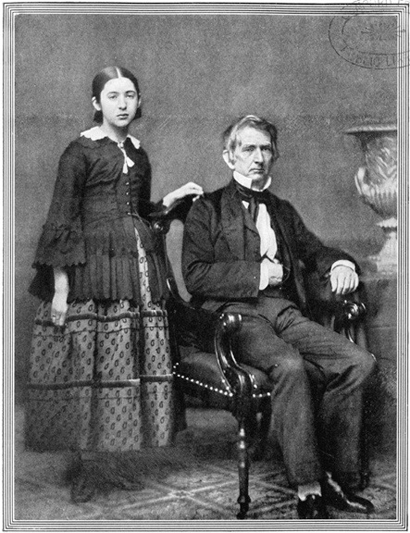 By August I still had not found a job — neither as an English teacher, nor as an economics instructor. So, I broadened my search to include schools other than universities and colleges. and found an opening in Riyadh for which my age would not be a barrier. This I was assured by the US corporate agent screening candidates for the Saudi government agency that was performing the employment search. Unfortunately, I was told that i could not be accepted without formal certification in the English language. In fact, I was told that I was very qualified for the job and that I could surely obtain it, if only I had even the minimal formal certification required.
By August I still had not found a job — neither as an English teacher, nor as an economics instructor. So, I broadened my search to include schools other than universities and colleges. and found an opening in Riyadh for which my age would not be a barrier. This I was assured by the US corporate agent screening candidates for the Saudi government agency that was performing the employment search. Unfortunately, I was told that i could not be accepted without formal certification in the English language. In fact, I was told that I was very qualified for the job and that I could surely obtain it, if only I had even the minimal formal certification required.
Now, obtaining the minimal certification in TEFL, TESOL, or whatever other acronym might suit the fancy of the Saudi screening department, would be much easier than obtaining an M.A. in TESOL. Moreover, the job in Saudi Arabia would pay far better than a similar job in the US. Besides, my primary motivation for teaching in the United States was to become reacquainted with American youth and acquire institutional affiliation that would advance my research in economics. The job in Saudi Arabia would satisfy neither of these goals. It would, however, stop the drain on my savings and allow me to rebuild those that I had already sacrificed in my effort to reestablish myself in the US. The cycle of Sisyphus was upon me once again.
In 2009 I had awarded the same TESOL certification to my students that I now needed for work in Saudi Arabia. Would having awarded the certificate to others not make me eligible to receive it myself? Surely I would have to pay for the processing of the certificate, but this would be far better than having to sit through 140 hours of the same course material that I had once prepared, taught, and graded. In addition, I could avoid the very large expense of course tution and relocation.
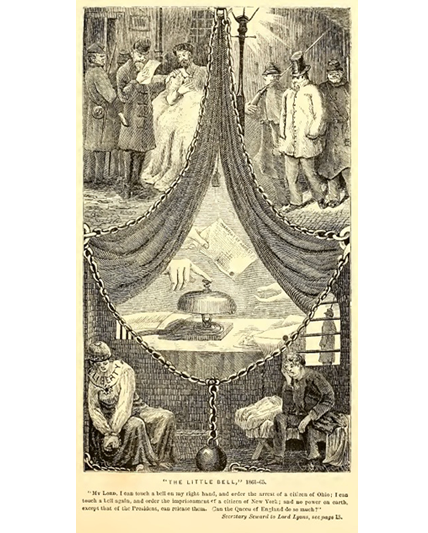 As the certificate that I awarded was issued by a school located in Korea and accredited by an American university in the United States, and as the accrediting school’s name and seal appeared on the certificate, I decided to contact the accrediting school. There were two reasons for this: one, I had entered into a legal confrontation with the Korean school before I left Korea and had won; and two, I assumed that the accrediting school would have a record of the students whose certificates bore the school's seal and name. No hard feelings on the part of the Korean school was a bit more than I could reasonably expect.
As the certificate that I awarded was issued by a school located in Korea and accredited by an American university in the United States, and as the accrediting school’s name and seal appeared on the certificate, I decided to contact the accrediting school. There were two reasons for this: one, I had entered into a legal confrontation with the Korean school before I left Korea and had won; and two, I assumed that the accrediting school would have a record of the students whose certificates bore the school's seal and name. No hard feelings on the part of the Korean school was a bit more than I could reasonably expect.
As I would have no trouble providing the evidence necessary to prove that I was the teacher who had awarded my students the certificate that I now sought, the accrediting school would have only to match my students’ names against theirs and issue me the certificate. Simple enough, right? And surely, issuing a certificate would be easy. I stood ready to pay.
The Korean school at which I had worked in both Seoul and DaeJeon was accredited by California State University in San Bernadino at the time of my instruction. So, I performed a quick search on the internet and called CSU in San Bernadino. The office had no knowledge of the school in Korea. So, I returned to the internet and performed a search for CSU and Times Media (the name of the school in Korea) and found a match. Times Media was now affiliated with CSU in Long Beach. Apparently, CSU had found a new home for its accreditation program.
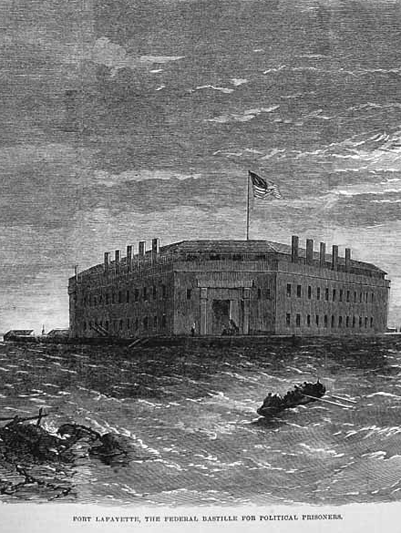 Upon establishing contact with the Long Beach school I explained my need for certification, as well as my having awarded their affiliate school’s certificate in Korea. When I asked CSU to issue me the same certificate, I was told to wait and the matter would be brought to the attention of the program’s director. Whereupon I provided the school with my name and the name of their affiliate in Korea. On the next day I received an email stating that CSU had contacted Times Media and had verified my having been employed there. They also invited me to reestablish contact with the school and provided me with contact information. As six years had passed since I had taken Times Media before the Ministry of Labor, and as I did not recognize the name of the contact person, I was somewhat hopeful. The result, however, was negative. Apparently, the school does offer the certificate to their teachers, but only after they have taught at the school for three years. In effect, awarding the certificate to their teachers was a kind of service reward and incentive to remain in the school’s employment longer than I had. My classroom performance, understanding of TESOL, and worthiness to hold the very same certificate that I had awarded to others was not an issue.
Upon establishing contact with the Long Beach school I explained my need for certification, as well as my having awarded their affiliate school’s certificate in Korea. When I asked CSU to issue me the same certificate, I was told to wait and the matter would be brought to the attention of the program’s director. Whereupon I provided the school with my name and the name of their affiliate in Korea. On the next day I received an email stating that CSU had contacted Times Media and had verified my having been employed there. They also invited me to reestablish contact with the school and provided me with contact information. As six years had passed since I had taken Times Media before the Ministry of Labor, and as I did not recognize the name of the contact person, I was somewhat hopeful. The result, however, was negative. Apparently, the school does offer the certificate to their teachers, but only after they have taught at the school for three years. In effect, awarding the certificate to their teachers was a kind of service reward and incentive to remain in the school’s employment longer than I had. My classroom performance, understanding of TESOL, and worthiness to hold the very same certificate that I had awarded to others was not an issue.
So, I prepared a letter written on my own behalf and requested that the school sign and stamp it with their seal. The contents of the letter confirmed my employment, provided a brief description of the course leading up to the awarding of the certificate, and verified that I had taught the course and awarded the certificate. The school not only refused to sign it, but would also not provide official acknowledgment that I had worked for them. Obviously, the school held a grudge, and I was hardly surprised, for the net result of my effort at the Korean Labor Ministry and later Daejeon Superior Court had been a negotiated settlement between the school and me, two successuful cases of prosecution (one against my previous landlord and one against the owner of the venue where I had taught), and one successful case of defense against the same owner. Further research on the net indicated that Times Media, whose headquarters was in Seoul, had since severed its ties with the school in DaeJeon against whom I had won two of my three court cases. In fact, I could find no trace of the DaeJeon school on the internet; apparently it had folded.
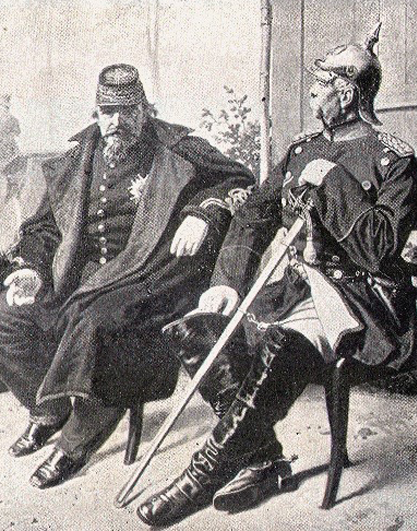 So, I redirected my query back to the associate director of the American Language Institute (ALI), explained that I had contacted Times Media, and that they had refused to issue me a certificate. Neither would CSU.
So, I redirected my query back to the associate director of the American Language Institute (ALI), explained that I had contacted Times Media, and that they had refused to issue me a certificate. Neither would CSU.
In an effort to understand CSU’s position, I reasoned that issuing a certificate in the manner that I requested could appear in their accounting records, as if they had simply sold the certificate, and that my requested action might someday prove awkward for the school. So, I sent to the associate director at CSU-ALI a copy of the letter that I had sent to Times Media along with incontrovertible evidence that I had taught the courses for which I awarded the certificates -- one of which I now so desired. The relevant portion of the email appeared as follows:
“… to what extent would you be able to affirm any or all of the following in a formal communication that I could provide to future employers as evidence of my formal knowledge and experience in the teaching of the communicative language teaching (CLT) methodology to non-native speakers:
(1) my employment with Times Media.
(2) my having awarded the TESOL/TEFL certificate jointly issued by Times Media and California State University.
(3) my having been the instructor responsible for the 140-hour training course leading up to the awarding of the aforesaid certificate.
(4) The desired outcome of the aforesaid course and certificate.”
There was no reply.
So, I made an effort to contact the program director.
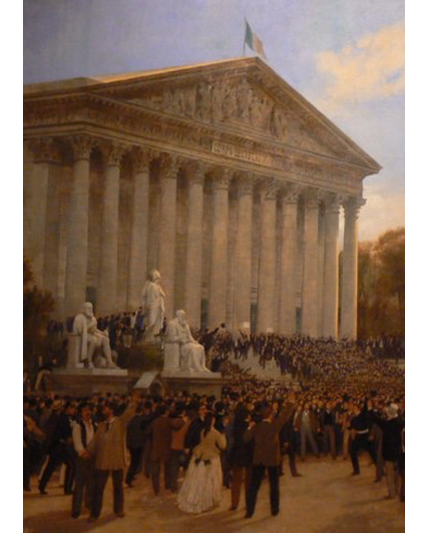 As all attempts to communicate with her were denied, I contacted CSU’s Office of the Provost and was directed to the Vice President of International Affairs. Two email exchanges later it was clear that the school was uncooperative. Did CSU really not keep records of those who receive certificates with their own school’s seal embossed on them? So, I inquired again at the Office of the Provost and was put into contact with the Vice Provost of Academic Affairs, whereupon I explained my experience thus far and provided a stream of evidence to back up all of my claims. I was then told that the Office of the Provost had already contacted the school’s legal department and that the school would be unable to entertain any of my several requests. My additional one question regarding the school’s records of my former students remained, however, unanswered.
As all attempts to communicate with her were denied, I contacted CSU’s Office of the Provost and was directed to the Vice President of International Affairs. Two email exchanges later it was clear that the school was uncooperative. Did CSU really not keep records of those who receive certificates with their own school’s seal embossed on them? So, I inquired again at the Office of the Provost and was put into contact with the Vice Provost of Academic Affairs, whereupon I explained my experience thus far and provided a stream of evidence to back up all of my claims. I was then told that the Office of the Provost had already contacted the school’s legal department and that the school would be unable to entertain any of my several requests. My additional one question regarding the school’s records of my former students remained, however, unanswered.
Indeed, I was no longer asking that CSU award me the certificate that I myself had awarded to others on CSU’s behalf. Nor, was I any longer asking that CSU testify in writing that I had taught at Times Media, CSU’s affiliate school. At this point I was simply asking that the school acknowledge in writing that the certificates that I had awarded were, indeed, certificates corresponding to the content that I had taught and that was accredited by CSU.
Unsatisfied with the Vice Provost’s response I contacted the school’s legal department myself, and after several email exchanges I was told that, indeed, CSU does not keep track of the students to whom its accredited affiliates award certificates with CSU’s seal embossed on them. Either the school was lying or just about anyone could use the school’s seal on a document and noone would know the difference.
Who knows, maybe CSU is now a better accrediting institution, because of my effort. In any case, I had obtained still another arrow in my quiver of research into one of the world’s most corrupt global industries.
As my primary goal was to obtain employment, I packaged the evidence that I had sent to CSU in a PDF packet, added a cover letter in which I explained why I was unable to obtain official verification, and sent it to the Saudi employer. No response. Had I truly expected anything different?
In an effort not to let my more than three-week effort with CSU and Times Media go to waste I combined this packet with other language-related certification in my possession and created my own TOEFL-, TEFL-, TESOL-certification document. This latter would then be used in all future applications to all institutions no matter the institution or country.
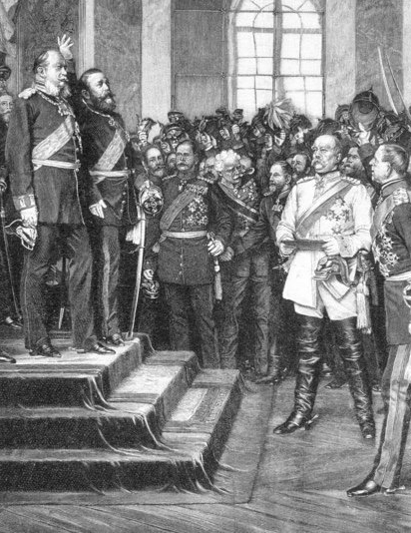 An important reason for my having returned to Seattle was to take advantage of my alumnus status with the University of Washington. For, my membership in the school’s alumni association would enable me to make use of many of the privileges of the university’s library system. As the University of Washington is the number one university in the Pacific Northwest, it is well stocked with all kinds of useful resources and is a fairly pleasant place to work.
An important reason for my having returned to Seattle was to take advantage of my alumnus status with the University of Washington. For, my membership in the school’s alumni association would enable me to make use of many of the privileges of the university’s library system. As the University of Washington is the number one university in the Pacific Northwest, it is well stocked with all kinds of useful resources and is a fairly pleasant place to work.
The paper that I was writing was important for two reasons: not only would it serve as a solid bridge between mainstream economics and the Spanish-Austrian school, but it would also prove that I was still active in the field of economic research. Accordingly, the way in which I would promote my paper was paramount. On the one hand, I wanted credit for being the originator of the idea; on the other hand, I knew that I no longer cared enough about mathematical modeling to truly succeed on my own. This said, I was confident that I could formalize the model that I had presented at the Ludwig von Mises Institute only weeks before with sufficient expertise to get my undertaking off the ground. Simply, I did not know how far I would be able to advance my model without having to extend my mathematical knowledge very much beyond what I had already acquired as a graduate student in economics at the University of Washington (UW) 25 years before.
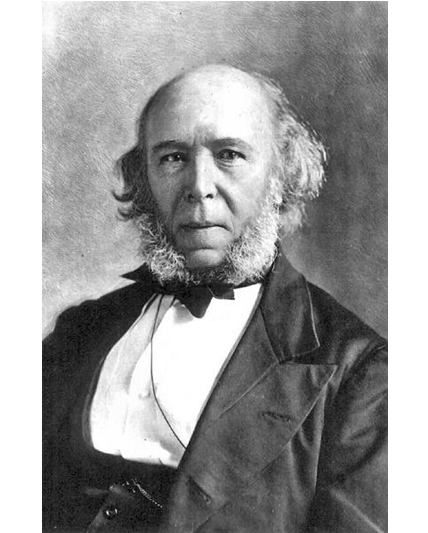 So, I hopped on a bus and within 30 minutes found myself in the Suzzallo library on the university’s main campus. To my pleasant surprise I was able to find most of what I needed, and after several weeks of review and preparation I set to work creating a tightly knit model that would capture in mathematical form the entirety of what I had presented at the Ludwig von Mises Institute in March with less mathematical elaboration.
So, I hopped on a bus and within 30 minutes found myself in the Suzzallo library on the university’s main campus. To my pleasant surprise I was able to find most of what I needed, and after several weeks of review and preparation I set to work creating a tightly knit model that would capture in mathematical form the entirety of what I had presented at the Ludwig von Mises Institute in March with less mathematical elaboration.
As I was writing I stumbled across a mathematical problem that I could not easily solve on my own. So, rather than combining the two parts of my paper into one, as I had sought to do at the Ludwig von Mises Institute, I left them separate. Part One would be written solely by me, lay the foundation for part two, and establish me as the originator of the model’s underlying conceptualization. Part Two would be performed in collaboration with someone who was more interested in mathematical modeling than I, and who could provide the mathematical wherewithal for making dynamic the static model that I assembled in Part One. The collaborator would likely be someone far younger than I, for the simple reason that anyone of my age who is not already Spanish-Austrian in his way of thinking would likely be uninterested. For me personally, however, the age of the person was unimportant. What I needed was someone who recognized the failure of Keynesian macroeconomic theory to describe real-world economic phenomena on a national scale, was mathematically inclined, and was interested in exploring a new approach.
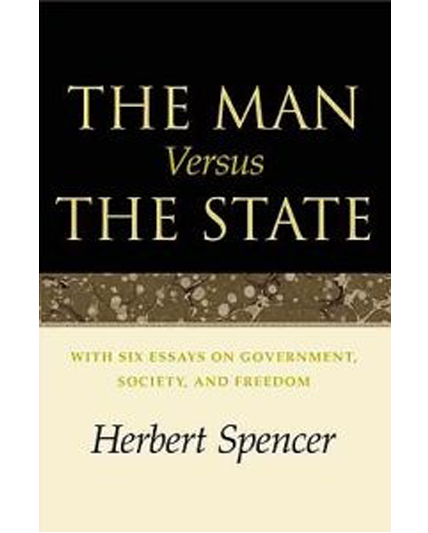 To this end I sought out one of my former professors, Dr. Stephen Turnovsky, who was still active in the department and likely able to recommend a graduate student or other faculty member to work with me. During our first meeting I explained to him that I was working on a paper that modeled general equilibrium in the context of the Spanish-Austrian business cycle and asked him, if he would not review my paper when it was completed. He insisted that he was open-minded and stated that he would look at it, but qualified his commitment by offering no guarantee. Within two weeks I had finished Part One and sent it to the email address that he had provided. No response.
To this end I sought out one of my former professors, Dr. Stephen Turnovsky, who was still active in the department and likely able to recommend a graduate student or other faculty member to work with me. During our first meeting I explained to him that I was working on a paper that modeled general equilibrium in the context of the Spanish-Austrian business cycle and asked him, if he would not review my paper when it was completed. He insisted that he was open-minded and stated that he would look at it, but qualified his commitment by offering no guarantee. Within two weeks I had finished Part One and sent it to the email address that he had provided. No response.
I waited two more weeks and worked on Part 2 while I was waiting. It was during these two weeks that I ran into a mathematical problem that I could not solve, and I wanted to know if a solutions were even possible. So, I paid a second visit to his office, showed him the problem, and he told me that it was not possible. And, of course, I asked him, if he had received Part One of my paper. He answered, yes, but that he was very busy, and did not have time to read it. So, I waited another two weeks and returned to his office. In the belief that he was truly busy, I made a hard copy of Part One of my paper and took it with me. This time he was with another student.
When I appeared, he interrupted his own conversation and told me that I should come back later. So, I offered him the hard copy that I had brought with me, and he refused to take it. He then told me that he was too busy refereeing Ph.D. dissertations and no longer interested. As there was someone else present, I did not push the matter. Since it was not my original goal to work with him on Part Two, his rejection was not an issue. His abrupt rebuke in front of his student was, however, insulting and disparaging, as it was through Dr. Turnovsky that I had hoped to find someone else interested in working on Part 2.
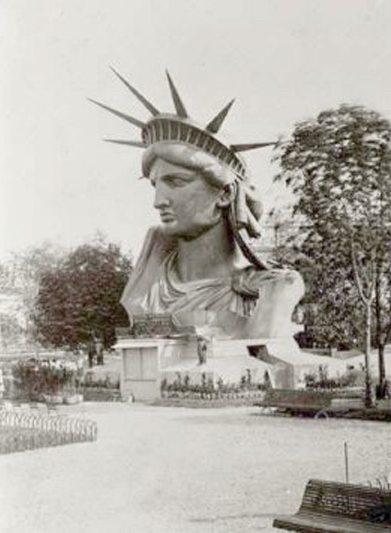 Similar to my encounter with Stephen Turnovsky was my encounter with the American Economics Association (AEA). Confident that I could succeed with Part One of my paper, and still hoping that I could find someone with whom I could collaborate on Part Two, I joined the AEA and submitted a brief resumé and abstract of my paper. Within several weeks I received an email from the AEA thanking me for my submission, but informing me that my paper had not been selected for presentation. The reason given for my rejection was the stiff competition for available time and the superior quality of other papers. I could only wonder how such a determination could be make with the little bit of information that had been requested and sent. Was it the fact that I was somewhat new to the organization, had claimed no institutional affiliation, and held only an M.A. degree, or was it that my topic was about the Spanish-Austrian approach to modeling economic business cycles? In any case it was difficult to understand how they could judge a paper that they had never read. So, I wrote an email, attached a copy of my paper, and expressed my dismay. No response.
Similar to my encounter with Stephen Turnovsky was my encounter with the American Economics Association (AEA). Confident that I could succeed with Part One of my paper, and still hoping that I could find someone with whom I could collaborate on Part Two, I joined the AEA and submitted a brief resumé and abstract of my paper. Within several weeks I received an email from the AEA thanking me for my submission, but informing me that my paper had not been selected for presentation. The reason given for my rejection was the stiff competition for available time and the superior quality of other papers. I could only wonder how such a determination could be make with the little bit of information that had been requested and sent. Was it the fact that I was somewhat new to the organization, had claimed no institutional affiliation, and held only an M.A. degree, or was it that my topic was about the Spanish-Austrian approach to modeling economic business cycles? In any case it was difficult to understand how they could judge a paper that they had never read. So, I wrote an email, attached a copy of my paper, and expressed my dismay. No response.
The absence of further response reminded me of the overwhelming rejection that I had received in the fall of 2008 when I sought employment interviews for the annual AEA meeting in San Francisco in 2009. I targeted 15 schools looking for employment as an economics instructor at the undergraduate level. At the time I had more than 17 years of experience in Japan and Hong Kong where I had taught a variety of undergraduate economics and business management courses including numerous credit hours devoted to economic principles. In each application packet I included letters of recommendations or service letters from each of the schools where I had taught, as well as carefully constructed cover letters based on many hours of careful examination of the faculty make-up of each institution to which I applied. In each letter I matched my own credentials with the apparent needs of the department. Each application took between two and three hours worth of work. I received only two acknowledgments and not a single invitation for an interview.
No, I will not be attending this coming year’s AEA annual meeting, for it is difficult to find someone interested in a paper that you are not allowed to present. Moreover, I will likely allow my renewed annual membership to expire still again.
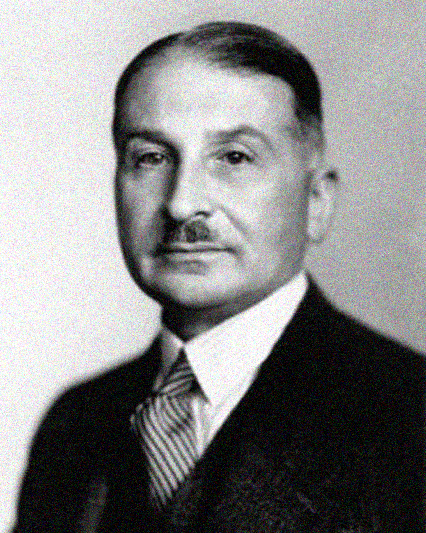 As my savings were rapidly depleting I could no longer depend on employers to secure my income and began exploring ways to found my own online business. This is when I discovered John Lee Dumas and Podcasters’ Paradise — well, not exactly paradise, because I could not afford the annual membership. Fortunately, John offered a lot of free material in order to attract people to his heavenly garden, and from this free material I learned enough to know that, at the very least, I had a good chance to succeed on the internet.
As my savings were rapidly depleting I could no longer depend on employers to secure my income and began exploring ways to found my own online business. This is when I discovered John Lee Dumas and Podcasters’ Paradise — well, not exactly paradise, because I could not afford the annual membership. Fortunately, John offered a lot of free material in order to attract people to his heavenly garden, and from this free material I learned enough to know that, at the very least, I had a good chance to succeed on the internet.
So, I began planning my business and started creating web content. I split my day into two parts: during the first half of the day I focused on the content of my business; and during the second half I focused on the building of a new web application and site. Although building my web content was pretty straight forward and moving along quite well, building the web application and site that I envisioned proved to be a far more daunting task.
My goal was to build an application that incorporated Apache, PHP, MySQL and WordPress without all of the prepackaging typically found on the net. This, I thought, would provide me with the greatest flexibility in the long run, as there were still so many questions left unanswered, and new ideas kept popping into my head. Knowing full well that my task would be filled with unexpected complications, I took notes at each major step of the way and even some smaller steps in between. When I was near completion my system suddenly became dysfunctional, and many hours of research on the internet did not provide a solution. What is worse, I was too far along to go back and start over. There were simply too many potential sources of error, and I was stymied. Even I had lost my ability to connect to the internet. Although I was finally able to reestablish an internet connection, I was sufficiently frightened and decided to start afresh on a different computer whose operating system was far more current and likely better able to handle the versions of PHP, MySQL, and WordPress that I was installing. Besides, I now knew a lot more than I knew before, and setting up the new web application would be much easier.
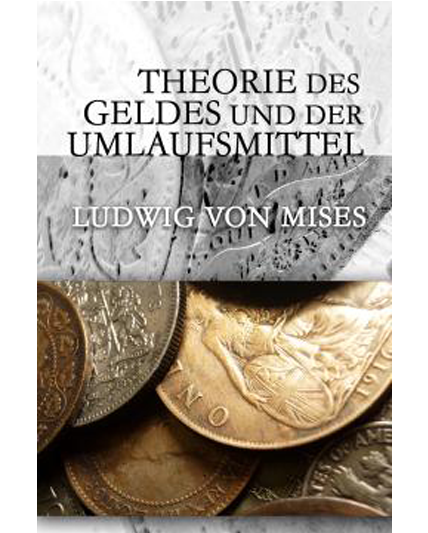 I was no dummy and managed to succeed all the way up to the installation of WordPress — the final stage of installation. Although I was able to make it function, it was loading very slowly and would require additional adjustment. It was at this time that Apple introduced its new OS, and after I upgraded, my just installed web application failed to function. I was disheartened, but not surprised. Simply more time would be required.
So, I checked my savings and realized that they would not stretch far enough.
I was no dummy and managed to succeed all the way up to the installation of WordPress — the final stage of installation. Although I was able to make it function, it was loading very slowly and would require additional adjustment. It was at this time that Apple introduced its new OS, and after I upgraded, my just installed web application failed to function. I was disheartened, but not surprised. Simply more time would be required.
So, I checked my savings and realized that they would not stretch far enough.
My failure to find employment for the beginning of the academic year 2015-16 had taught me that I would need to change my strategy still again. So, I fell upon the idea of converting my new web content into a means of advertising. Thus, was born my first audio-video presentation in the teaching of the English language. When it was completed I uploaded it to YouTube with an undisclosed link and included the link in each of my new cover letters. In addition, I broadened my overseas search to include small private schools that catered to professional business people. As of today, the final day of the year, seventeen of my twenty-four applications to small private schools remain outstanding. From all twenty-four I have received only one response, and it was from Cambly (see below).
Had I only fallen upon the idea of building an online business in the manner suggested by John Lee Dumas and others while I still had a savings cushion, my current situation would likely be much better. This, however, is an unproven regret, as my business plan has yet to be tested, and my business could just as well fail as succeed. This said, should it succeed, I am certain that it will be very successful, for my targeted customer base is, indeed, very large. For, this reason I remain both optimistic and patient, and will continue to develop it.
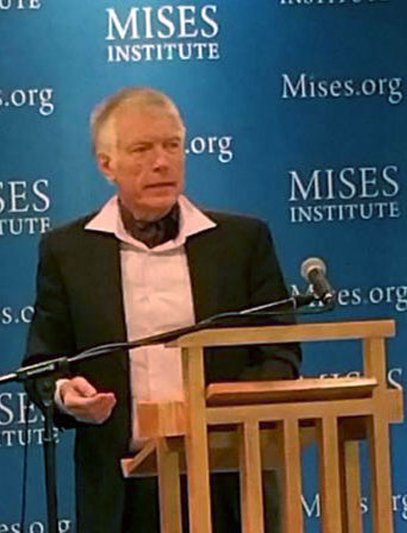 Cambly is an online exchange forum for one-on-one English language conversation that I discovered while looking for small private companies that might be interested in hiring me. Cambly was looking for tutors, and I was desperate. I say this because I often find tutoring boring and prefer direct contact with a classroom of students. Having just prepared a much longer online video for advertising my teaching skills preparing the short video for Cambly was really easy. On the following day my application was accepted. Several days later I was up and running.
Cambly is an online exchange forum for one-on-one English language conversation that I discovered while looking for small private companies that might be interested in hiring me. Cambly was looking for tutors, and I was desperate. I say this because I often find tutoring boring and prefer direct contact with a classroom of students. Having just prepared a much longer online video for advertising my teaching skills preparing the short video for Cambly was really easy. On the following day my application was accepted. Several days later I was up and running.
Those who participate in the forum are divided into two groups: students and tutors. Ostensibly, Cambly can be used to teach other languages in addition to English. One-on-one pairings between student and tutor are both planned and random. On the one hand, students can select their favorite tutor, when the tutor is online, or they can book a reservation and speak with a tutor at some future time. On the other hand, students can go on line whenever they want and take whichever tutor chooses them from the list of students available to the tutor after he logs in. In order to insure that there are enough tutors available to meet student supply Cambly has set up a shift-system with a guaranteed minimum payment to insure that the tutor is present during his shift. This creates a kind of competition among available tutors when new students appear. At USD 0.17 per minute the maximum that a tutor can earn during a one-hour shift is USD 10.20. As the time that any one student spends online during a tutor’s shift is highly variable, the average amount earned per hour by a tutor is much less. In effect, tutors compete for students by providing them with quality time, and in so doing create a loyal student base that selects the one tutor over the others.
Well, the pay is low, but in a world that discriminates against age and prefers paper certification over real experience, it has become an important, but meagre source of income for me. It is not fun living on subsistence, but it is far better than living off the income of others. Fortunately, I can spend my waiting time developing my own company in the privacy of my own apartment.
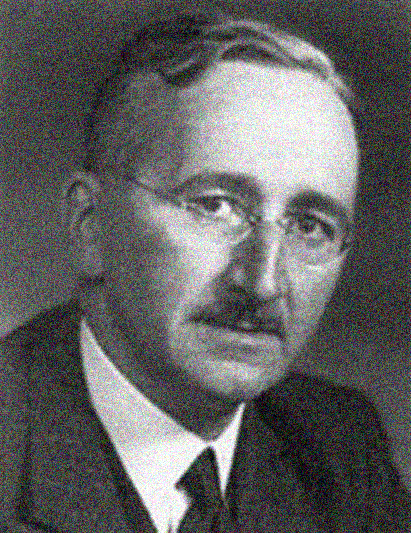 Zapable is another online company. I discovered it through an advertisement made by Tom Woods, a Zapable affiliate and online Liberty guru, who hosts a daily podcast on the cause of liberty. Zapable has created an online framework for building smartphone applications that can be used by small businesses and others for the purpose of advertising. The framework provides a large number of built-in functions with numerous formatting options, as well as, a step-by-step procedure for creating applications. Once created, an application can be uploaded to the iTunes and Google+ websites and then downloaded by the customers of the client for whom the application has been created. Once sold, the creator of the application can charge a monthly maintenance fee to keep his client’s application up-to-date with the client’s latest special offers or new events that can be used by the client to promote his company’s business.
Zapable is another online company. I discovered it through an advertisement made by Tom Woods, a Zapable affiliate and online Liberty guru, who hosts a daily podcast on the cause of liberty. Zapable has created an online framework for building smartphone applications that can be used by small businesses and others for the purpose of advertising. The framework provides a large number of built-in functions with numerous formatting options, as well as, a step-by-step procedure for creating applications. Once created, an application can be uploaded to the iTunes and Google+ websites and then downloaded by the customers of the client for whom the application has been created. Once sold, the creator of the application can charge a monthly maintenance fee to keep his client’s application up-to-date with the client’s latest special offers or new events that can be used by the client to promote his company’s business.
The cost of Zapable application is modest and there is no limit to the number of applications that a user creates. As a result, the user is limited only by his ability to find and attract new clients. Some of the functions include geo-fencing, push-alerts, affiliate purchases, and reservations. Thus, each new smartphone application can be customized to meet the special needs of each client.
In Seattle where rental prices continue to rise the ability of small shops to attract new customers is imperative. And, when the economy crashes, an event surely not too far down the road, small business will want to do everything they can to attract new customers that does not cost them an arm and a leg.
What is more, once a client-base is established it can be sold to someone else who is both interested and able to maintain the applications created by the Zapable user. Unlike my own business plan, this business plan has been tested by others and has been shown to work. So, I purchased a one year subscription to the Zapable framework and will likely use it to complement my activity on Cambly. Although Zapable appears to promise a brighter future, my work on Cambly is more closely related to my own business plans and the reward, however meagre, is immediate. Thus, the many days, weeks, and months ahead will likely be very busy, as I chat on Cambly, build and sell Zapable applications, and develop my own online company.
My Quest for Liberty
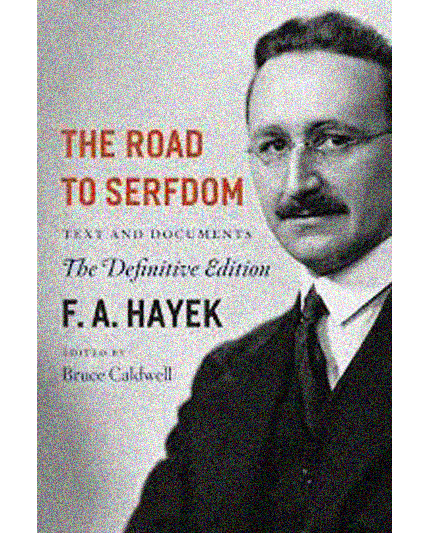 My greatest disappointment this year was not to achieve in Seattle what I failed to achieve in Auburn — namely, initiate a local or even state-wide speaking tour dedicated to liberty.
My greatest disappointment this year was not to achieve in Seattle what I failed to achieve in Auburn — namely, initiate a local or even state-wide speaking tour dedicated to liberty.
When I left Saudi Arabia my goal was to run for political office in the United States, join a campaign to get someone else elected, or lecture on liberty so as to make it easier for other liberty-minded candidates and myself to get elected. When I was turned away by the Ludwig von Mises Institute in Auburn I flew to Las Vegas in the hope that my good friend Doug Ansell could put me in contact with someone in the liberty movement in the State of Nevada. As this also failed, I decided to go it alone in Seattle and began looking for inroads into the Seattle and State of Washington liberty movement.
My first Google search included the keywords “liberty” and “seattle". It opened to a webpage full of links to bars and restaurants. Looking back, this was a premonition of what was to come. Further exploration led me to a webpage advertising an organization called the Republican Liberty Caucus of Washington (RLCWA). At the time, I did not realize that it was a branch of a larger national organization, but did not much care. A careful search of the website revealed that there was no chapter for King County, the county in which I was living. Listed on the website were the names of each officer with a short autobiography and an email address for each. No telephone number was provided. So, I sent an email to the president and waited several days for an answer. Nothing. I tried the same for the Vice President. Still no reply. So, I sent messages to both the Treasurer and the Secretary. The result was the same. Even a message sent to the webmaster resulted in no reply. So much for the RLCWA.
While I was searching for other liberty-mined organizations I discovered an article written by a syndicated journalist who writes for the Washington Post and Seattle Times. The article was several years old, but still appeared on page one of my Google search. The article was written by someone who obviously had good command of the English language, but who had little knowledge of liberty, the topic of his article. So, I wrote a response and posted it on my website.
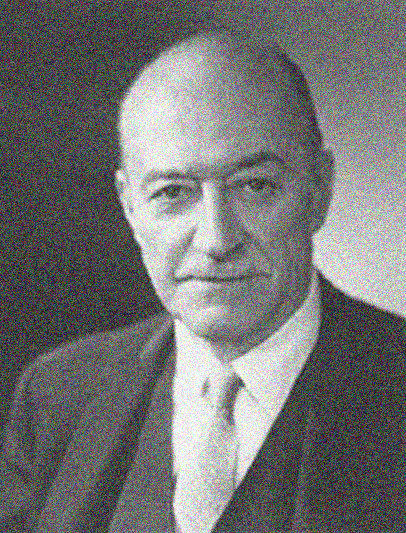 One day I received an email from an unknown person inviting me to a breakfast with Rand Paul. The invitation was hardly a coincidence, because I had donated to both the Ron Paul and Rand Paul campaigns while I was still earning money in Saudi Arabia. After I arrived in the United States I continued paying into the Rand Paul campaign and had established a new permanent address in Seattle. As the breakfast was USD 1,000 a plate I decided to forego the opportunity. Not because I did not wish to support Senator Paul’s campaign, rather because it was simply to large a sacrifice in light of the difficulty that I was having in finding new employment. I responded to the email with a copy of the article that I had just written and asked, if the Rand Paul campaign might be interested in hiring me. Though my question went unanswered, I was later informed about a meeting at the Seattle Town Hall and invited to attend. Access to the meeting would be free and the featured speaker would be Rand Paul. What a great opportunity, I thought, for everyone in attendance to ask questions and discover Senator Paul’s views on issues not discussed in the national media and elsewhere.
One day I received an email from an unknown person inviting me to a breakfast with Rand Paul. The invitation was hardly a coincidence, because I had donated to both the Ron Paul and Rand Paul campaigns while I was still earning money in Saudi Arabia. After I arrived in the United States I continued paying into the Rand Paul campaign and had established a new permanent address in Seattle. As the breakfast was USD 1,000 a plate I decided to forego the opportunity. Not because I did not wish to support Senator Paul’s campaign, rather because it was simply to large a sacrifice in light of the difficulty that I was having in finding new employment. I responded to the email with a copy of the article that I had just written and asked, if the Rand Paul campaign might be interested in hiring me. Though my question went unanswered, I was later informed about a meeting at the Seattle Town Hall and invited to attend. Access to the meeting would be free and the featured speaker would be Rand Paul. What a great opportunity, I thought, for everyone in attendance to ask questions and discover Senator Paul’s views on issues not discussed in the national media and elsewhere.
Several days before Senator Paul’s appearance I met a man on the street. He was passing out fliers advertising Senator Paul’s upcoming visit to Seattle. He appeared disoriented, and I asked him where he was from. As it was clear that he was from another part of town, I understood that there was no one working on the Senator’s campaign in my district. I thought what a great opportunity, and we parted ways.
On the day of the Senator’s appearance I went to the Town Hall early so as to obtain a good seat. In front of the building I discovered a FOX News SUV and pretty much knew that I was at the right place. As I had an e-ticket, gaining entry to the hall was easy. Inside, the amphitheater was very full, but there remained many a good seat. What i was not expecting was a political rally and was taken aback when an emotive video-clip starring the Senator’s wife was played. When the Senator arrived on stage I stood up, went into the aisle, and took several pictures that I would later post on Twitter. As everyone was clapping, no one seemed to mind, and the Senator even waived to me. When the clapping was over I reseated myself and listened to the Senator speak for just under an hour. As he said very little that I had not already heard several times before I spent much of the time formulating several questions that I was hoping to ask after he had finished. Unfortunately, the time for answering questions never came, for as soon as he had completed his lecture, he left the stage never to reappear. This was very disappointing.
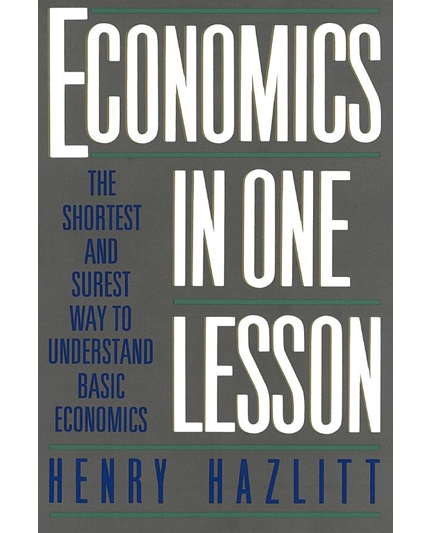 As I was leaving the amphitheater I saw a line of about a hundred people waiting to have their picture taken with the good Senator. Indeed, the whole event was about publicity, and the real message to be derived from it was: Senator Paul appeared in Seattle, and I attended. Since I had not attended for that purpose I headed for home. As I was leaving I remembered that the same person who introduced Rand Paul before his appearance reappeared on stage after the Senator had disappeared. That was my contact, I thought, and I returned to the amphitheater, obtained his name and email address, took a photo, and asked for permission to contact him.
As I was leaving the amphitheater I saw a line of about a hundred people waiting to have their picture taken with the good Senator. Indeed, the whole event was about publicity, and the real message to be derived from it was: Senator Paul appeared in Seattle, and I attended. Since I had not attended for that purpose I headed for home. As I was leaving I remembered that the same person who introduced Rand Paul before his appearance reappeared on stage after the Senator had disappeared. That was my contact, I thought, and I returned to the amphitheater, obtained his name and email address, took a photo, and asked for permission to contact him.
On the following day I composed a brief letter of introduction and attached a revised copy of the same proposal that I had presented in Auburn. Before sending the email I also checked the RLCWA webpage to see, if he was not the same person to whom I had sent an email several weeks prior. Sure enough, he was the vice president of the RLCWA. So, this time I attached my photo for easy recognition and created a subject heading in my email that could not be easily overlooked. Several days later I received a response telling me that he was too busy to deal with the matter and that I should contact someone else. Fortunately, he provided me with a name and contact information.
After several emails and no response, I decided to call my new contact. Whereupon I explained my desire and proposed project to spread the message of liberty throughout the Seattle area. To my surprise it was the same person that I had met on my way to the gym about a week before. “What a great coincidence”, I thought, “alas, once again I have been blessed with fortuity”. His immediate response was discouragement, as it appeared that he was more concerned with promoting Rand Paul than the principles for which Rand Paul stood. After several minutes of discussion, however, I was able to convince him to have a look at my proposal. As he appeared in doubt, I also sent him a copy of my resumé and waited several days. Nothing. So, I called again and left a message on his answering machine. No response. I called again. Still, no response. On the third call he responded, and I asked, if he had read my proposal. He claimed that he had, but stated that he would not be able to help. Nearly two weeks had passed since I had listened to Rand Paul speak, and still I had nothing to show for it.
So, I sent another email to the vice president of the RLCWA and explained that his contact was unwilling to help and requested additional contacts. He replied that he would send me several more in a couple of days. A full week past and still nothing. So, I performed a Google search, discovered the location of his downtown office, and paid him a visit. Whereupon he apologized for the delay, and asked that I send another email message. Several days later I received a copy of my own email appended to an email that he had sent to three other people. Unfortunately, one of the people was someone that I had already met and found to be unhelpful. Another was sent to the now former president of the RLCWA to whom I had already sent three email messages and from whom i had never received a reply. The third was sent to someone whose name I did not recognize. This time the former president responded with an email to the originator and a copy to me. The body of the email contained a question mark (?) and a signature. Nothing was received from either of the other two people.
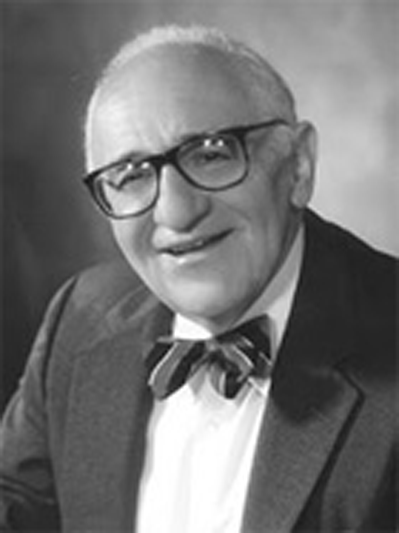 During the aforementioned five weeks worth of semi-communicative exchange with the RLCWA my barber told me that he knew someone who was active in the liberty movement and that he would ask him to contact me. A week or so later I received a phone call from my barber's brother-in-law inviting me to the Seattle chapter of Campaign for Liberty, a local remnant from Ron Paul’s 2012 presidential bid and an organization to whose national headquarters I had contributed a substantial amount of money both during and after the campaign. Though offered a ride, it was out of the person’s way. So, I took the bus.
During the aforementioned five weeks worth of semi-communicative exchange with the RLCWA my barber told me that he knew someone who was active in the liberty movement and that he would ask him to contact me. A week or so later I received a phone call from my barber's brother-in-law inviting me to the Seattle chapter of Campaign for Liberty, a local remnant from Ron Paul’s 2012 presidential bid and an organization to whose national headquarters I had contributed a substantial amount of money both during and after the campaign. Though offered a ride, it was out of the person’s way. So, I took the bus.
When I arrived at the restaurant where we were scheduled to meet I informed the owner about my purpose and was directed down a set of stairs. Neither the stairs, nor the room that i entered at the bottom of the stairs inspired liberty. Neither, was there anyone in the room when I arrived. As I had been told to arrive early, I called Edwin Yasukawa, my barber’s brother-in-law, and asked him, if there were not some sort of misunderstanding. He told me that he would call the chapter’s head and let him know that I was waiting.
There was a large table in the middle of the room and several smaller tables along three of the walls. I seated myself at one of the smaller tables facing the entrance to the room and waited for about ten minutes. Whereupon, a seemingly unaccommodating man of slight stature entered with a computer. No greeting was given. Like me he selected a smaller table, but along a different wall where he unloaded his computer. I introduced myself and asked his name. Sure enough, he was the person whom Edwin had mentioned. Had he received a call from Edwin? No. As he appeared preoccupied with his set up, I did not disturb him further, returned to my smartphone, and waited. As people trickled in, they greeted one another and seated themselves around the large table in the middle of the room. So, I changed my seat and joined the others. As I was the only stranger in the room Edwin recognized me when he arrived. We shook hands, introduced ourselves, and he sat down with an empty chair between us. Whereupon I went to the man seated along the wall, explained that I would like to make a brief presentation, and asked him, if I could not introduce my project. He agreed, and I provided him with a PDF file that could be displayed on a TV monitor hanging on a wall at the end of the large table in the middle of the room.
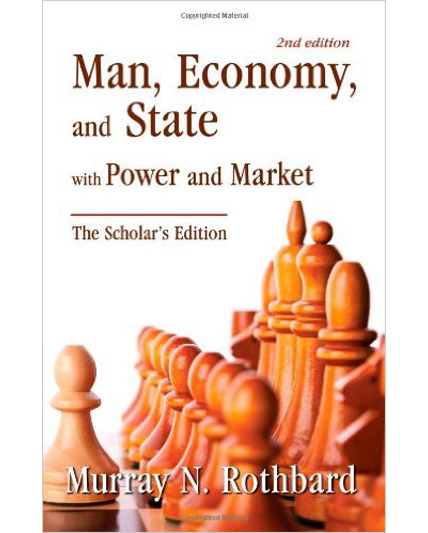 The meeting began with a brief introduction from the organizer. In his introduction he outlined, with what appeared to be a PowerPoint presentation, a three-step process to achieve liberty. The first step was education and the last step was action. Apparently he perceived the role of Campaign for Liberty to be that of action, and I was in attendance at the meeting to find support for education.
The meeting began with a brief introduction from the organizer. In his introduction he outlined, with what appeared to be a PowerPoint presentation, a three-step process to achieve liberty. The first step was education and the last step was action. Apparently he perceived the role of Campaign for Liberty to be that of action, and I was in attendance at the meeting to find support for education.
After the introduction each person in attendance was asked to introduce him- or herself. The length of each introduction varied from person to person, but most were vary brief — well, at least, until it was the turn of the person who had filled the seat between Edwin and me. She was an endless flow of interesting information and spoke uninterrupted for a very long time. I waited patiently until it was my turn.
I began my introduction with a brief statement about my newness to Seattle, but was interrupted by the meeting’s organizer. I quickly understood that he had no real interest in who I was. So, I asked him to open the PDF file that I had provided him, and he did. As the monitor was not well-suited for displaying PDF files, and as I did not have control of either the monitor or the computer, I quickly abandoned the idea and spoke extemporaneously. Once again, I was interrupted by the organizer. So, I suggested that I make my presentation at the following meeting, and he agreed.
We were then subjected to a poorly presented, hour-and-a-half account of an interpersonal dispute among a group of people, some of whom were apparently tied to the liberty movement and known by some of the people who were present. At the end of the account I was asked to donate to the legal counsel who was defending one of the parties who was imprisoned with a charge of manslaughter. When I left at 9:30 PM, the scheduled time for closing the meeting, everyone, but one, was still present.
Three weeks past and still I had heard nothing from the meeting’s organizer. My new friend Edwin assured me that I had only to call him in order to arrange a date for my presentation. When I called I was greeted with a recorded message and invited to leave one of my own. This I did, but my call was never returned. When Edwin offered to give a ride to the second meeting I declined.
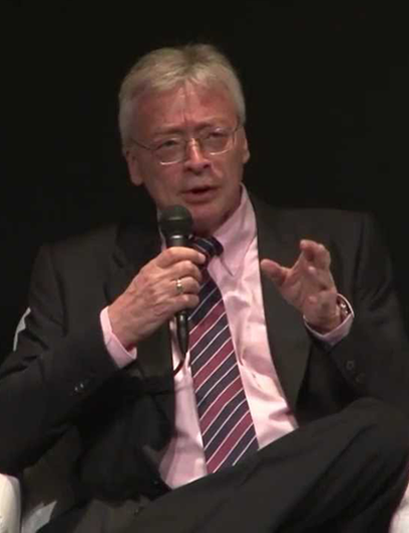 Soon thereafter my new friend, Edwin, invited me to another meeting hosted by a women’s club on Mercer Island. Edwin drove. When he picked me up there were two others in the car. It was a motley group. Seated next to me was a man from the Bronx who claimed to know everything, but how to speak like a native Washingtonian after having lived in the state for some 40 years. Riding shotgun was a Vietnamese-American who was generally quiet and whose grammar, when he did speak, indicated that he had not entirely adapted to his new homeland. Although raised in Hawaii, Edwin reminded me of a Native American, born on a reservation, but raised in public schools. He was knowledgeable about liberty and what America was suppose to be about, but like his friends, lacked the kind of intellectual foundation to which I am accustomed when speaking with others about the movement. I felt like we were on our way to a high school basketball game, where we would sit in the bleachers and shout “Stand up, sit down, fight, fight, fight” until our voices became hoarse.
Soon thereafter my new friend, Edwin, invited me to another meeting hosted by a women’s club on Mercer Island. Edwin drove. When he picked me up there were two others in the car. It was a motley group. Seated next to me was a man from the Bronx who claimed to know everything, but how to speak like a native Washingtonian after having lived in the state for some 40 years. Riding shotgun was a Vietnamese-American who was generally quiet and whose grammar, when he did speak, indicated that he had not entirely adapted to his new homeland. Although raised in Hawaii, Edwin reminded me of a Native American, born on a reservation, but raised in public schools. He was knowledgeable about liberty and what America was suppose to be about, but like his friends, lacked the kind of intellectual foundation to which I am accustomed when speaking with others about the movement. I felt like we were on our way to a high school basketball game, where we would sit in the bleachers and shout “Stand up, sit down, fight, fight, fight” until our voices became hoarse.
We arrived in a building with underground parking and an elevator that took us up to the first floor. We wandered down a corridor until we came to what appeared to be a small auditorium with a viewing screen and implanted rows of chairs. Edwin proceeded to the front row where he found an unoccupied seat in the middle. I followed and placed my jacket in the chair next to his. The other two members of our cheering squad found seats further back. As Edwin was soon engaged in conversation, I sought out the toilet that we had past along the corridor and relieved myself. More people had entered the room in the brief time that I was away, and soon everyone was asked to sit down by a woman much younger than most of those present. Those of us who were new to the group were asked to introduce ourselves. The introductions were much shorter than those at the Campaign for Liberty meeting several weeks before. Having learned from my experience at the C4L meeting I introduced myself as a University of Washington alumnus and a friend of my new acquaintance, Edwin. That was pretty much it.
When we were finished the same woman introduced what the evening’s event was about. We would be watching two of a series of eight films dedicated to the understanding of economic development. It soon became evident that I had unknowingly landed amongst a group of Christian evangelists wanting to know better how they could eliminate world poverty. So, I watched the film with the best objectivity that I could muster.
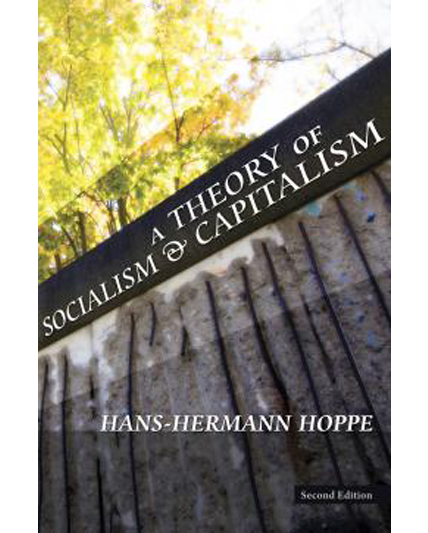 Ever since I was drafted to fight in Vietnam, thumbed a ride to Washington, D.C., and shouted out the number of a fallen soldier in front of the White House, I have spoken out against empire. At some point I decided to stop playing nurse and become a doctor. Surely, it was better to stop the destruction and dismantle the empire — the root cause of the destruction --, than to pick up the pieces from the destruction. So, I was pleasantly surprised to learn that there were Christians interested in real development, as opposed to overseas transfer payments, government hand-outs, and still more corruption.
Ever since I was drafted to fight in Vietnam, thumbed a ride to Washington, D.C., and shouted out the number of a fallen soldier in front of the White House, I have spoken out against empire. At some point I decided to stop playing nurse and become a doctor. Surely, it was better to stop the destruction and dismantle the empire — the root cause of the destruction --, than to pick up the pieces from the destruction. So, I was pleasantly surprised to learn that there were Christians interested in real development, as opposed to overseas transfer payments, government hand-outs, and still more corruption.
After the first two films of the eight-part series were shown there was time for discussion. During this time I praised the film’s emphasis on the absence of property rights in the unindustrialized world and remarked on my own transformation from a political nurse to a doctor. My comments appeared to have attracted attention, for after the meeting I was approached by one of the members of the group, and we discussed her own experience in Ireland — not exactly a third world country mind you, but certainly one that had undergone an important transformation in recent years.
After our discussion I introduced myself to the woman who led the meeting. Edwin had told me that she was well connected and might be able to help in getting my project off the ground. So, I explained briefly that I was interested in spreading the word of liberty and asked, if I could not send her a copy of my project proposal and resumé. She said, yes.
On the following day I wrote a cover letter, created a PDF packet, and sent it to her. Many days past, and there was no response. So, I sent a follow-up message and she responded that she had been out of town. I understood her message to mean that she had not yet read what I had sent her and that I should wait. So, I acknowledged receipt of her email and waited several more days. As no further response was forthcoming I sent another email. Although she responded again, she gave no indication that she had read my proposal, let alone my resumé, and simply asked how much money I would need to get my project off the ground. In an effort to make a promise that I believed I could keep I stated six months and asked for USD 2,000 a month to cover my living expenses as I set to work. Whereupon she replied that she could not help. When asked, if she could provide the contact information of others who might be interested in my project, she did not reply.
When it came time for the showing of parts three and four of the eight-part series, she was absent. And, as the next two films were targeted specifically at Christian solutions to the problem outlined in the previous four films, I did not attend these latter two. So, I do not know, if she reappeared. Nor, do I really care.
This experience did teach me, however, that my new friend, Edwin, was an aging, unmarried Christian who had skillfully merged the promotion of liberty with his own need to socialize.
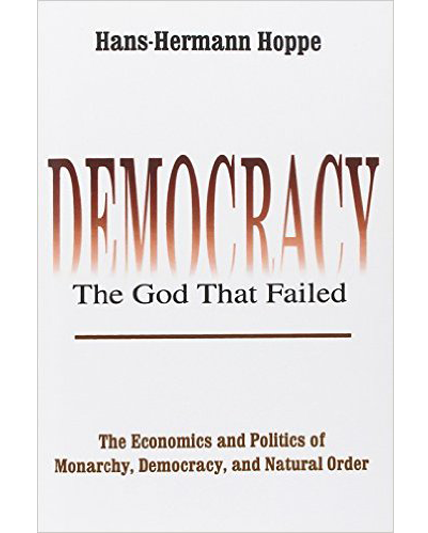 One day on my way back from the University of Washington I hopped on the wrong bus at the suggestion of the bus driver and found myself stranded at a bus stop in the middle of urban nowhere. As I had my smartphone with me and the option of choosing between two different bus routes, I investigated online where each would take me. As one of them was scheduled to stop in front of Seattle Central College, I let the first bus pass and boarded the second.
One day on my way back from the University of Washington I hopped on the wrong bus at the suggestion of the bus driver and found myself stranded at a bus stop in the middle of urban nowhere. As I had my smartphone with me and the option of choosing between two different bus routes, I investigated online where each would take me. As one of them was scheduled to stop in front of Seattle Central College, I let the first bus pass and boarded the second.
It had been suggested that I apply to the college when I first arrived in Seattle, but I was reluctant to spend any more time applying for what would amount to a government post. On the one hand, my attitude toward working for government had changed considerably in the last several years; and on the other hand, it no longer made sense to apply online, because I knew that I would be automatically filtered out by my paper age and the absence of formal English language certification. Moreover, federally-funded local colleges in the State of Washington simply refuse to consider anyone that does not apply through neocon.gov — well, sorry, neogov.com.
My failure at Seattle University did lead to the idea that I might be able to bypass the online application procedure of federally funded, state colleges by applying for work in programs of continuous education -- just not at Seattle U. Having taught economics at Seattle Central College when I was still a graduate student at the University of Washington would surely be to my advantage, I thought. So, in late August I had submitted the online paperwork necessary to apply for teaching an evening introductory course on political liberty. Designing the course took a considerable amount of time and effort, but it was something that I enjoyed doing, because I am passionate about restoring liberty in the US.
More than a month had past since I applied and still there was no response.
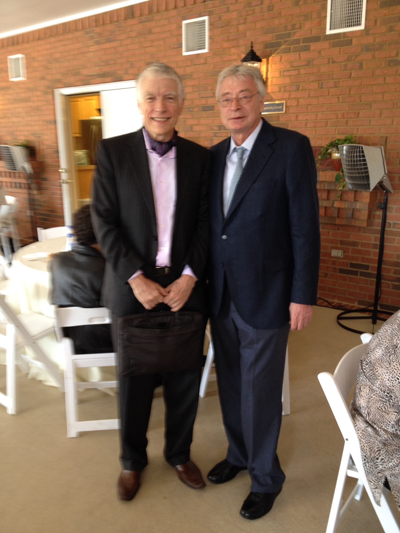 So, there I was at the college’s front doorstep. My first place of inquiry would be at the college’s English Language Institute where I would confirm that twenty years of experience teaching English in eight countries on three continents at several world-renown universities was no match at a government-funded State of Washington public school against someone holding an M.A. in TESOL from an inferior US university with zero teaching experience. My second and last place of inquiry would be at the college’s Department of Continuous Education where I asked about my application to lecture on the subject of liberty in the college’s life-long learning program. I was told that the responsible person was not present and then provided with the individual’s telephone number.
So, there I was at the college’s front doorstep. My first place of inquiry would be at the college’s English Language Institute where I would confirm that twenty years of experience teaching English in eight countries on three continents at several world-renown universities was no match at a government-funded State of Washington public school against someone holding an M.A. in TESOL from an inferior US university with zero teaching experience. My second and last place of inquiry would be at the college’s Department of Continuous Education where I asked about my application to lecture on the subject of liberty in the college’s life-long learning program. I was told that the responsible person was not present and then provided with the individual’s telephone number.
When I called I was greeted with an automated message. So, I left a non-automated message in return and requested that the person return my call. I waited several days, but received no answer. So, I called again and was told that my application had been declined. No apology was offered for having failed to respond to my voice mail or to notify me of the college’s decision that had already been made several weeks before. When I asked why my proposal had been declined I was told that my topic did not fit into the college’s program, would attract little interest, and was therefore unmarketable. The voice seemed familiar and was probably the same that had told me many weeks earlier that all submissions would be taken into consideration. So, I inquired about what kinds of subject matter would be appropriate. A large number of course topics were then mentioned. From these I understood that the college’s students were interested in learning special skills and had little interest in their intellectual development. Indeed, I would have had a better chance of finding work at the college had I submitted a proposal to teach an introductory course in Japanese!
Alas, many more minutes had been wasted.
My Health
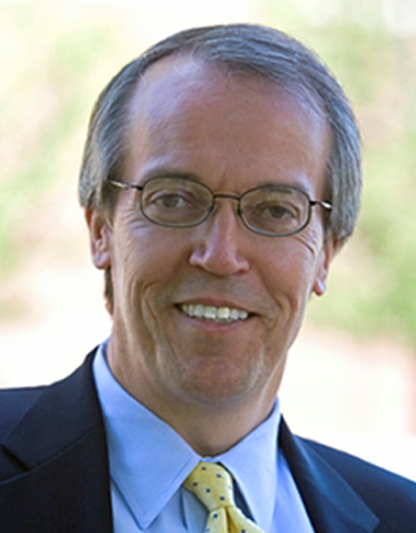 Not having drunk any alcohol or eaten any pork for three years I had developed a strong desire for both and was eager to satisfy my desire. Upon boarding my plane in Jeddah, I ordered a whiskey. Pork was not on the menu. Was I still on the Saudi customs black list?
Not having drunk any alcohol or eaten any pork for three years I had developed a strong desire for both and was eager to satisfy my desire. Upon boarding my plane in Jeddah, I ordered a whiskey. Pork was not on the menu. Was I still on the Saudi customs black list?
As I spent the first nine weeks of my return in several different hotel rooms, and as alcohol was readily available in each for the first three to four weeks, I drank a new alcoholic beverage nearly day for an entire month. It quickly became clear that I could not maintain this lifestyle indefinitely, and after a week at the Sorento Hotel in Seattle I downgraded the number of stars of my hotel room, moved to the Panama Hotel in the International District, and purchased my alcohol at the Uwajimaya, a Japanese grocery store, in the district.
By the time I had found my new apartment on First Hill I had begun to notice the effect of daily alcohol consumption on my physical well-being. Although I continued to go to the gym and was eating a steady diet of organic food, I was now suffering from unexpected bouts of diarrhea and dryness of my facial skin. Lurking in the back of my mind were even thoughts of possible alcohol addiction and diabetes. I would have to put an end to my newly discovered indulgence sometime soon; simply, I did not know when and to what extent.
One day I noticed that my skin was breaking out. At first, the symptoms appeared similar to those that I had experienced only months prior in Saudi Arabia, and I did not relate my alcoholic intake to the symptoms. I simply applied the medication that I had been prescribed by my good friend Dr. Abdullah Al Ghamdi at the King Abdulaziz University Health Clinic and waited for the condition to disappear. Not only did it persist, but it continued to spread. I became alarmed and paid an uninsured visit to the UW Health Clinic where it was suggested that I had either scabies or herpes zoster. I returned home without a prescription, as I wanted time to think and consult with my friend in Saudi Arabia.
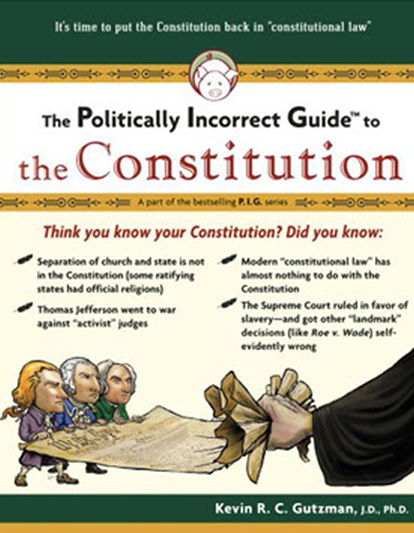 I took several pictures and sent them to my friend via SMS. He replied that the condition was not the same as what I had suffered in Jeddah, and that I should see a physician. Having already done this I had to decide whether I wanted to be treated for scabies or herpes zoster.
I took several pictures and sent them to my friend via SMS. He replied that the condition was not the same as what I had suffered in Jeddah, and that I should see a physician. Having already done this I had to decide whether I wanted to be treated for scabies or herpes zoster.
As the Panama Hotel tends to cater to a variety of low-income clientele, I suspected that I had contracted scabies from sitting on the furniture in my room. So, I contacted the physician through eCare.com and requested a prescription for treatment against scabies. After three weeks the condition persisted, and I concluded that it was not scabies. What is more, I overheard people referring to me as “Chicken Legs” in the gym.
After exploring the internet for information about herpes zoster it seemed reasonable that my alcohol consumption had weakened my immune system, and that my childhood chicken pox had resurfaced. So, I stopped drinking alcohol, contacted the UW physician, and asked for a prescription that could treat herpes zoster. As the medication was very costly, I used it sparingly and followed the instructions carefully. No effect.
It took nearly six weeks for the rash to finally subside and many more days before my skin returned to normal. The positive result from the experience was my sudden break with alcohol, for after my skin healed I cut my alcohol consumption to only once a week, and by the end of the year I only drank on holidays. I will begin the first month of the coming year without alcohol altogether in an effort to return to normal. I suspect that the effect will be most salubrious.
IKEA
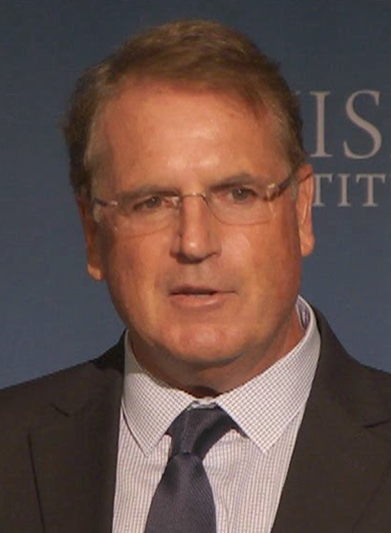 As it was my intention to have found employment before the fall term began, I rented my apartment for only six months and sought to fill it with rental furniture. When I learned that it would nearly double the price of my monthly rent, I decided to purchase at IKEA and build my own. Although it would cost me more upfront, the total cost after six months would be only half of the total monthly rental prices for the same period. Moreover, the furniture would be mine at the end of the six months. Further, not only would the quality be very suitable for my immediate needs, but I could coordinate all of the pieces and create an aesthetic living environment of my own choosing. Then too, I would have the option of disassembling my furniture and taking it with me, were I to find employment in the United States or of selling it with my apartment were I to find employment overseas. Indeed, I could advertise my apartment as furnished and provide the new lessee with a nearly brand new set of furniture at half the price. In effect, I could use the furniture as a sales enticement to rid myself of my lease without penalty.
As it was my intention to have found employment before the fall term began, I rented my apartment for only six months and sought to fill it with rental furniture. When I learned that it would nearly double the price of my monthly rent, I decided to purchase at IKEA and build my own. Although it would cost me more upfront, the total cost after six months would be only half of the total monthly rental prices for the same period. Moreover, the furniture would be mine at the end of the six months. Further, not only would the quality be very suitable for my immediate needs, but I could coordinate all of the pieces and create an aesthetic living environment of my own choosing. Then too, I would have the option of disassembling my furniture and taking it with me, were I to find employment in the United States or of selling it with my apartment were I to find employment overseas. Indeed, I could advertise my apartment as furnished and provide the new lessee with a nearly brand new set of furniture at half the price. In effect, I could use the furniture as a sales enticement to rid myself of my lease without penalty.
Unfortunately the nearest IKEA was nearly a thirty-minute drive from Seattle on the best of days. I did not have car. This is when I discovered ZipCar and made very good use of it for the first several weeks. One-day advanced planning was all it took to find a car that was close to my residence.
I knew of IKEA from Saudi Arabia, for it was there that I had purchased nearly all of my kitchen ware while living in Jeddah. I was also aware of IKEA’s customer service problems, but believed that they were unique to the Jeddah store. Saudis have a good reputation for sales, but they are not so good at customer after-service. Then too, this is hardly a problem unique to Saudi Arabia. Simply, the problem is exacerbated by the fairly unique quality of IKEA’s products and the relative absence of competition that results. No matter, you can never know until you have tried, and when I went to the internet I discovered that IKEA was well established in the United States.
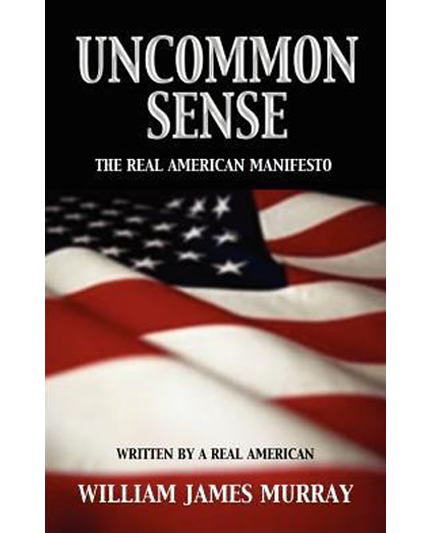 So, I traveled to the store and went from one IKEA department to another in search of furniture and appliances for each of the necessary functions of a highly functional studio apartment. Although I was eventually able to convert my single room apartment with an adjoining kitchen, bath, and large walk-in closet into the functional equivalent of a dining room, bedroom, living room, and study, it took far longer than the several days that I expected. In fact, it took several weeks and several trips to and from the IKEA store to complete.
So, I traveled to the store and went from one IKEA department to another in search of furniture and appliances for each of the necessary functions of a highly functional studio apartment. Although I was eventually able to convert my single room apartment with an adjoining kitchen, bath, and large walk-in closet into the functional equivalent of a dining room, bedroom, living room, and study, it took far longer than the several days that I expected. In fact, it took several weeks and several trips to and from the IKEA store to complete.
My first trip to the store was exploratory and performed while I was still living at the Panama Hotel. In this way, I would be ready as soon as my new apartment opened for occupation. During my second trip I made a very large number of purchases with the intent of returning at a later date. When I arrived at the check-out counter, it was suggested that I purchase an IKEA electric drill, because it would make the assembly of my furniture much easier. In light of the fact that I had no fewer than ten pieces of furniture to assemble, it made very good sense. So, I waited at the counter while someone went to fetch a drill. Unfortunately, upon my arrival at home I discovered that the instruction manual for the drill was missing. So, I called IKEA’s customer service, asked for help, and was directed to an online set of instructions. Following the instructions, however, did not lead to the intended result. So, I called again and asked to speak with someone who was familiar with the drill. Rather, than connecting me with someone with the knowledge that I needed, I was given another customer service agent whose ability to understand the manual was much inferior to my own. For, after all, I had actually studied the manual, and the person with whom I was speaking had never seen it before. Several telephone calls later, I convinced an IKEA customs service manager that either the instructions were wrong or the drill was dysfunctional. Whereupon I was told that I would receive a new drill in the mail.
After sleeping and eating on the floor of my apartment for several days, I called IKEA again and inquired about the promised replacement drill. I quickly learned the requested drill had neither been ordered, nor sent, and that it would take another full week before anything could be received. In other words, if I did not want to continue to live on the floor of my apartment or move back to the Panama Hotel, I would have to rent another car and make my third trip to IKEA. As the trip to IKEA would cost me the entire value of the IKEA drill, I asked IKEA to reimburse me for my travel expenses. I did not tell them that I planned on returning to the store anyway, but in the end it made no difference. They refused and stated that they were under no contractual obligation to do so. Courtesy did not appear to be an issue for them.
 So, I made my third trip to the IKEA store in order to obtain another drill, but I made the trip much sooner than I had planned. As there was no guarantee that everything could be assembled in the prescribed manner, the timing of the originally planned, third trip had been strategic in nature. Every unassembled piece was an experiment in waiting, and the chances of something going wrong were fairly high. And, sure enough, it was not until after the exchange that I discovered that my bed frame and the support lattice for my new mattress did not match. This required an additional fourth trip to IKEA and upon my return much additional work. Assembling the support lattice was very time-consuming.
So, I made my third trip to the IKEA store in order to obtain another drill, but I made the trip much sooner than I had planned. As there was no guarantee that everything could be assembled in the prescribed manner, the timing of the originally planned, third trip had been strategic in nature. Every unassembled piece was an experiment in waiting, and the chances of something going wrong were fairly high. And, sure enough, it was not until after the exchange that I discovered that my bed frame and the support lattice for my new mattress did not match. This required an additional fourth trip to IKEA and upon my return much additional work. Assembling the support lattice was very time-consuming.
On this fourth visit, I did not bother to complain, because i had realized by now that IKEA’s customer service was not about finding solutions, but rather covering up systemic weaknesses in IKEA's mass production machine. If your complaint is taken into account within the system, IKEA seems generally amenable. If it is not, get ready for an unending litany of nonsense.
As there were many pieces of furniture to assemble, it took several days before my apartment was complete. I saved the furniture for my “living room” for last and was somewhat lucky for having done so. For, after having assembled the entire frame of my bookcase I discovered that the drawer assembly was simply dysfunctional. So, I rented still another car and made by fifth trip to IKEA in an effort to exchange the dysfunctional pieces of my drawers for new ones. Going in person was far more effective than talking over the phone, because there was an entire audience of IKEA customers standing in line with complaints -- each eager to witness the conversation of the other. In fact, within minutes I was able to convince IKEA that they were selling a poorly designed product and that I deserved at least another set of materials to try the assembly again. Fortunately, upon my return home was able to assemble the drawers in a manner that they would actually function -- despite the faulty design.
Though very pleased with my newly assembled furniture the additional number of trips and uncompensated cost and time have taught me never to purchase at an IKEA store unless the store is close, and I have access to my own car.
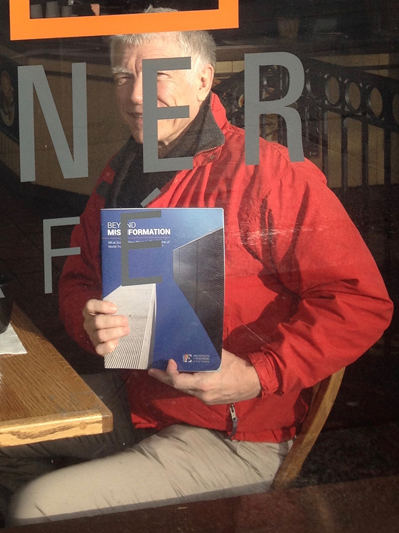 If all goes well, I will be able to eek out an existence with Cambly until my own online business is up and running, or I stumble on a new idea. Only my departure from Hong Kong in 2007 has been more difficult. Above all, I have learned an important lesson — not to waste any more time seeking work through normal channels. For all practical purposes it appears that I have been permanently shut out of the labor market and have become one of many in a discouraged labor force. Unlike the majority, however, given the choice between going on welfare and becoming my own entrepreneur, I have chosen the latter.
If all goes well, I will be able to eek out an existence with Cambly until my own online business is up and running, or I stumble on a new idea. Only my departure from Hong Kong in 2007 has been more difficult. Above all, I have learned an important lesson — not to waste any more time seeking work through normal channels. For all practical purposes it appears that I have been permanently shut out of the labor market and have become one of many in a discouraged labor force. Unlike the majority, however, given the choice between going on welfare and becoming my own entrepreneur, I have chosen the latter.
In December I exhausted my last gold bar and went into the red for the first time in four years. Certainly an important goal of the up-coming year will be to eek my way out — ZIRP notwithstanding.
Happy New Year!
Roddy
Credits: The images were taken from the internet from a variety of sources. One important source that deserves mention is Histoire Française
Special thanks should also be given to the many websites that have supplied the PDF copies of books and articles without which I would have been made dependent on poorly stocked Seattle libraries for my information. Liberty appears to be a forgotten concept in Seattle, and it is my hope to make it live again. One has only to look at the alternatives to understand that we really have no other choice.

Close Window
Richard Cantillon
(1680-1734)
Richard Cantillon emigrated to France in 1714 in the wake of the Confederate Wars (1641-1653). During this period the Irish countryside was ravaged by conflict and many a Catholic saw his property confiscated by the Puritanical rule of their new English overlord, Oliver Cromwell. With the help of other family members Richard established himself as a very capable banker in Paris.
He made his fortune during the Mississippi Bubble (1717-1720), because he wisely foresaw the consequences of John Law's scheme to bilk the French aristocracy of its real wealth through the sale of debt and issue of state authorized counterfeit money.

Close Window
Essai sur la nature du commerce en générale
1755
Although France was a refuge for many an English Catholic, Catholicism was generally shunned by 18th century French intellectuals. So, it is not surprizing that Cantillon's work was not widely cited. This said, it was the first work since the 16th century writings of the Spanish School of Salamanca that treated the problem of economic thought and behavior so thoroughly.
Further, Cantillon was not an intellectual writing in the abstract. He was a very successful entrepreneur in his own right and understood well the market behavior of his time.

Close Window
Abbé Augustin Barruel
1741-1820
In his book Mémoires pour servir à l'histoire du Jacobinisme Augustin Barruel traces a covert attempt on the part of 18th century, French intellectuals to undermine Europe's century-long, evangelical belief in Jesus Christ as God incarnate.
Using the manuscripts and correspondence of key figures, as well as his own contacts with the French clergy and others, the good Abbé provides copious evidence for this subversion.
According to the Abbé the moral decay that resulted from the undermining of the church, and in particular the Jésuit sect, was a direct, if not primary cause of the French revolution.

Close Window
Mémoires pour servir à l'histoire du Jacobinisme
Augustin Barruel - 1803
In his memoirs Barruel identifies four figures of significant stature including François-Marie Arouet (Voltaire), Jean le Rond D'Alembert, Denis Diderot, and the Prussian King, Friedrich II, Der Große.
Accordingly, he shows how these and other French intellectuals worked together to infiltrate Europe's continental aristocracy by appealing to new scientific discovery and the ability of humankind to reason with or without the aide of divine guidance.
Principal among these four figures was Voltaire.

Close Window
François-Marie Arouet
Voltaire (1694-1778)
Voltaire was the pen name used by François-Marie Arouet to shield his true identity from French authorities. Although his ideas received wide-spread support within French society and on the continent of Europe, there were many within the Catholic church and among the French aristocracy who felt threatened by his intellectual assault on the church. In an effort to conceal the identity of his fellow conspirators and the nature of his subject matter Voltaire often used nicknames. His favorite name for Jesus Christ was l'infâme. Early in his career Voltaire had spent several years in England where criticism of the Christian church was less tolerated or more simply ignored.

Close Window
Friedrich II, König von Preußen (Der Große)
1712-1786
Friedrich initiated his first correspondence with Voltaire in 1736. He was 24 years of age and had yet to replace his father on the throne of Prussia.
If one views the Enlightenment as did the good Abbé Barruel -- namely, a struggle against et l'autel et le trône (the church and crown) --, then Friedrich was exceptionally adept, for he not only preserved his crown while resisting the church, but he also expanded its reach.
He enjoyed the admiration of Voltaire until this latter's death at the age of 84.

Close Window
Jean le Rond D'Alembert
1717-1783
Though abandoned by his mother on the steps of the Saint Jean le Rond Chapel just opposite the Notre-Dame Cathedral in Paris, the young Jean le Rond received an excellent formal education.
As a young adult he attended the salons of wealthy Parisien women where his intellect and wit tuned him into a celebrity of Parisien high society.
It was these contacts and his authorship as co-editor of l'Encyclopédie (see below) that endeared him to Voltaire and would eventually lead to his admission into the l'Académie française where he became a powerful proponent of the Enlightenment.

Close Window
Denis Diderot
1713-1784
Diderot received his formal training at a Jésuit college in Langres (Haute-Marne).
Upon his graduation he attended the University of Paris where he studied, among other things, the English language.In 1746 he was invited to begin translation of the Cyclopedia authored by the British scholar, Ephraim Chambers. In the following year Diderot and D'Alembert embarked on a much larger French version of the same work called L'Encyclopédie (see below).
This monumental work consisted of 35 volumes and took 21 years to complete. Among its many contributors was Voltaire.

Close Window
L'encyclopédie ou dictionnaire raisonné des sciences, des arts et des métiers
1751-1772
No single work contributed more to the French revolution than the Encyclopédie. It provided the philosophical reasoning necessary to undermine the established political order -- the divine right of kings, a closely cultivated relationship between the Catholic church and the various blood lines that formed Europe's royalty.
It was a carefully orchestrated and often covert attack on the Christian church. It was a well-intended destructive force that opened many doors, but left political chaos in its wake.
Close Window
Thomas Paine
1737-1809
Thomas Paine's tract, Common Sense, was my first iBook.
I downloaded it free from the internet in an effort to learn about the philosophical underpinnings of the American war for Independence and to satisfy my craving for early morning coffee and literature.
Paine was already 34 years old and well acquainted with the European Englightment when he arrived in the Colonies from England at the suggestion of Benjamin Franklin. It was only two years before the Declaration of Independence was signed and delivered to King George III.

Close Window
Common Sense
1776
In his work Common Sense Thomas Paine set forth the case for colonial independence.
Unlike his European counterparts who found it necessary to conceal their philosophical identity behind a veil of scientific inquiry, Paine was free to speak forthrightly in the colonies. His pamphlet was well received and likely inspired the writing of the Declaration of Independence by Thomas Jeffereson.
After the war concluded, Paine returned to England where he was gradually drawn into the French revolution. His spirited, but principled character appears to have cost him many of his American friends. and he died in New York City, an uncelebrated hero.

Close Window
Patrick Henry
1736-1799
Unlike Thomas Paine, Patrick Henry was born in the colonies. His father was a Scottish immigrant who attended King's College in Aberdeen, Scotland
At the age of 23 Patrick decided to become a lawyer, and by 1763 he had argued his first case against the British crown and won. Two years later he won a seat in Virginia's House of Burgesses
Although Henry never held a national office, he played an instrumental role in the formation of the United States. Intitially he opposed the Consitution, but later defended it against the Virginia and Kentucky Resolutions authored by anonymously by Thomas Jefferson and James Madison.
Close Window
Closing Remarks to Speech at 2nd Virginia Convention in Richmond
March 20, 1775
In his speech at the 2nd Virginia Convention Patrick Henry made it clear that the British forces amassed on the colonies' shores had been sent as a punitive force to enforce British demands. Moreover, any further appeal to the British crown would be a waste of time that could only weaken the colonies defense against the crown.
He challenged all present to provide a different explanation for the British presence. Ten years of negotiation had solved nothing. His speech was a call to arms.

Close Window
Alexander Hamilton
1755-1804
In Hamilton's Curse Thomas DiLorenzo identifies the origins of the two competing schools of political and economic thought that dominated American politics up until Lincoln's war of aggression against the seceding South.
In the Federalist Papers, a series of articles published in New York newspapers during the ratification process, Hamilton argued, along with James Madison and John Jay, in favor of a strong central government.
Others, including Jefferson, argued for limited government. These latter recognized the danger of strong central authority and fought against it.

Close Window
Storming of the Bastille
July 14, 1789
Although the Englightenment began in England, it was far better received on the European continent and in the colonies where its proponents actively and, whenever possible, openly sought to undermine the tenacious rule of Europe's aristocratic establishment (le trône) and the Catholic church (l'autel).
By the spring of 1789 the newly formed United States of America had already exhausted their first form of government, and most States had agreed to join hands, however temporarily, under the new US Constitution.
The French Revolution has not yet begun.

Close Window
Maximilien François Marie Isodore de Robespierre
1758-1794
Robespierre was an accomplished attorney in the French town of Arras and already a member of the états généreaux when the French revolution broke out. In March 1790 he was elected president of the club des Jacobins and, as a result, quickly became an outspoken proponent of the revolution in the assemblée constituante.
Although he spoke out against the death penalty in 1789, by 1793 he was elected to the comité de salut public -- the principle organ of the grande terreur. There he insisted that virtue emanates from terror and was therefore important to the success of the revolution.

Close Window
Georges Danton
1759-1794
Danton was born in Arcis-sur-Aube, a small town where his father served as a public prosecutor. George had become an attorney by the time the revolution broke out and, inspired by the spirit of the times, founded the Club de Cordeliers -- a tight knit group of Parisian revolutionaries more formally known as the Société des amis des droits de i'homme et du cityoen.
Danton is sometimes credited as the Sauveur de la révolution for his impassioned effort in 1792 to save "la patrie en danger" from foreign aggression. As a member of the conseil exécutif Danton was also responsible for the creation of the Comité de salut public over which he was the first to preside.

Close Window
Louis XVI
1754-1793
Louis XVI acceded to the throne in 1774 at the age of 20; he was the grandson of Louis XV and the eldest of three brothers all of who would eventually sit on the French throne.
In 1783 Louix XVI hosted the signing of the traité de Versailles that marked the end of America's War of Independence against England.
When the French revolution broke out in 1789, Louis XVI was compelled to abandon his home in Versailles and to take up residence in the Tuileries of Paris.
With the death of Mirabeau in 1791 Louis XVI took flight, but was captured and later guillotined. This marked the beginning of France's first republic.

Close Window
Jacque Pierre Brissot
1754-1793
Formed in 1789 the Club des Jacobins quickly split over the question of the creation of a monarchie constitutionelle. The Feuillants favored a constitutional monarchy and briefly enjoyed a majority in the newly formed assemblé législative. Upon the departure of the Feuillants Robespierre reorganized the Club des Jacobins and promoted the formation of a république. Unfortunately, the question of war with Austria further divided the Club des Jacobins between those who favored war with Austria (Brissot) and those who were opposed (Robespierre).
Brissot was guillotined in 1793 after the formation of the république.

Close Window
Jean-Paul Marat
1743-1793
Jean-Paul was a physician and franc-maçon, as well as a member of the Club de Condliers organized by George Danton. In addition, he was an impassioned advocate of republican government and founder of the L'ami du Peuple, a journal that encouraged the trial and execution of Louis XVI.
He was assassinated on July 13th by Charlotte Corday, a girondin partisan who favored a continutation of the constitutional monarchy recently dissolved.
At the time of his death Marat was president of the Jacobins.The Painting: Marat assassiné by Jacques-Louis David, ca. 1793.

Close Window
Les Girondins
1793
Intrigue among the European and French aristocracy and an important defeat at the hands of the Austrians created an air of profound suspicion among the Montagnards, the name given to those in the aseemblé who rallied around Robespierre and the republican idea.
The assassination of Marat was not received well by these and quickly led to a reorganization of the Comité de salut public first organized by George Danton.
Where before the revolutionary government had closed an eye on public violence; it now became the leading force of its application.
The Girondins were among the first to be sacrificed.

Close Window
Les Montagnards à l'échafaud
1794
By 1794 the grande terreur perpetrated by the Comité de bon salut had run its course.
Though still a grave threat to the république, the state of emergency posed by the Saint Alliance had diminished. Indeed, the iron fist of the Comité had not only succeeded in rallying the French nation against a common external enemy, but it had also squelched the continued threat of guerre civile.
In effect, the Convention had grown tired of the absolute power wielded by the Comité and the commune insurrectionelle de Paris that held the Convention in check. Robespierre was among its first victims. The terreur blanche quickly followed.

Close Window
Paul François Jean Nicolas, Vicomte de Barras
1755-1829
The purpose of the terreur blanche was to put an end to the grande terreur. While the former was still in progress, the son of Louis XVI died in prison at the age of 10. His death sent a shock wave throughout Europe and Charles Philippe, comte d'Artois (eventually Charles X) retured from his exile in England to restore the throne. Although his effort failed, the French royalists remained antagonistic toward the Convention.
Paul Barras, the member of the Convention assigned with the task of defending the république, called upon Napoléon Bonaparte to fend off the pending insurrection.

Close Window
Le bal des victimes
ca. 1795
In order to fund the new république during the grande terreur a national currency called the assignat was introduced. This currency was used to fund the grand terreur and the war against the Saint Alliance. As an indirect tax on the national economy, great economic distress resulted for everyone, but those who issued the currency and benefitted directly from the war effort.
In an effort to heal the wounds of lost family members sacrified during the two reigns of terror wealthy Parisians hosted exclusive balls for the children of those who perished at the guillotine.

Close Window
Le traité de Tolentino
1797
Unlike the American revolution that was a struggle for independence from British rule, the French revolution served as a challenge to all of European society. There was hardly a member of a royal family who could not point to a blood relationship with another royal family of a different country. In effect, the French enlightenment was hardly limited to the French nation. The teachings of Voltaire and his co-consiprators were already widespread at the outbreak of the French revolution. When Italian revolutionaries decided to form an Italian republic, the French nation went to their aid. This effort was led by Napoléon Bonaparte.

Close Window
Napoléon Bonaparte
1769-1821
The French Revolution come to an end in 1799 when Napoléon Bonaparte dissolved the Directoire and declared himself Premier consul temporaire of France's newly formed governmental body, Le consulat.
Napoléon acted swiftly and by 1804 had declared himself L'empereur des français. During his 15 year rule Napoléan introduced important changes into French society. Two of these were completely antithetical to the spirit of the Englightenment
Not only did he reestablish the French throne, but he received the blessing of Pope Pius VII.

Close Window
Les Adieux de Napoléon Bonaparte à Fountainebleau
1814
While French emissaries at the congrès de Châtillon struggled for a just peace Napoléon sought to keep the Coalition forces (les coalisés) at arms length.
When Napoléon learned of the fall of Paris, he became furious and began to plot a strategy to retake the city. Napoléon's generals succeeded, however, in persuading their beloved emperor to abdicate and surrender his imperial authority to his 3-year old son, Napoléon II.
Reluctantly, Napoléon agreed, quit his temporary residence at the château de Fontainebleau, and headed for the Île d'Elbe.

Close Window
Louis XVIII's Return from Exile
1755-1824
Louis Stanislas was born in Versailles, as were his older brother, Joseph Siffrein (Louis XVI), and his younger brother, Charles Philippe (Charles X).
Whereas their older brother Joseph was captured and executed for treason against the monarchie constitutionelle in 1792, both Louis and Charles escaped persecution and fled into exile.
After the victory of les coalisés and subsequent abdication of Napoléon in April 1814, Louis Stanislas returned to France and assumed the head of the restaured Bourbon monarchy.
No regent for Napoléon II was selected.

Close Window
Le vol de l'Aigle
Au mois de mars de 1815
While a de facto prisoner on the Île d'Elbe Napoléon remained politically active. Upon learning that he was to be transported to a more distant island for safe-keeping by the British, Napoléon did that for which he was most renown: he took a calculated risk, fled the island, and marched on Paris.
Confronted near Grenoble by a batallion of soldiers sent to intercept him, he cried, "Soldats du 5-éme! Je suis votre Empereur! Reconnaissez-moi!". Whereupon he tore open his jacket, and stated, "S'il est parmi vous un soldat qui veuille tuer son Empereur, me voilà!".
With these words he won their hearts, and together they marched on Paris.

Close Window
En exil sur l'Île de Saint Hélène
1815-1821
The Coaltion Forces resented Napoléon's return to power and quickly declared war against France as a result. Within 100 days (les Cent jours) of Napoléon's return he was defeated at Waterloo. Whereupon he fled to Paris and arranged for passage to the United States. Unfortunately his ship was intercepted, and he was taken to the Island of St. Helen where he died after six years of captivity.
Unlike most empires the French empire under Napoléon's guidance did not fall due to poor finances. Simply, the glory of France had become the burden of Europe and eventually the French nation.
Napoléon had made many enemies.

Close Window
Charles Maurice de Talleyrand-Périgord
1754-1838
Talleyrand was a highly skilled French diplomat with his own agenda. Although he encouraged Napoléon to intervene in Spain, he actively discouraged Napoléon's effort to enter into alliance with Czar Alexander I. A possible reason for this activity was Napoléon's blocus continental whose principal objectives were to strangle the British economy and fill the French imperial coffers.
Whether wisdom or folly, the blocus continental angered many a continental merchant -- influential people who might have otherwise sided with Napoléon in his struggle against the Austrian and British empires.

Close Window
La Seconde Restauration
1815-1824
When Napoléon marched into Paris after his return from the Île d'Elbe Louis XVIII took flight.
With the passage of the Cent jours and Napoléon's final defeeat Louis XVIII returned and installed Talleyrand as his new prime minister. Thus, began a second terreur blanche that targeted Napoléon's generals and other prominent and not so prominent bonepartistes.
In an effort to maintain continuity with his older brother's legacy and to reestablish political stability a constitutional monarchy was reintroduced.
During this period much of France was occupied by the Coalisés.

Close Window
Charles X
1757-1836
Unlike his older brother who had returned from exile with the defeat of Napoléon, Charles Philippe remained in England. As a result, he was not familiar with the reforms introduced by his older brother, Louis XVIII, who had sought to restore many of the republican institutions introduced after the death of Louis XVI. Though well apprepciated by the French ultras and the continent's royal establishment Charles X was largely disliked by the remnants of the revolution (the more affluent liberaux and the less affluent jacobins) and the napoléonic era (les bonapartistes). Under his reign France joined hands with the English and Russians (traité de Londres) in support of Greek liberation from the Ottomans.

Close Window
Louis Philippe I
1773-1850
Louis Philippe was the eldest son of Louis Philippe Joseph, duc d'Orléans. Like his father, he formed a part of the nobles progressistes and was open to republican reforms. As a lieutenant-général under Dumouriez he was suspected of treason when this latter surrendered to the Saint-Alliance. Disheartened by his father's subsequent execution at the hands of the montagnards the young noble took refuge in Switzerland and remained in voluntary exile until 1814 after the fall of Napoléon.
Louis Philippe's ascendance to the throne after les Trois glorieuses sounded the death knell of the Bourbon line of kings and the beginning of the Monarchie de Juillet.

Close Window
John Caldwell Calhoun
1782-1850
John C. Calhoun was a brilliant statesman and dedicated national public servant whose reputation has been sullied by history.
Although an important reason for secession was slavery, the war that resulted was not fought over slavery. Rather, it was fought over the sovereign right of voluntary membership in the union.
In his speech given at Fort Hill, North Carolina, Calhoun makes it very clear that voluntary union is the only form of union that makes any sense.
Union and Liberty -- The Political Philosophy of John C. Calhoun

Close Window
Frédéric Bastiat
1801-1850
Bastiat was born in the port city of Bayonne in the southwest corner of France. Consequently, he was able to avoid much of the political turmoil that came both during and in the aftermath of Napoléon's reign.
Having inherited his grandfather's estate in Mugron at the age of 22 he received his first practical training in economics. More devoted to the intellectual aspects of agricultural economics and trade than the actual management of a large agricultural estate, he became increasingly interested in political economy -- a discipline in which he would later excel.
His political career started in 1832 when he became a member of the conseil général de Landes.
Close Window
La Loi
1850
Although Bastiat's intellectual career began at a very young age, his contribution to the economic literature of his day spanned less than a decade of formal publication and did not appear until just before his death.
Though perhaps not his most important work, La Loi makes clear the difference between negative law that serves the people of a nation and proscriptive law that services the state. He argues convincingly for the former and is thus very popular among contemporary libertarians.
Today, he is far better read in the United States than in France where socialist principles have a stronger hold.

Close Window
Napoléon III
1808-1873
Louis-Philippe's effort to restore the revolutionary gains rejected by Charles X eventually failed. The industrial revolution had taken root on the Contintent, and the French peasantry of 1789 was disappearing. The republican ideal was now in the hands of France's industrial workforce; socialism was at the French doorstep. Ill-prepared to deal with the new economic reality Louis-Philippe I abdicated in 1848 and fled to England. A new constitution (la seconde république) was adopted and Louis Napoléon Bonaparte was elected president.
The power of the president was, however, enormous, and in 1852 he simply took control in a coup d'état. The seconde empire began.

Close Window
Marie Joseph Louis Adolphe Thiers
1797-1877
Adolphe Thiers was born in Marseille where he trained as a lawyer before moving to Paris. There he embarked on a a career in political journalism during which he criticized the french monarchy under Charles X. Under Louis-Philippe I he was twice appointed président du conseil and was twice dismissed. While in office he was responsible for the return of Napoléon I's remains fom the Île de Sainte Hélène.
Though instrumental in helping Louis Napoléon Bonaparte become president of the ephemeral Deuxième république, he rejected the return of empire and spoke out against the war with Prussia in 1870.

Close Window
Gustave de Molinari
1819-1912
Gustave de Molinari was born in Liège and moved to Paris in the early 40's where he established himself as an economic jounalist. In 1846, while still employed at the Courier français, he received a visit from Frédéic Bastiat and asked to join the Association française pour la liberté des échanges. In 1846 the British parliament under the Tory leadership of Robert Peel rescinded the so-called Corn Laws, and Richard Cobden appeared in Paris.
After Bonaparte's coup d'état in 1851 De Molinari returned to Belgium where he remained until Nopoléon III's abdication. In France he served as the rédacteur en chef for the Journal des économistes from 1881 until 1909.

Close Window
De la production de la Securité
1849
In this 50-page pamphlet De Molinari investigates the natue of the state as a market phenomenon and argues in favor of free market competition. Further, he shows that socialism is a natural outgrowth of the security monopoly of the state, and thus something that every free society should avoid.
Both, Bastiat and De Molinari, agreed that the role of the state, if it is to have a role at all, should be to enforce property rights and ensure just compensation to injured parties.
The written clarity of both is extraordinary, but there work was overshadowed by the political atmosphere in which they wrote.

Close Window
The Real Lincoln
A New Look at Abraham Lincoln, His Agenda, and an Unnecessary War (2002)
Although Lincoln spoke in praise of the Jeffersonian tradition, his real political agenda reflected far more closely the agenda promoted by the likes of Alexander Hamilton, John Marshall, and Henry Clay.
The true Lincoln tragedy was not his assassination, but the way in which he used the heavy-hand of the US government to destroy the voluntary union of sovereign states that formed the political basis of the Union.
Lincoln's agenda of internal improvements, a central bank, and high protective tariffs mirrored the policies of 19th century Europe and departed radically from the free-market principles of the Enlightenment.
Close Window
American Bastille
1871 (8th edition)
This is a collection of 100 personal accounts assembled in an effort to record, as a warning for future generations, what happens when a free people abandon their Constitutional rights. Under William Seward's leadership "[c]itizens were arrested by thousands, and incarcerated without warrant. Judges were torn from the bench, bruised and bleeding...." "Doctors were ruthlessly taken from the bedside of the dying paitent, and immured for months without warrant, and laywers arrested and consigned to the same cells with their clients...."
"Post-offices were searched; newspapers seized and suppressed, while the editors were handcuffed and secretly hurried to prison."

Close Window
William Seward
1801-1872
Seward was born in Florida, New York. His father was a successful businessman, slave owner, and physician.
As Secretary of State, William Seward advocated war against France and Spain in an effort to preserve the Union and would later undertake whatever means necessary to squelch northern opposition to the war against the South.
He was an outspoken imperialist and responsible for the purchase of the Alaskan territory in 1867 and the appropriation of the Midway Islands.
His negotiated deal with Columbia to acquire the Isthmus of Panama failed in the Senate as well as his attempt to acquire the Hawaian Islands.

Close Window
Seward's
Little Bell
1861-1865
During the war William Seward, US Secretary of State under Abraham Lincoln, in conversation with Britain's Lord Lyon stated:
"My lord, I can touch a bell on my right hand, and order the arrest of a citizen of Ohio; I can touch a bell again, and order the imprisonment of a citizen of New York; and no power on earth, except that of the President , can release them. Can the Queen of England do so much?"
During the war, the word of the informer was the law, the sound of the little bell was the signal, and the telegraph was the messenger. After this, it was just a matter of arrest and imprisonment.

Close Window
Fort Lafayette, New York Harbor
The American Bastille (1861-1865)
Lord Shelburne to Henry Laurens, Ambassador to Holland, after Laurens' release from London Tower where he had been held prisoner without trial for more than a year in 1780:
"I am sorry for your people. They will lose the habeus corpus. We purchased it with centuries of wrangling, many years of fighting, and had it confirmed by at least fifty acts of Parliament .... Your people will pick it up and attempt to use it, but, having cost them nothing, they will not know how to appreciate it. At the first great internal feud that you have, the majority will trample upon it, and so will go your liberty."

Close Window
Otto Eduard Leopold von Bismarck
1815-1898
Bismarck was born in Kniephof, Prussia, a small rural town in today's Poland. He spent much of his youth in Berlin, and as a young man attended the Universität Göttingen. After a brief time in the Prussian government he returned to the countrysids where he managed two agricultural estates. As a Lutheran pietist and strong advocate of the Prussian monarchy, he opposed the Märzrevolution in 1848 and was elected to the zweite Kammer des preußischen Landtags as a result. While emissary to the Bundestag in Frankfurt he received diplomatic training and met with Napoléon III on two occasions.

Close Window
Napoléon III's Surrender at Sedan
September 1, 1870
The Norddeutschen Bund was growing in strength and stood in the way of Bismarck's goal to unify the German nation under Prussian rule.
A letter sent to the Prussian king by Napoléon III demanding politiely that Prussia not make any further attempts to seat Prussian royalty on the Spanish throne was intercepted by Bismarck and published in redacted form (the Emser Depesche) to the embarrassment of the French emperor. War was declared.
Bismarck would later insist that Napoléon lay down his arms before granting Napoléon III an interview with the Prussian king.

Close Window
Proclamation of the 3rd Republic
September 4, 1870
Napoléon III's surrender in the aftermath of the Battle of Sedan swept through France like wildfire. The army that was suppose to defend Paris from attack was now in the hands of the Prussians, and Napoléon was a prisoner of the Prussian king.
On September 3rd Jules Favre appeared before the Corp législatif, denounded Napoléon III as the French leader, and announced the dissolution of the French empire. On the following day the Troisième République was announced, and preparations were made to defend the capital.
Adolphe Thiere, who had spoken out against the war, was sent abroad in an effort to seek reconciliation.

Close Window
Proclamation of the Second Reich
January 18, 1871
Within weeks after Napoléon III's surrender the city of Paris was placed under siege. In an effort to organize the French countryside in defense of the city, Léon Gambetta boarded a hot air balloon and fled to Tours where he organized the Armée de la Loire. After several months of continued engagement William 1, the Prussian king, entered Versaille and declared the formation of the Zweites Reich. Shortly thereafter France surrendered.
Von Bismarck had achieved his goal: the Norddeutschen Bund was now united with Prussia under the newly created German empire. The stage was set for the outbreak of World War I several decades later.

Close Window
Herbert Spencer
1820-1903
Herbert Spencer was born the son of a Protestant minister in Derby, England. His schooling was largely informal, but not lacking in rigor. By the age of 16 he had found work as a civil engineer for a rail company where he remained for several years. Perhaps it was his work as secretary for the Derby Philosophical Society that provided him with the technical training necessary to embark on a professional career in philosophical writing. By 1848 he was sub-editor for The Economist, and by the time of his death at the turn of the century he had become the most prominent British philosopher of the Victorian era.

Close Window
The Man versus the State
1884
This is a collection of essays written by the author. In these essays Spencer explains clearly the legitimate authority of an elected government and what might constitute a legitimate social contract between a government and its citizenry. Further, he shows, with numerous historical examples taken from British history, why government intervention in the market place is nearly always a bad idea, and why it nearly always falls short of its intended results. He argues, in effect, that government is a short-term response to long-term problems that, if given time, heal themselves.
In addition one learrns about the nature of the British parliament.
Close Window
The Head of the Statue of Liberty
Paris, France 1878
In 1865, at the conclusion of Lincoln's war of aggression (la guerre de sécession), a small reunion of French republicans came together to celebrate the cessation of slavery in the United States. it was a private endeavor that would not be completed until 1886 -- ten years past the intended date of inauguration.
Although the abolition of slavery had been a hallmark of the French revolution, the French republic had been replaced by the Second empire under Napoléon III. It must have been a bitter-sweet reunion.
By the time the statue was completed France had become the more enduring troisième république.

Close Window
Ludwig Heinrich Edler von Mises
1881-1973
Von Mises was born in the Austro-Hungarian city of Lemberg (today's Lviv, Ukraine). His father was a Viennese railroad construction engineer. Ludwig received his formal training in economics at the University of Vienna where he discovered the work of Carl Menger and studied under Eugen von Böhm-Bawerk. Von Mises was an outspoken critic of government intervention (socialism) and a strong advocate of voluntary free-trade as the bulwark of political freedom.
His lifetime motto was taken from the Roman poet Virgil: tu ne cede malis, sed contra audentior ito (Do not give into evil, but proceed ever more boldy against it).

Close Window
Theorie des Geldes und der Umlaufsmittel
1912
Although I started reading Von Mises' work already in 2014 I did not finish it until shortly before my departure from Saudi Arabia in early 2015.
My most important lessons from the book were the role and nature of money in the market place and the likely origin of money as a medium of exchange.
In his book Mises distinguishes clearly between real money and other forms of exchange. He also shows how poorly money was understood by his contemporaries and how this misunderstanding has led to so many of the problems that we have today.

Close Window
Roddy A. Stegemann
AERC - Ludwig von Mises Institute
March 23, 2015
It was on this day that I presented my paper to a packed lecture hall of Austrian economists.
When I asked my audience how many people had read Roger Garrison's Time and Money, the "Austrian economist" who inspired my paper, only two people raised their hand. I was nevertheless honored by the presence of Professors Roger Garrison and Joe Salerno, but was unable to complete my presentation due to unforseen technical difficulties.
Part 1 is now available online at SSOAR and can be found here.

Close Window
Friedrich August Hayek
1899-1992
Hayek was born in Vienna and served in an Austrian artillery battery on the Italian front during WWI. After receiving a doctorate in political economy from the Universität Wien he was befriended by Ludwig von Mises. In 1931 he was invited by Lionel Robbins to the London School of Economics where he entered into an important debate with John Maynard Keynes.
After the war he founded the Mont Pèlerin Society in Switzerland; it included such people as Milton Friedman, Frank Knight, Michael Polyani, and Karl Popper. In 1950 he moved to the University of Chicago where he remained until he took up a new post at the Universität Freiburg in West Germany in 1962.

Close Window
The Road to Serfdom
1944
Having read Friedrich Hayek's The Denationalization of Money: The Agument Refined, and having digested well what was contained therein I decided to read his much more popular book The Road to Serfdom. It appeared for the first time in the Reader's Digest toward the end of World War II and extolled the struggle against NAZI Germany, communist Russia, and the concept of socialism as a whole.
Rather than seeking to emulate what the world has become, we should re-examine what our nation was before we embarked up the long and perilous road of empire.
Clearly, we have taken the wrong path.

Close Window
Henry Stuart Hazlitt
1894-1993
At the age of six his mother enrolled him in a school for fatherless boys. When she remarried, they moved to Brooklyn. By the age of 20 Henry had written his first book and landed a job as a stenographer at the Wall Street Journal. Thereafter, he worked as a newspaper reporter, editor, economic journalist, and/or literary critic for a large number of prominent publishing houses -- including The New York Evening Post, The Nation, American Mercury, the New York Times, and Newsweek. He strongly opposed Roosevelt's New Deal and the Bretton Woods Accord.
With the passage of time he became a steadfast beacon of economic and political liberty.

Close Window
Economics in One Lesson
1946
Hazlitt wrote Economics in One Lesson while still at Newsweek. In his book Hazlitt explains that government, in its desire to satisfy the short-term needs of special interests, often ignores their long term effect on others. As a result, governments finish by hurting everyone in the long-run including those that they initially seek to help. Thus, Hazlitt contends that governments should stop meddling in the market place and allow markets to work out the problems of allocation, production, and distribution on their own.
Whereas Spencer used examples from 19th century British history, Hazlitt illustrated his point with examples from 20th century America.

Close Window
Murray Newton Rothbard
1926-1995
Murray Rothbard discovered Ludwig von Mises at the Foundation for Economic Freedom (FEE) while still a graduate student of economics at Columbia University. Like Friedrich Hayek he quickly became an ardent critique of the social sciences and followed Von Mises' lead in the advancement of praxeology as a more appropriate method of understanding human economic behavior.
Very early in his career he rejected the coercive force of the state as a means to achieve social order, and in his work The Ethics of Liberty he sought to establish an ethical basis for a free economy and society in the absence of state control.

Close Window
Man, Economy, and State
1962
Power and Market
1970
This work combines the two works Man, Economy, and State and Power and Market into a single scholar's edition. Henry Hazlitt called Man, Economy, and State the most important work in economics since the English tranlation of Ludwig von Mises' work Human Action that appeared in 1949. What started out as an attempt to make Ludwig von Mises' translated work "Human Action" into a work more accessible to American economics students eventually became a founding pillar of the American branch of the Spanish-Austrian school.

Close Window
Hans-Hermann Hoppe
1949-Present
Hans-Hermann Hoppe is an outstanding social and economic philosopher and proponent of individual liberty. He, like many before him, have shown clearly that the state is an anathema to the notion of liberty. Like many in the Spanish-Austrian school Hoppe views private property as the key to individual liberty. It is the right to one's person and one's property and the ability to engage in voluntary trade of this property that makes one free. The test of liberty is not the fairness of the trade, but the opportunity to engage in it voluntarily.
Yes, smarter, more industrious people will become wealthier, but dumber, less industrious people will also be able to provide for themselves.

Close Window
Hans-Herman Hoppe and Me
March 2015
Hoppe was born in Peine, Germany, not far from my father's birthplace. He attended the Universität des Saarlandes and the University of Michigan in Ann Arbor where I received my undergraduate degree in anthropology. In 1974 he obtained a Ph.D. in philosophy from the Goethe Universität - Frankfurt am Main while I was teaching English at the Gymnasium am Rittersberg in Kaiserslautern. After teaching at several universities in Germany and Italy Hoppe moved to the United States in 1986 where he become closely acquainted with Murray Rothbard at the UNLV. One year later I would begin graduate studies in mainstream economics at OU.

Close Window
Democracy: The God that Failed
2001
This book, although poorly edited, captures the inherent fallacy of democratic government as it is practiced today.
Whereas the kings of ancient times were both owner and caretaker of the land that their subjects occupied, today's presidents are but mere caretakers of same. As such, these latter have no vested interest in the long term preservation of the wealth over which they rule. While in office a president cares only about his own term or terms in office and passes his administration's expenses on to subsequent caretakers. In effect, the wealth of the nation is eroded by a long succession of caretaker governments.

Close Window
Kevin R. Constantine Gutzman
1963 - Present
Kevin Gutzman is an academician of unusual character. After receiving an M.A. degree in public affairs and a doctorate in jurisprudence (J.D.) from the University of Texas, he earned M.A. and Ph.D. degrees in history from the University of Virginia.
His NYT best-selling book The Politically Incorrect Guide to the Constitution was his first book (see below). He later wrote Virginia's American Revolution, Who Killed the Constitution with Thomas Woods, and James Madison and the Making of America
In addition to his scholarly work Kevin Gutzman has appeared many times in popular national media.

Close Window
The Politically Incorrect Guide to the Constitution
2006
Though a bit ascerbic and somewhat presumptive one can hardly blame the author. His subject material is simply scandalous.
Today's students of constitutional law no longer study the founding principles of our nation, but their interpretation by successive US Supreme Court magistrates.
Our forefathers clearly understood that our natural rights were a matter of dispute and something to be decided in Congress and in public trial juries across the nation -- not by a handfull of black-robed judges sitting in the District.

Close Window
Thomas J. DiLorenzo
1954-Present
Thomas Dilorenzo is a historian and author of many books and peer-reviewed articles. Having already read The Curse of Hamilton while in Saudi Arabia I was eager to obtain a copy of The Real Lincoln upon my return to the USA. A trip to the University of Washington library system yielded nothing. Shorter journies to the Seattle University Bookstore, a First Hill private bookstore, and the Seattle Public Library were also unproductive. Even the University Bookstore in the U-District did not have a copy. So, I placed an order and waited.
The Real Lincoln exposes a man very similar to Hamilton -- a ruse politician who said one thing, but did quite another.

Close Window
William James Murray
1942-1992
In his book Uncommon Sense: The Real American Manifesto William Murray explains the true meaning of American patriotism -- the notions that you cannot grant any right that you do not have, and that all rights of the US government are granted to it by the people.
As it is assumed that these rights are natural or God-given, they are a matter of belief, and you either accept them as an American patriot, or you reject them as something else.
Although this book is written for those with a high school education in mind, it cuts to the core of what it means to be a true American.
All else is folly.

Close Window
New York City
NYT Headquarters
On September 11, 2001 there was a commotion in the apartment next to mine. As my neighbor's television was visible from my apartment window at Sunshine City (新港城) in Ma On Shan (馬鞍山), Shatin (沙田), Hong Kong (香港) I watched with amazement as the Twin Towers fell. On my way to work that same day I was asked by the Personnel Director at the The Chinese University of Hong Kong (香港中文大學) what made the towers fall as they did. I explained that it was probably due to the softening of the steel. It would not be until 2008 while sitting in the French Café in Berkeley, California that it was explained to me just how stupid that explanation truly was.

Close Window
Beyond Misinformation
2015
I signed the Architects and Engineers for 9/11 Truth's petition already in 2009 and donated USD 100 for the privilege.
In early December I ordered ten hard copies of Beyond Misinformation: What Science Says About the Destruction of World Trade Center Buildings 1, 2, and 7 for distribution to my friends and local merchants as a Christmas present. The two, signed copies that I gave to the Corner Café on First Hill in Seattle were already missing on the following day.
So, everyday since I have taken my own copies with me to the café where I display them on my table as I drink my morning coffee and read political economy.

Close Window

Close Window
A Theory of Socialism and Capitalism
1989
Although I was impressed by the lucid explanation of socialism given by De Molinari, never before have I read such a complete breakdown of the different forms that socialism can take and how these forms differ so fundamentaly from the capitalist ideal -- i.e., voluntary trade and entrepreneurship.
Until property rights are clearly defined and enforced, the incentive for economic growth remains small. Once defined, society grows and civilization advances. As the amount of state intervention increases, and our right to our own person and property becomes increasingly violated, civilization devolves.